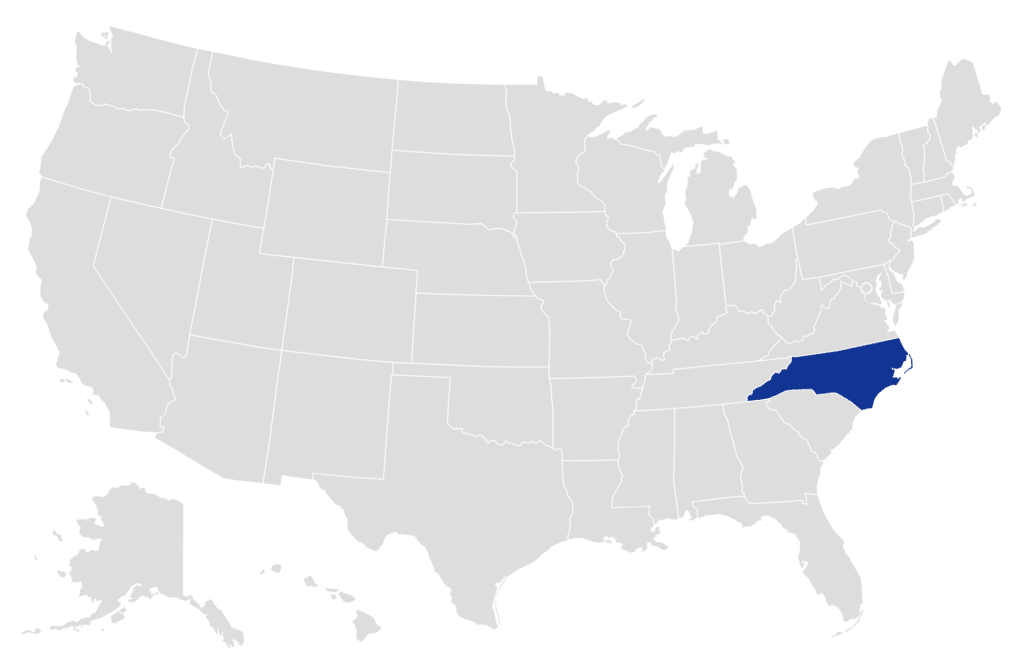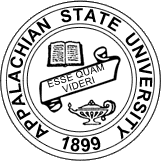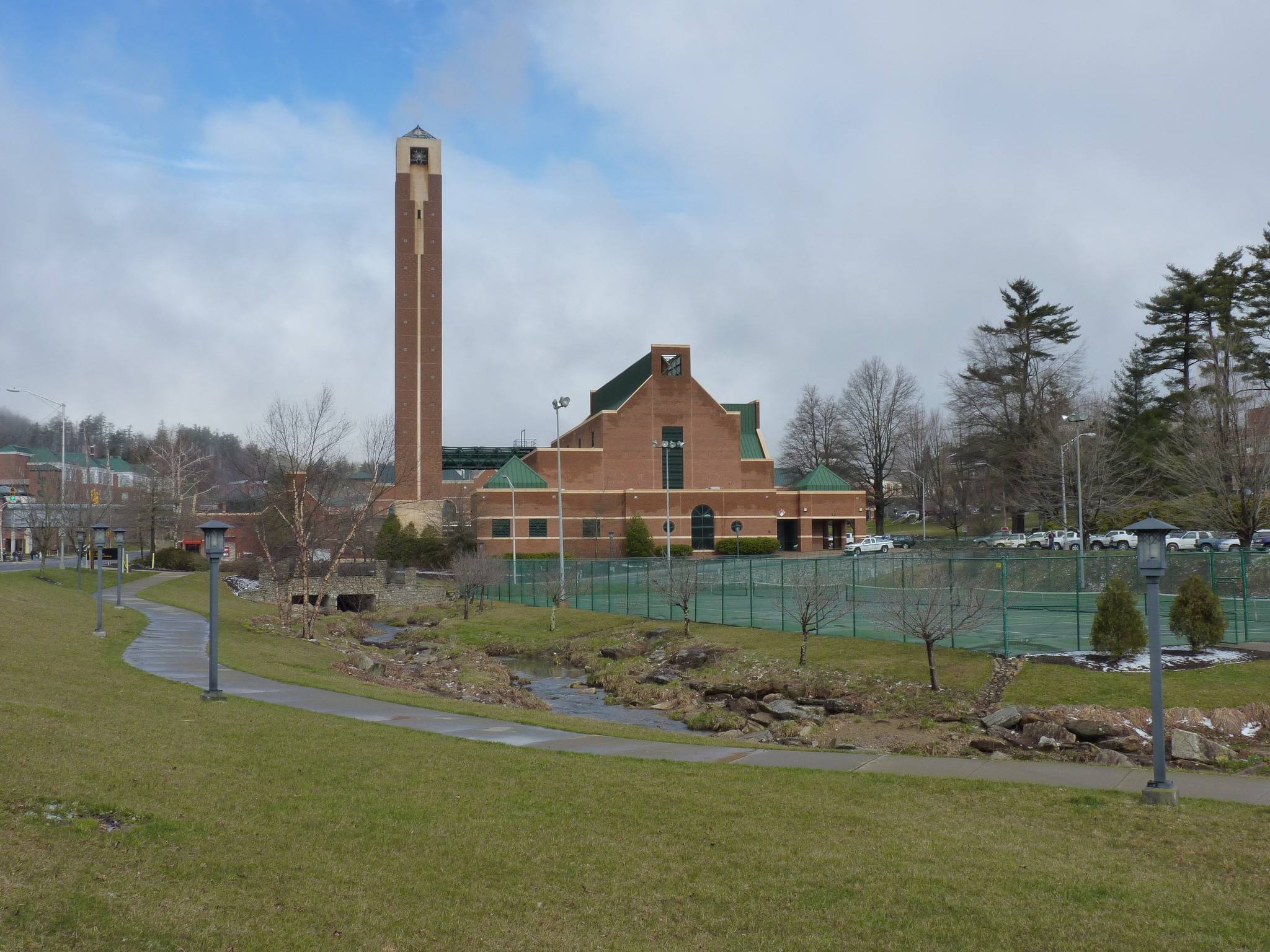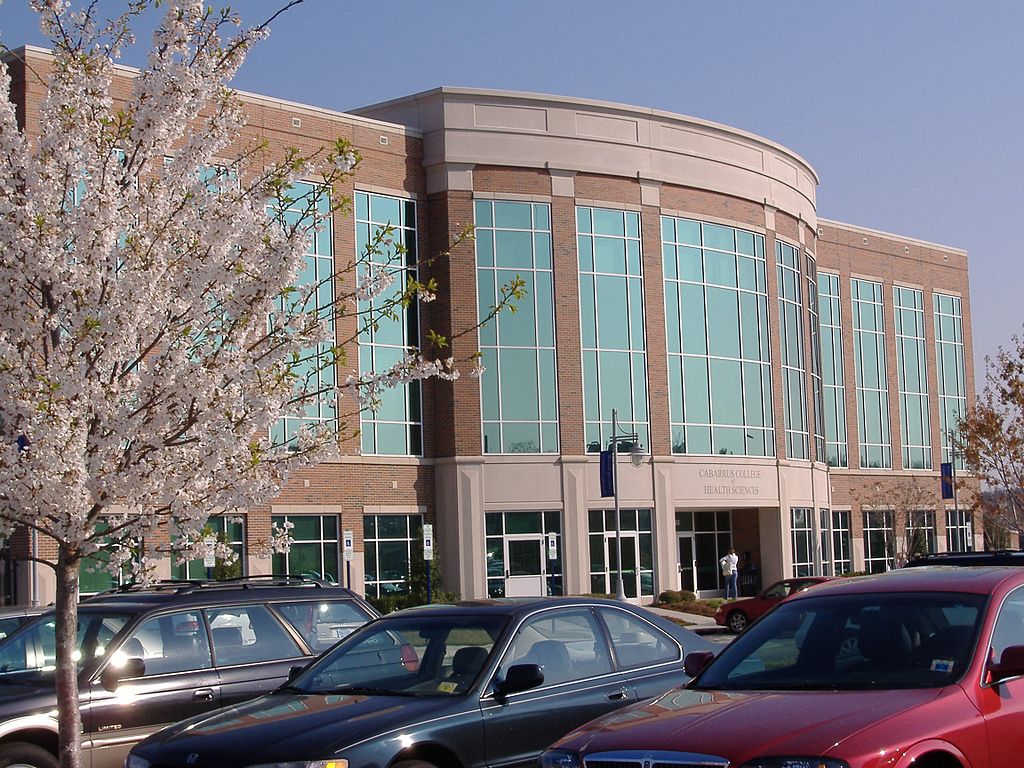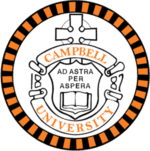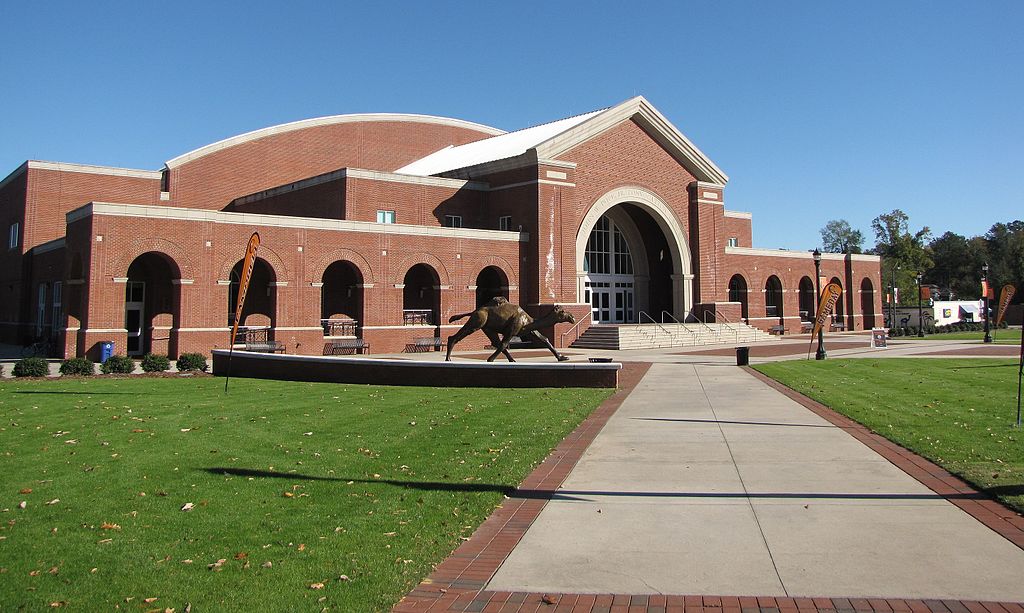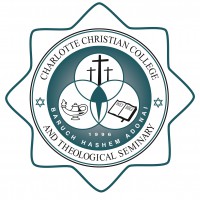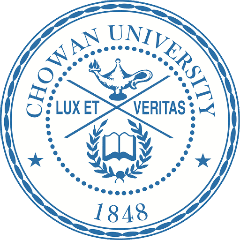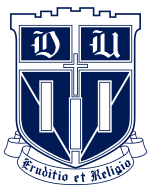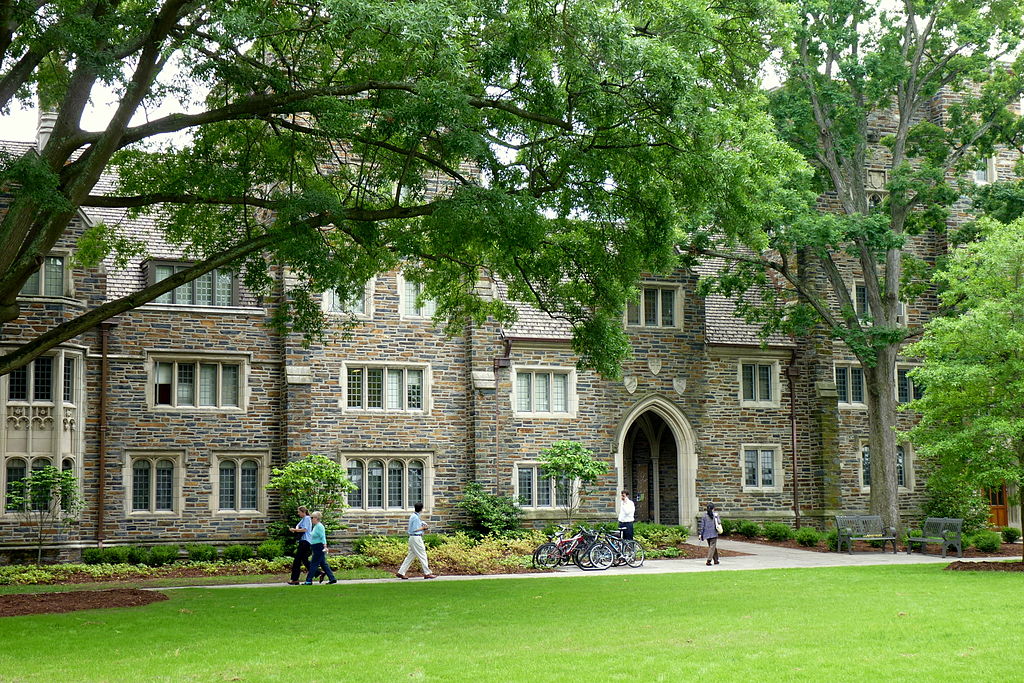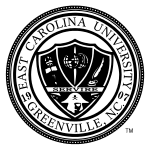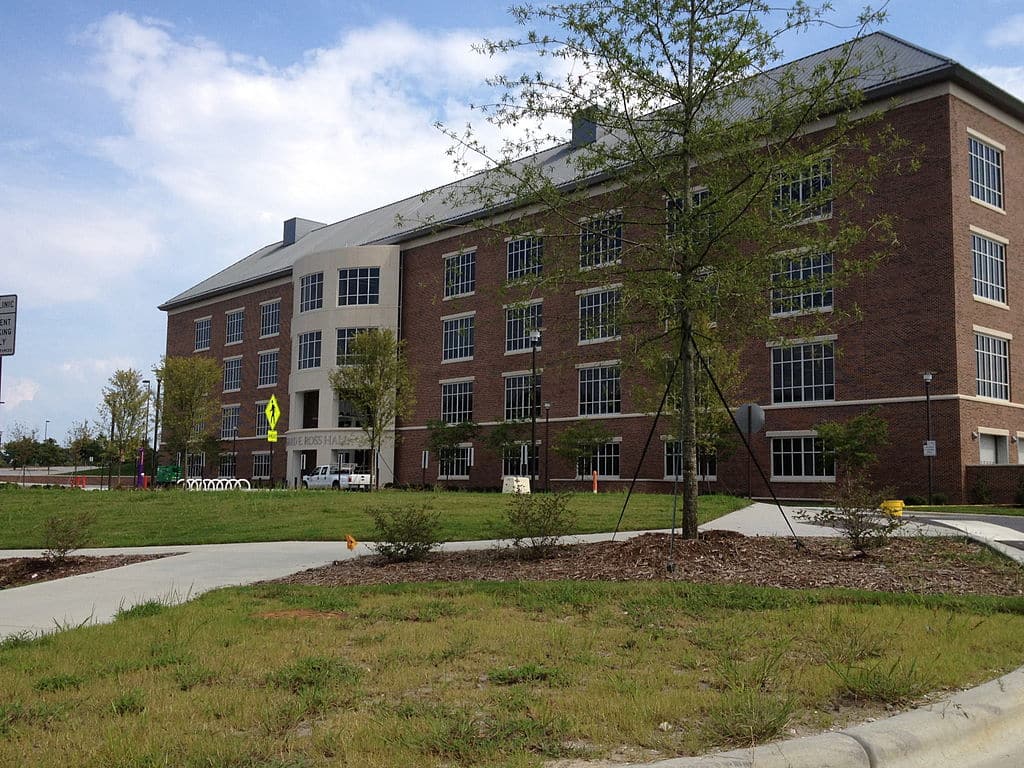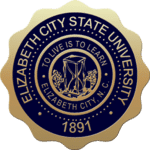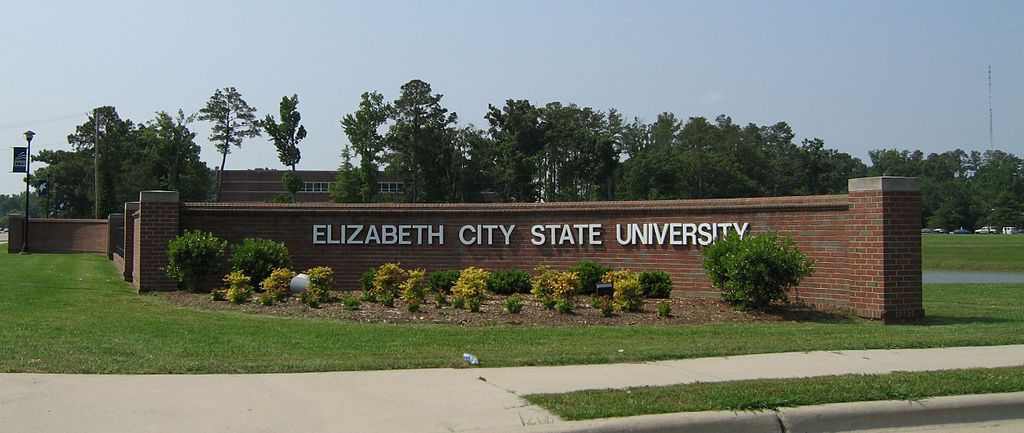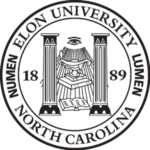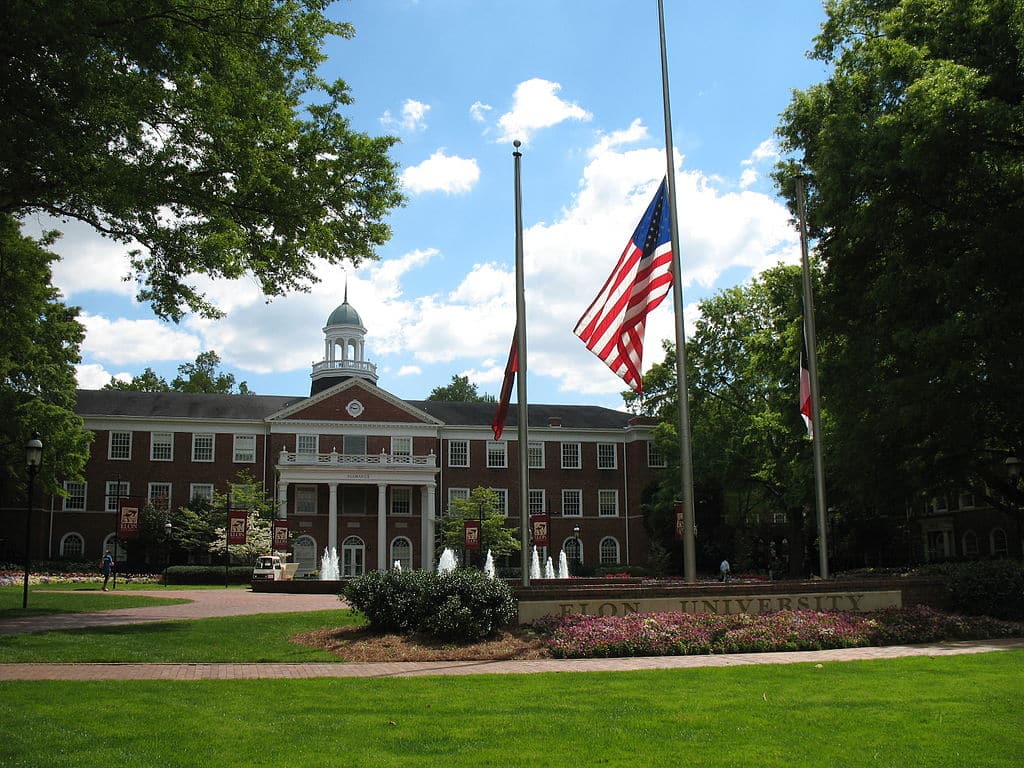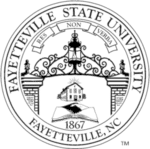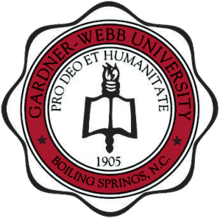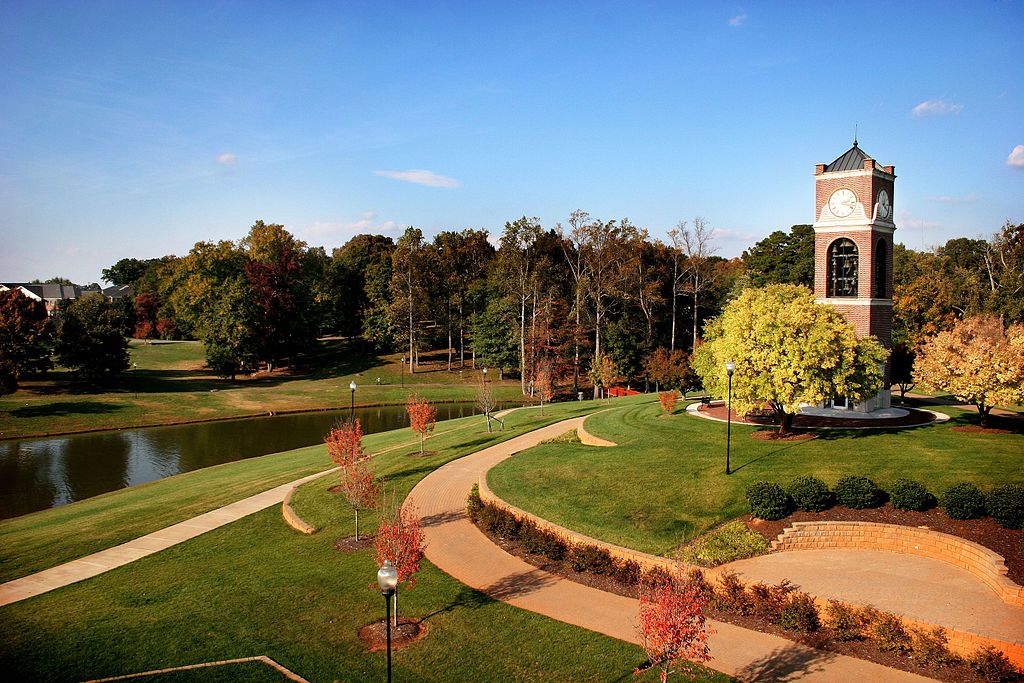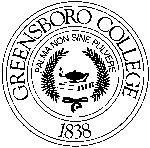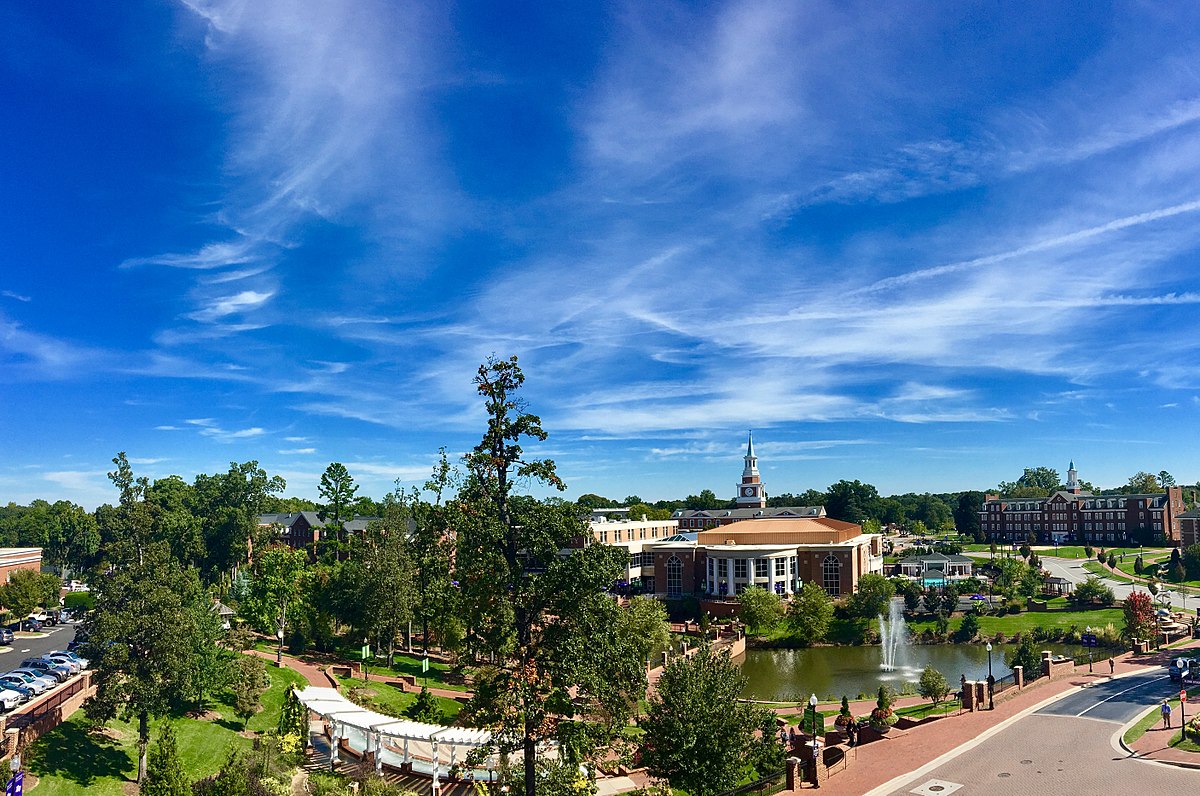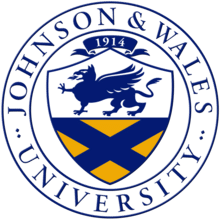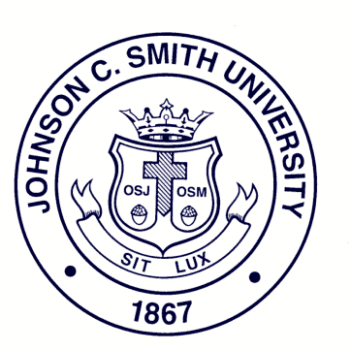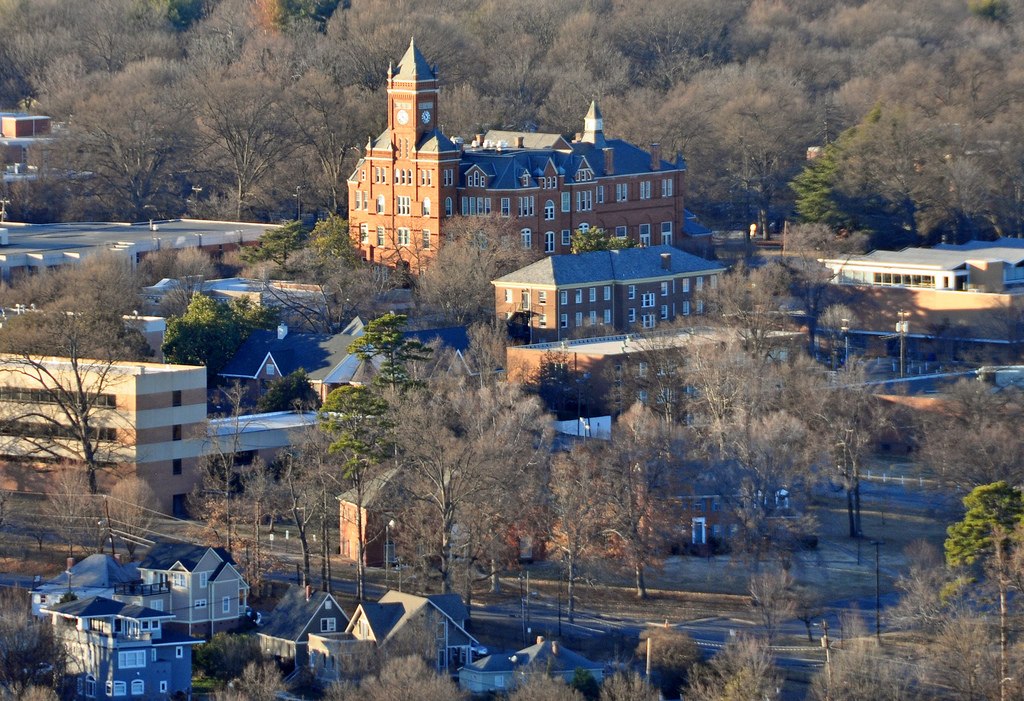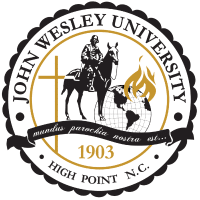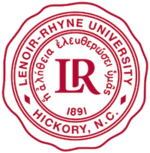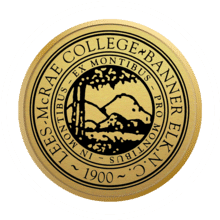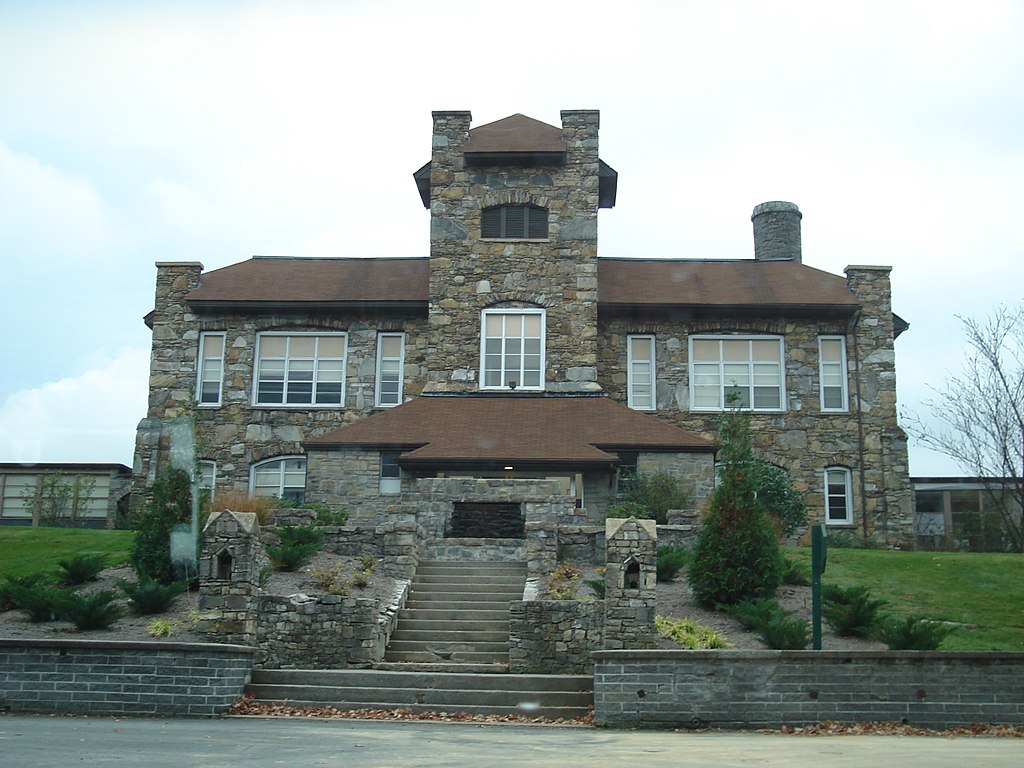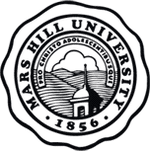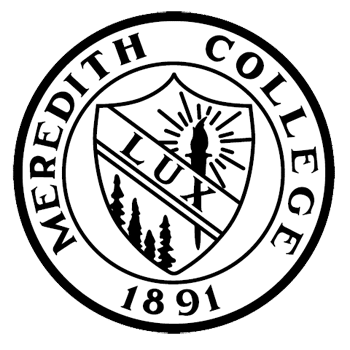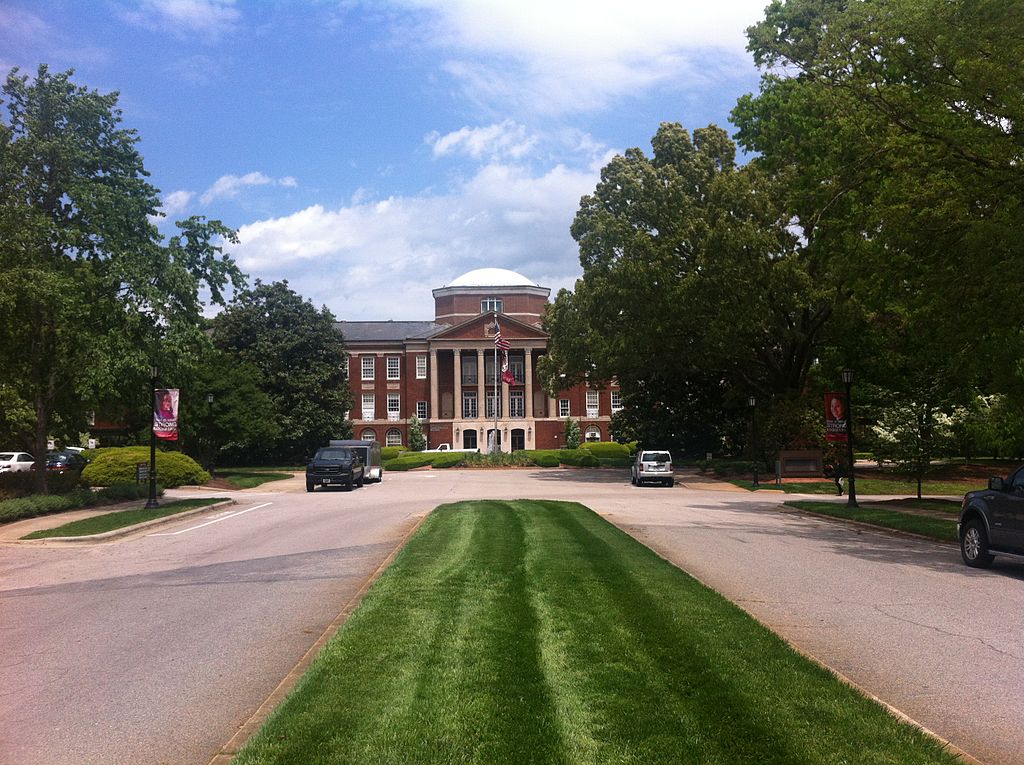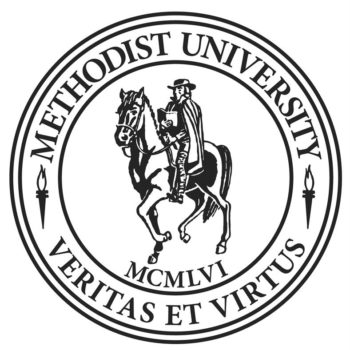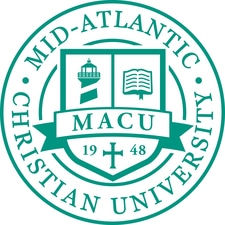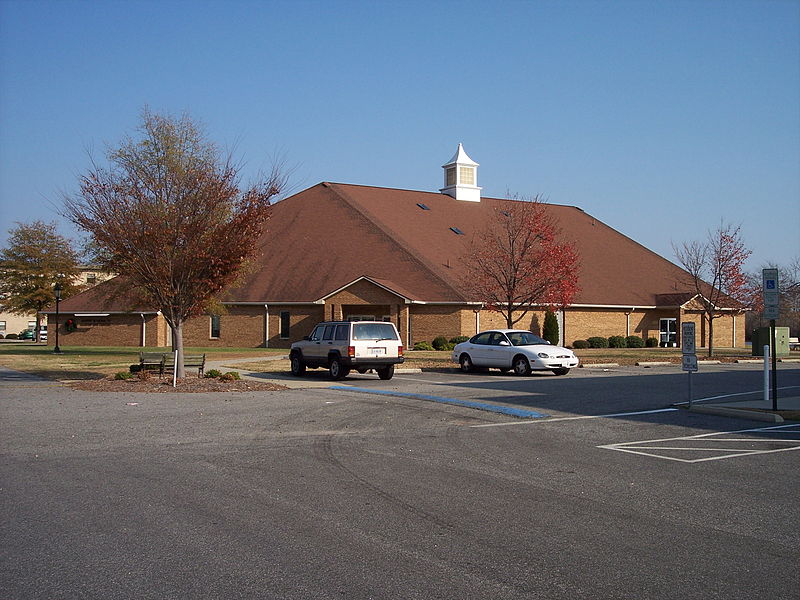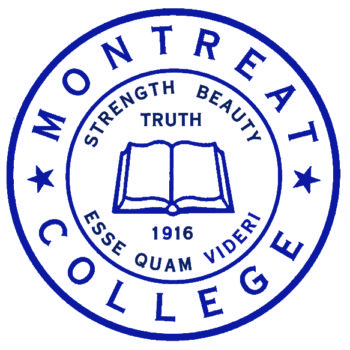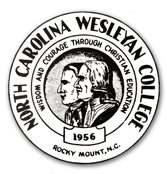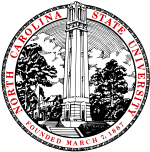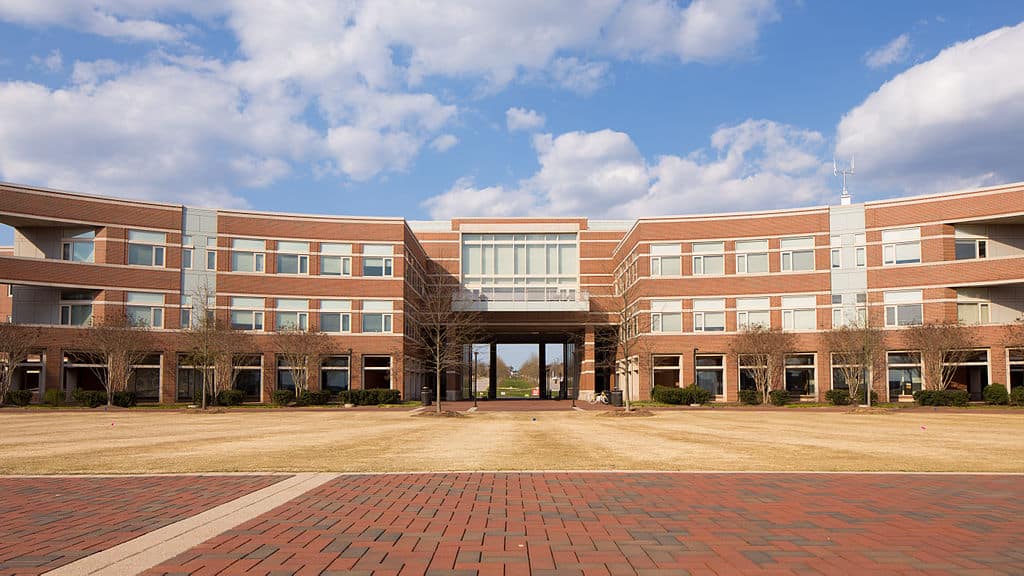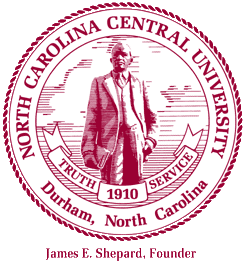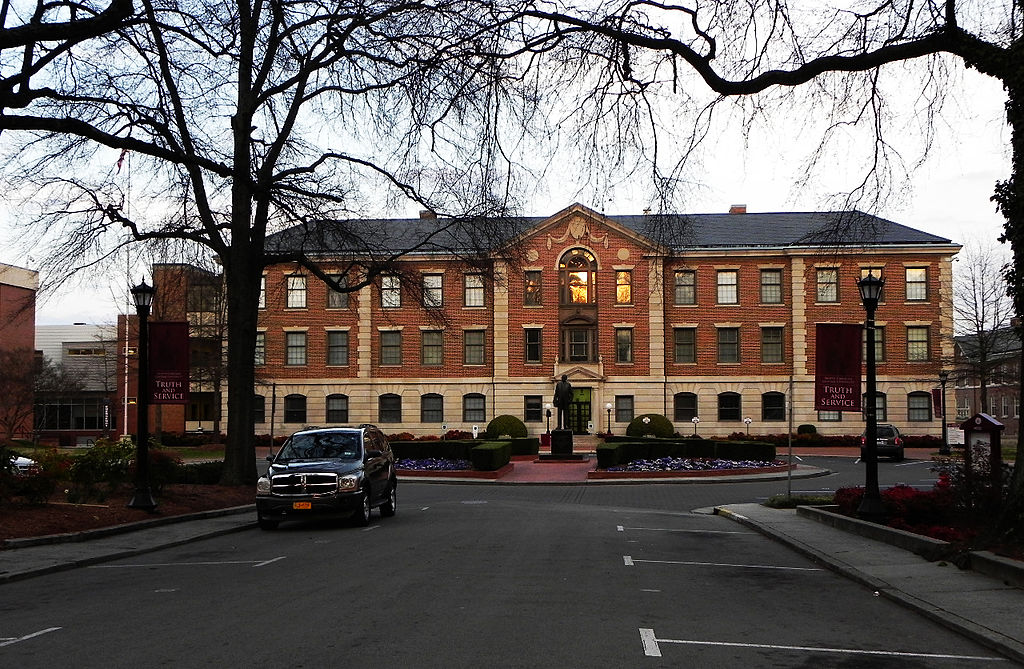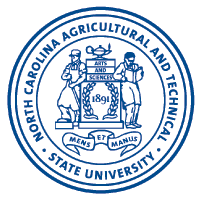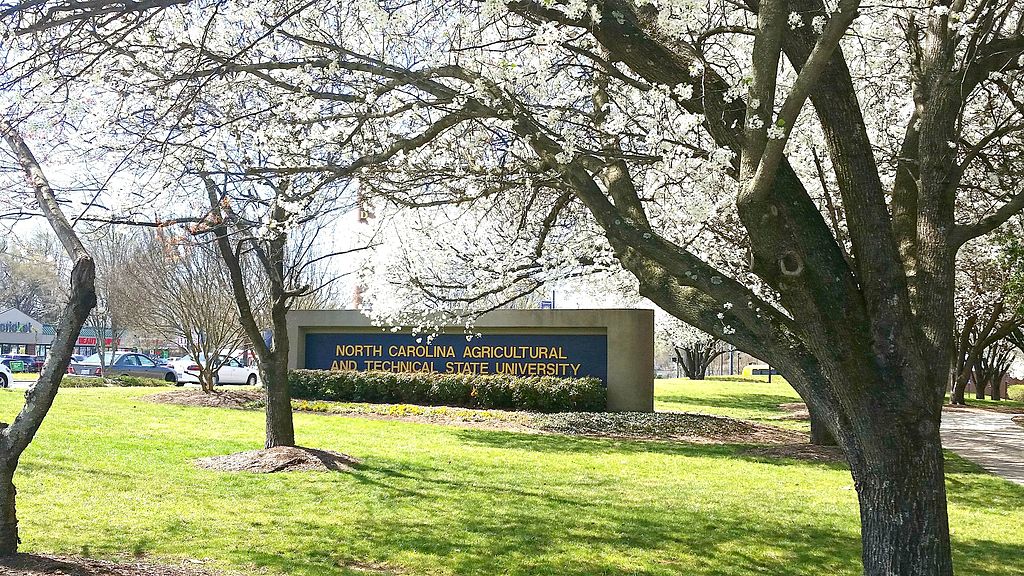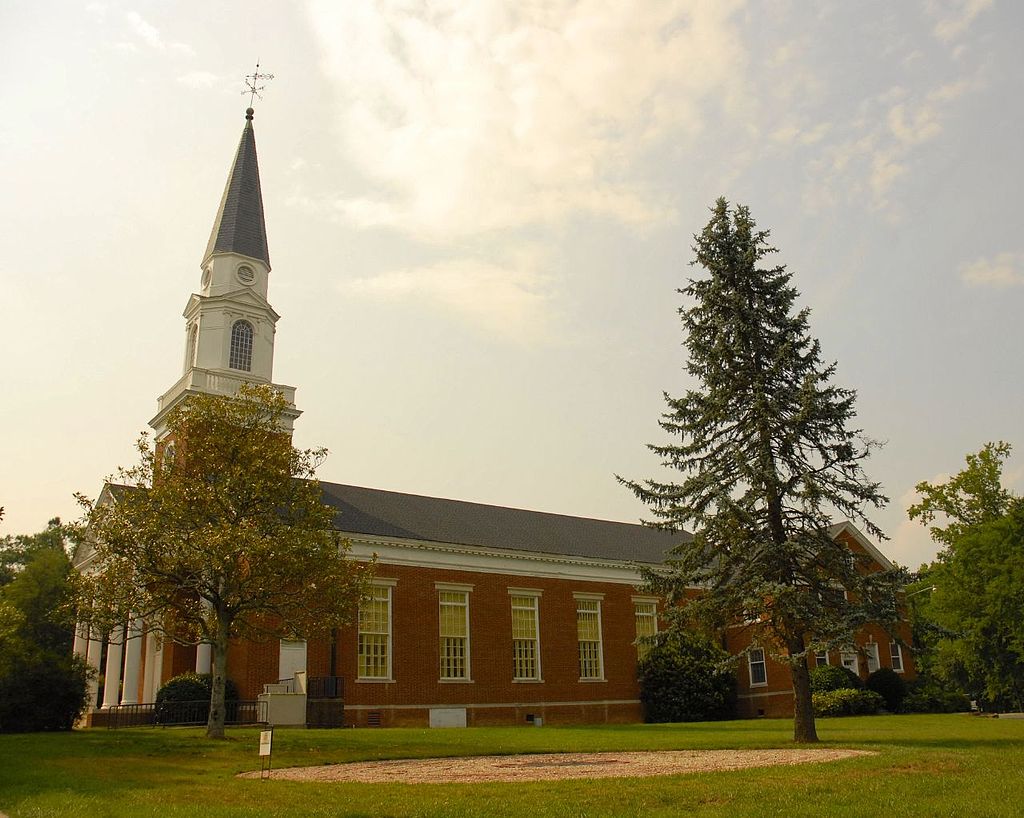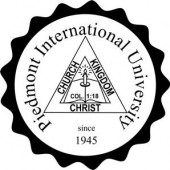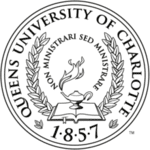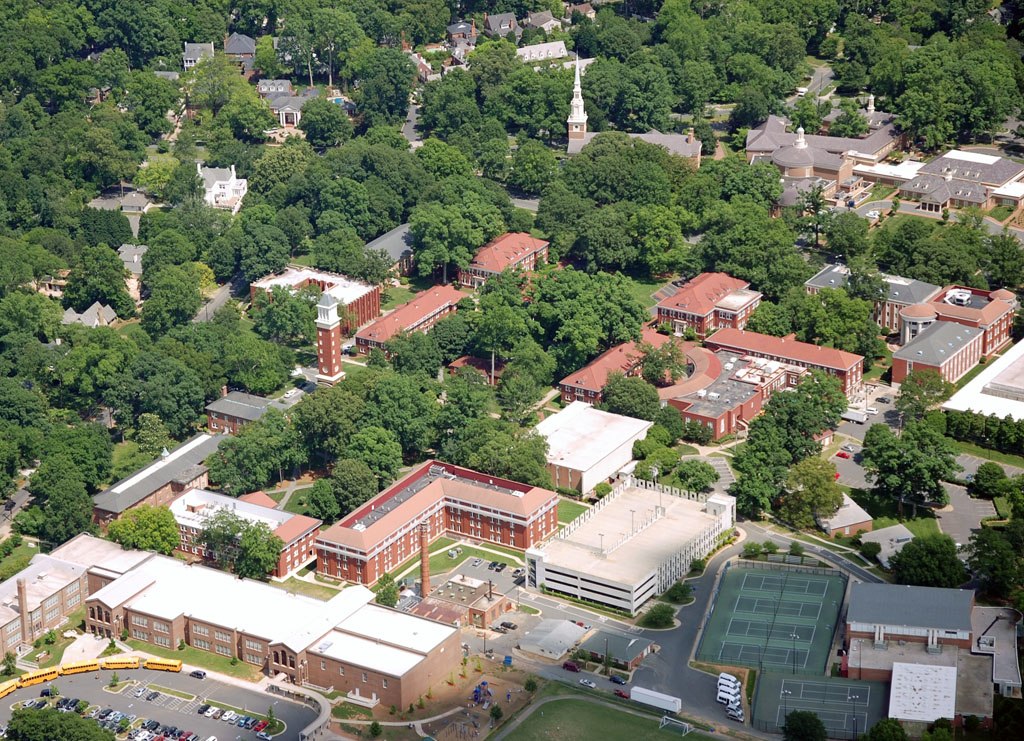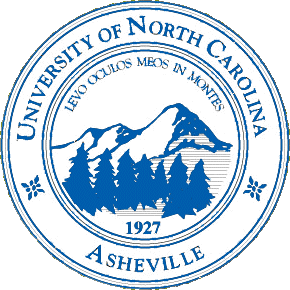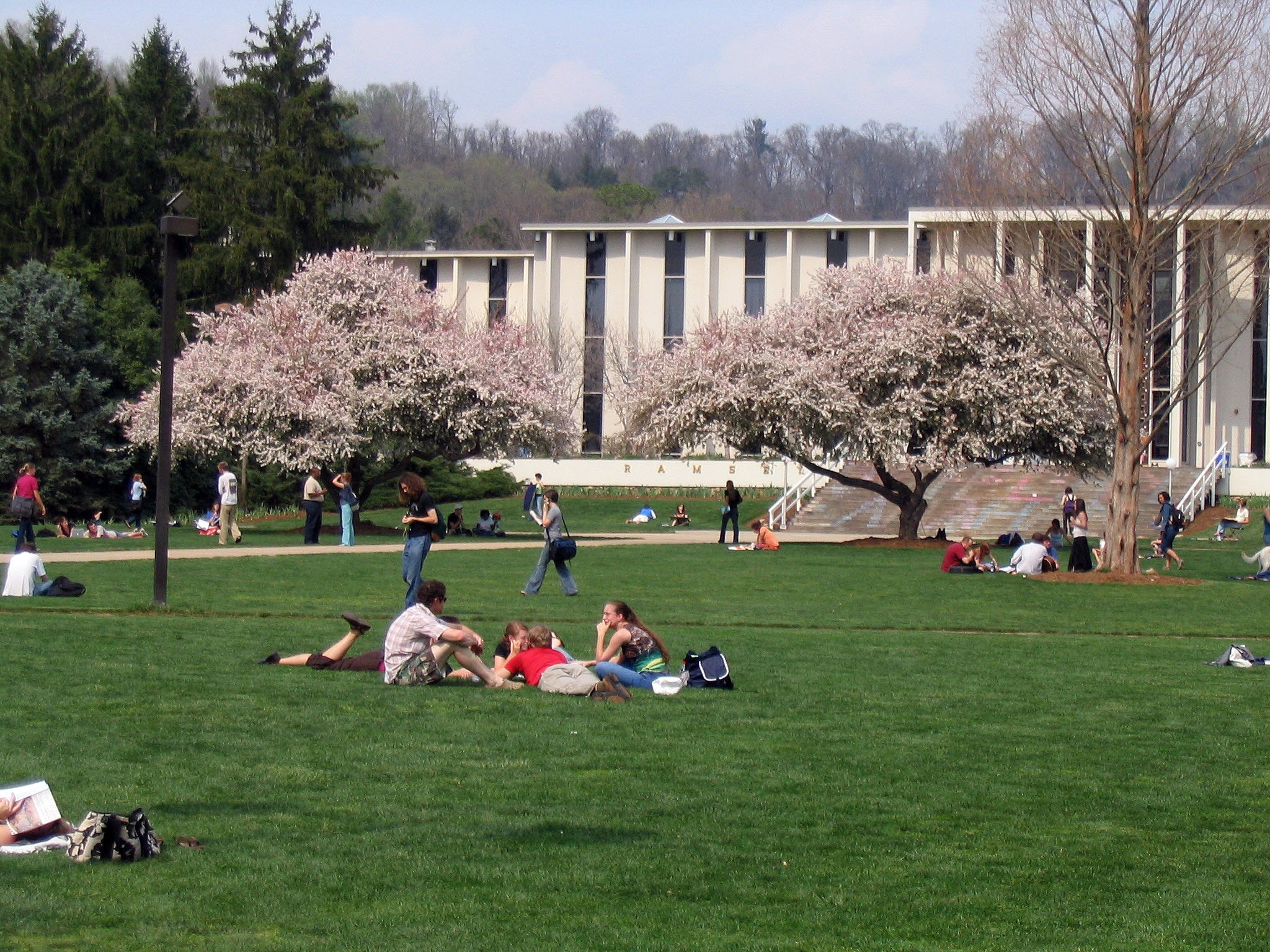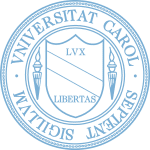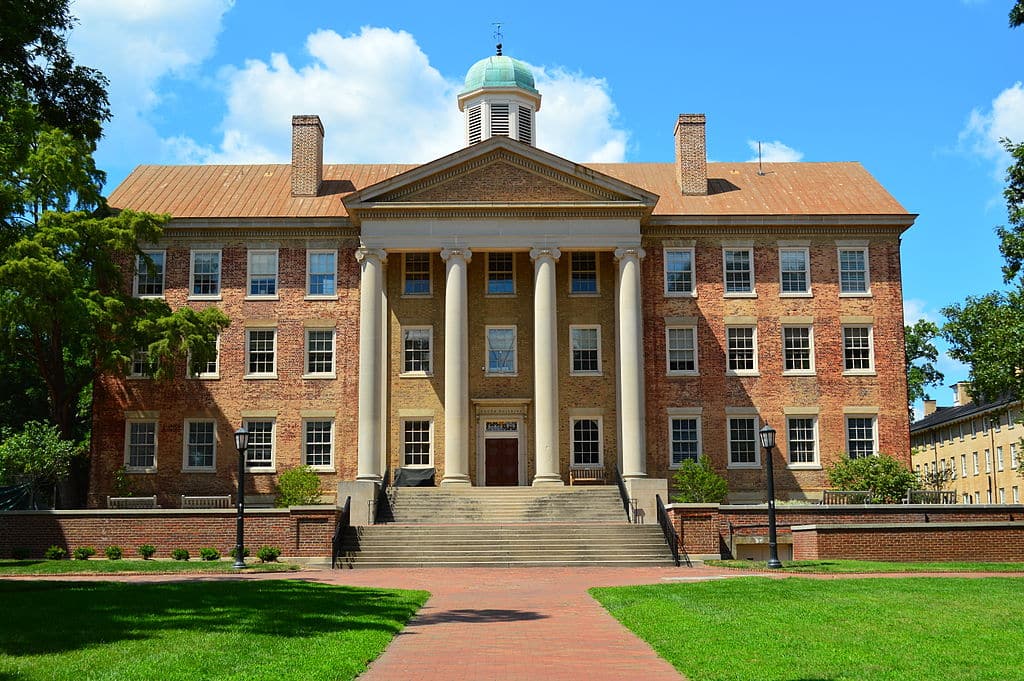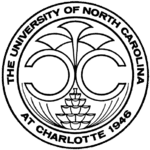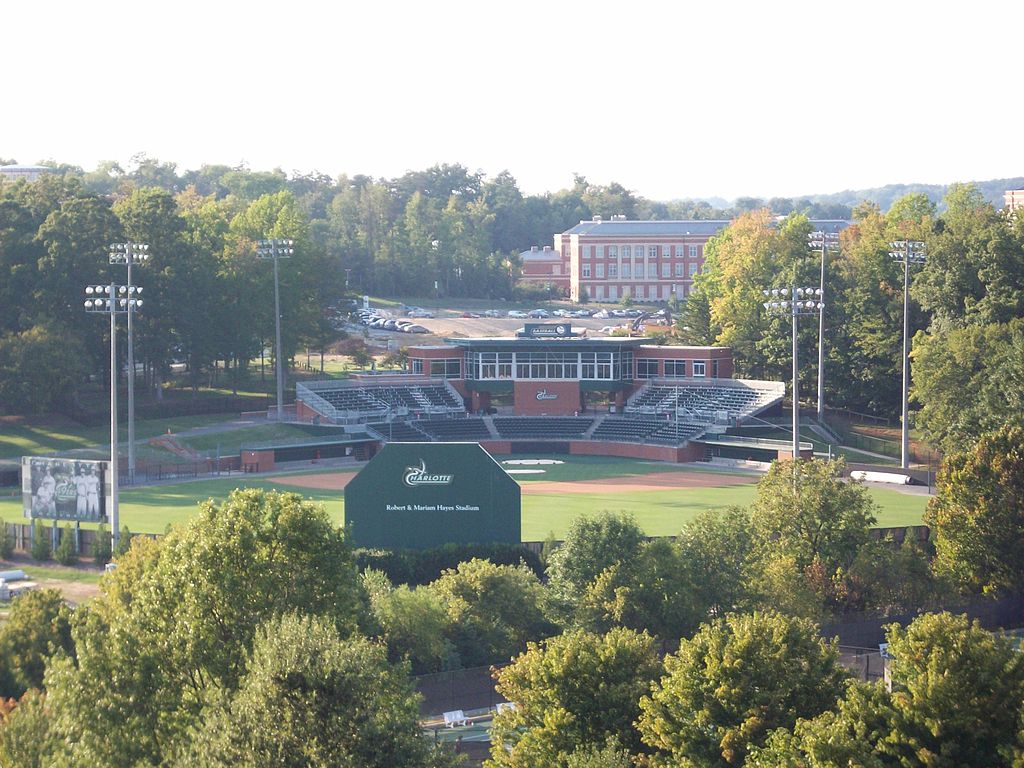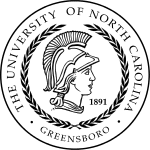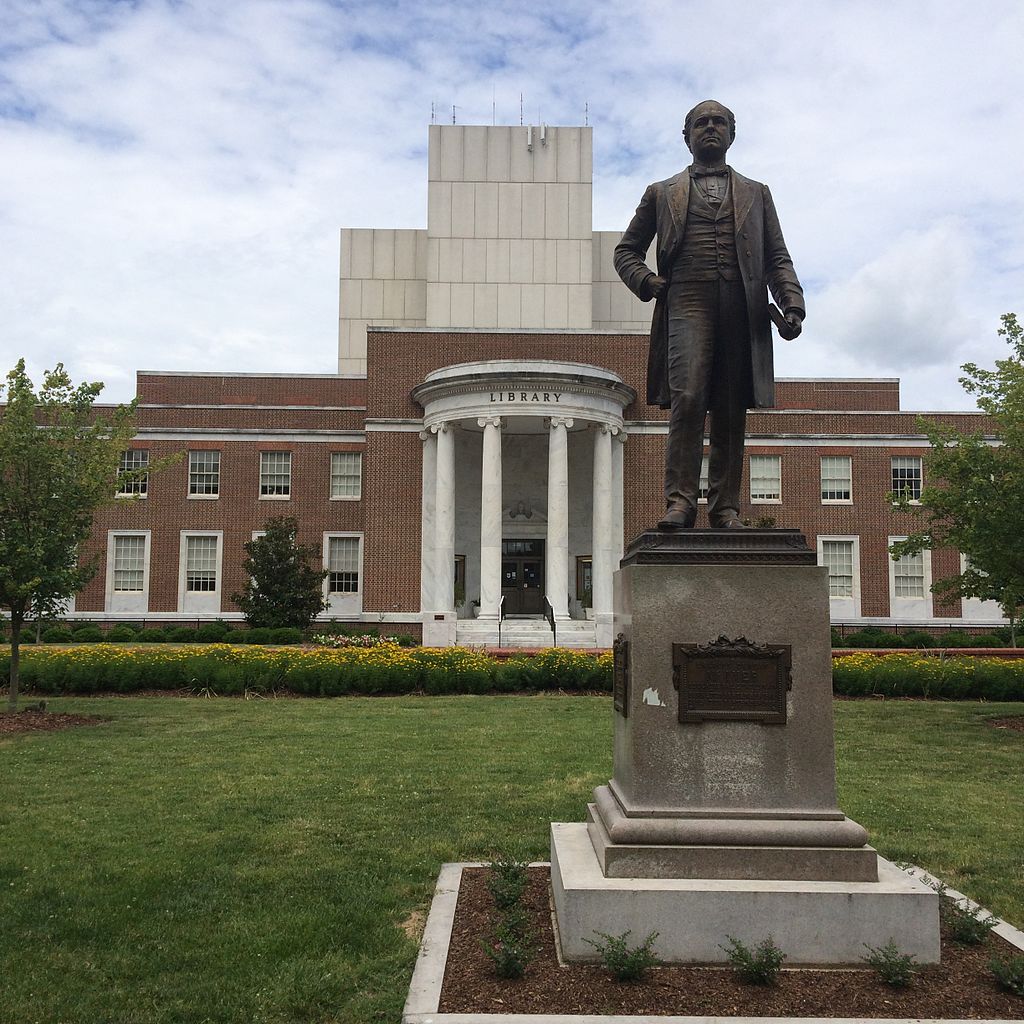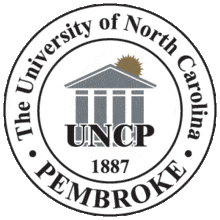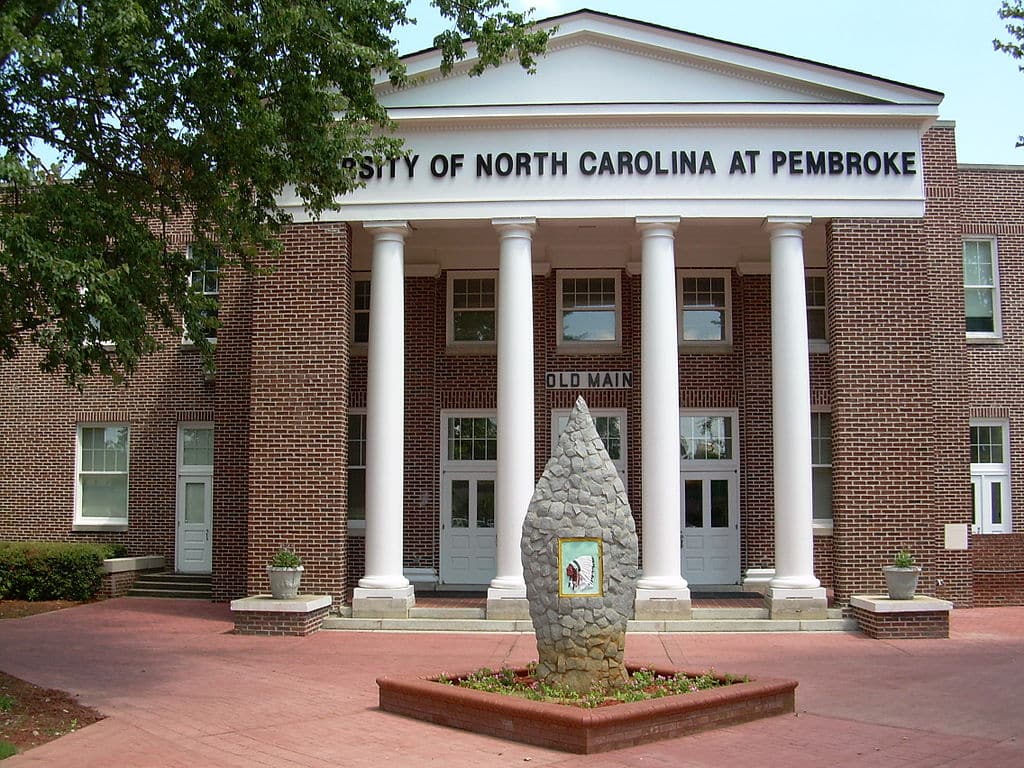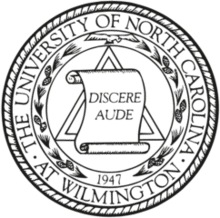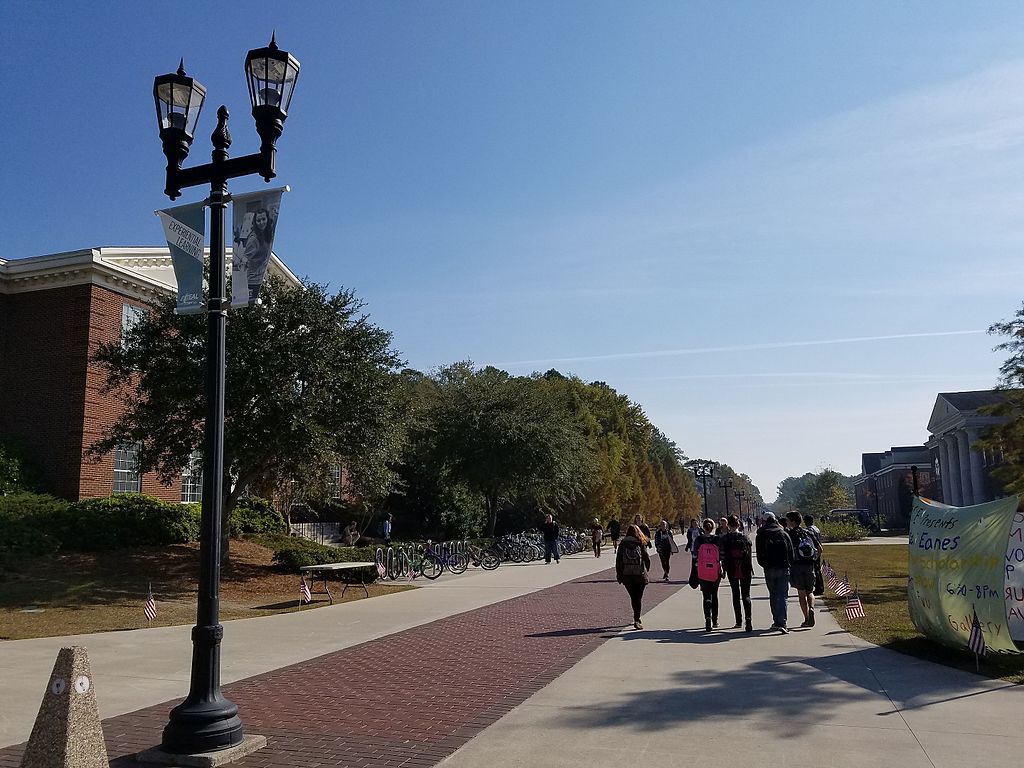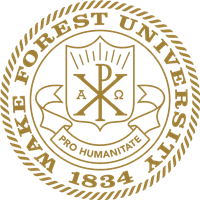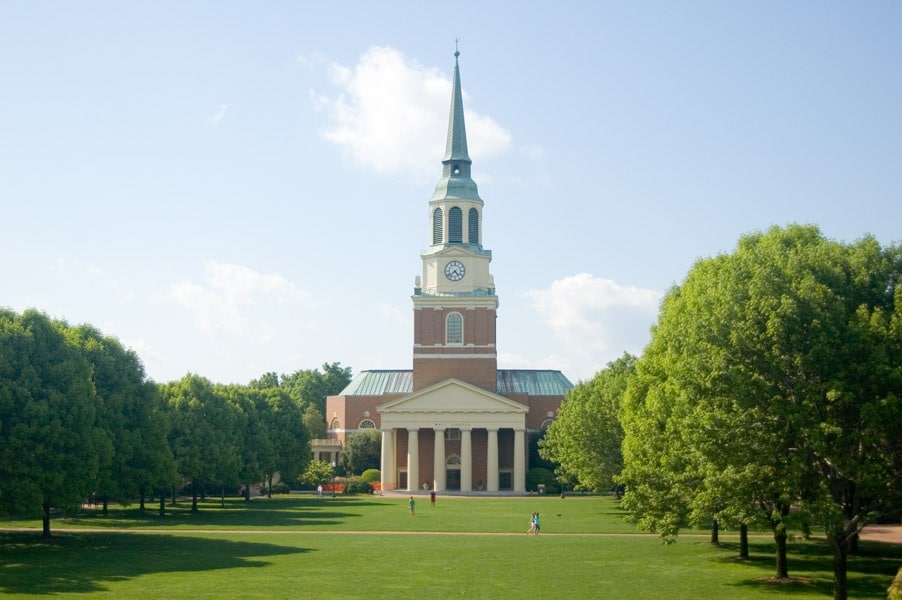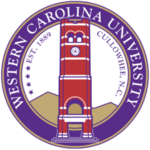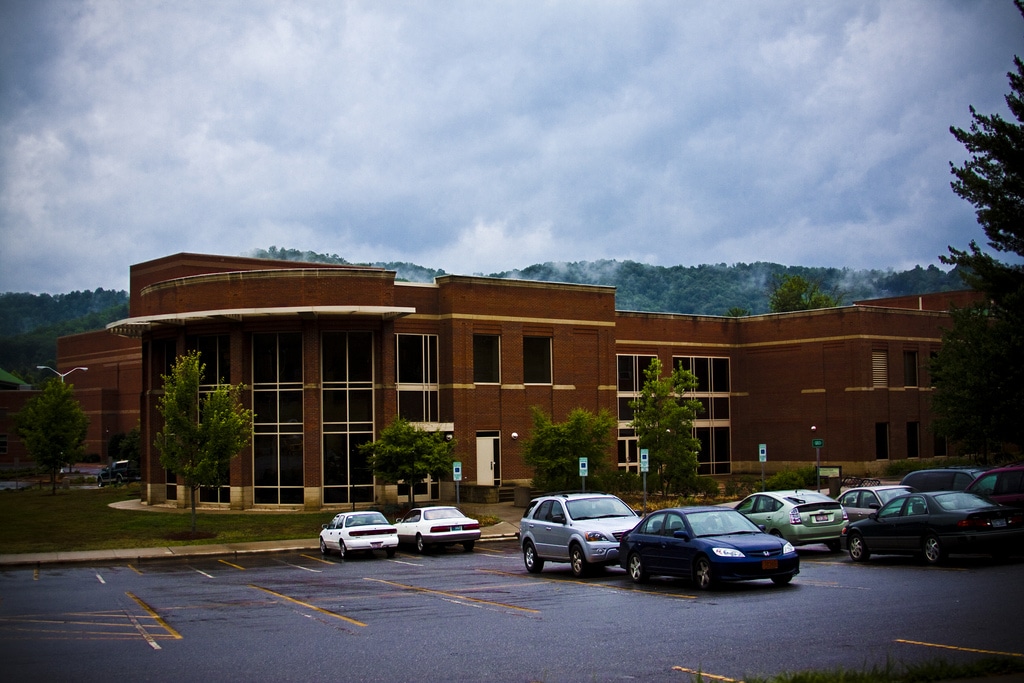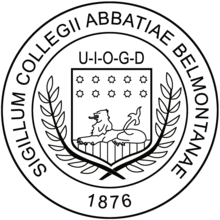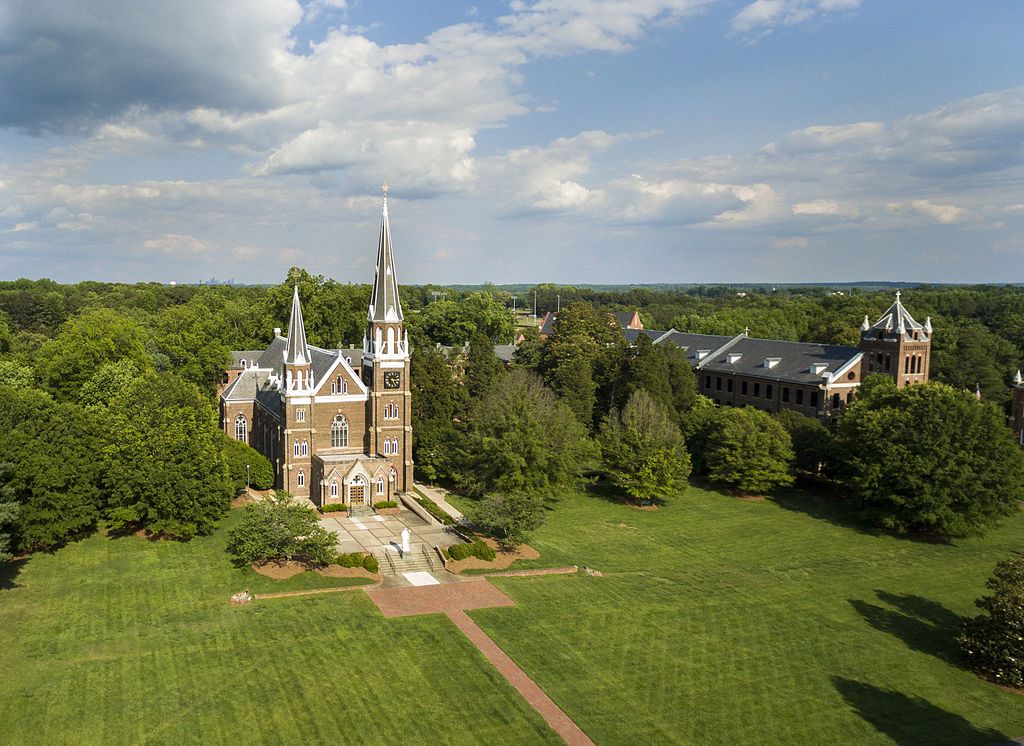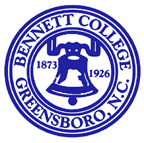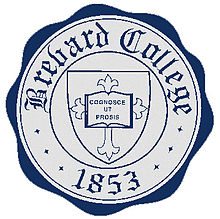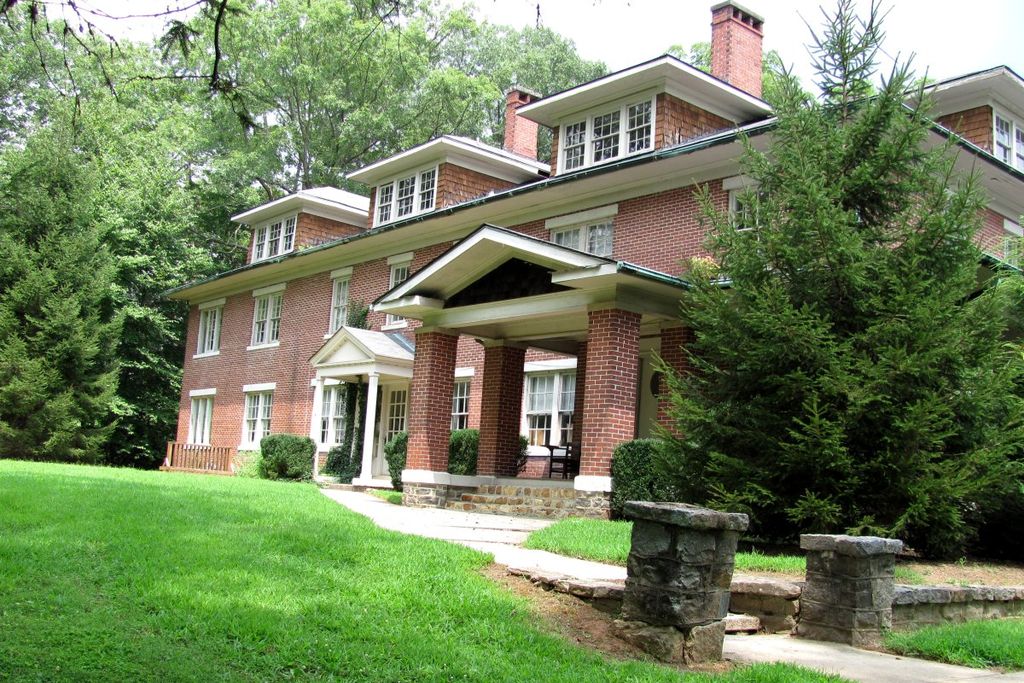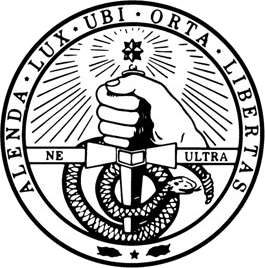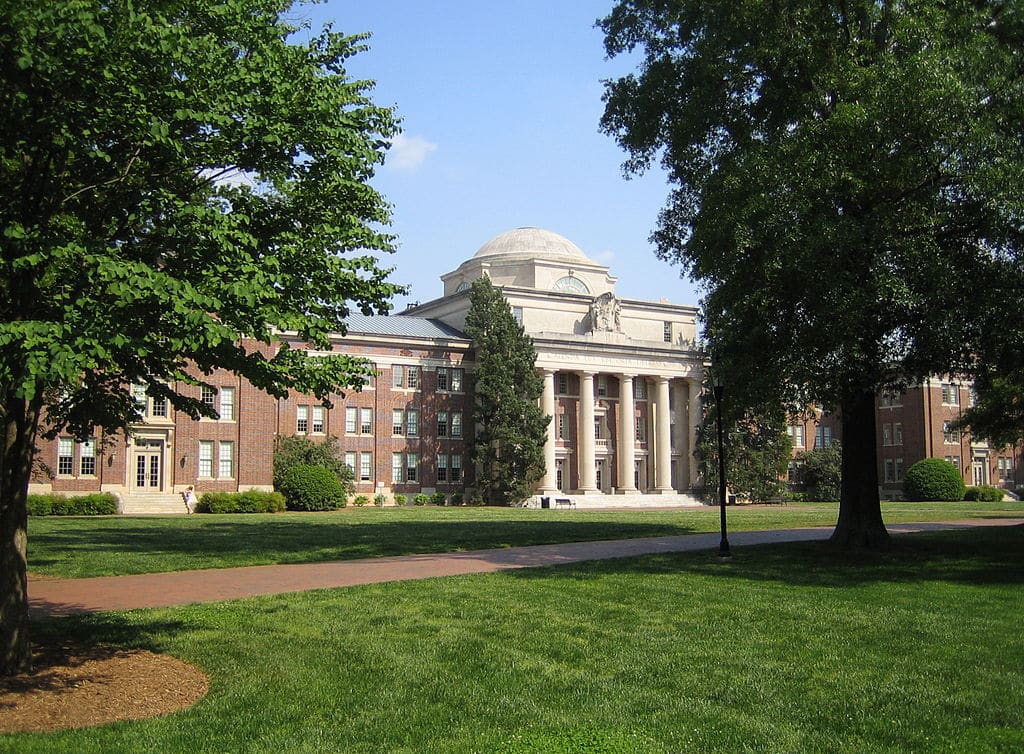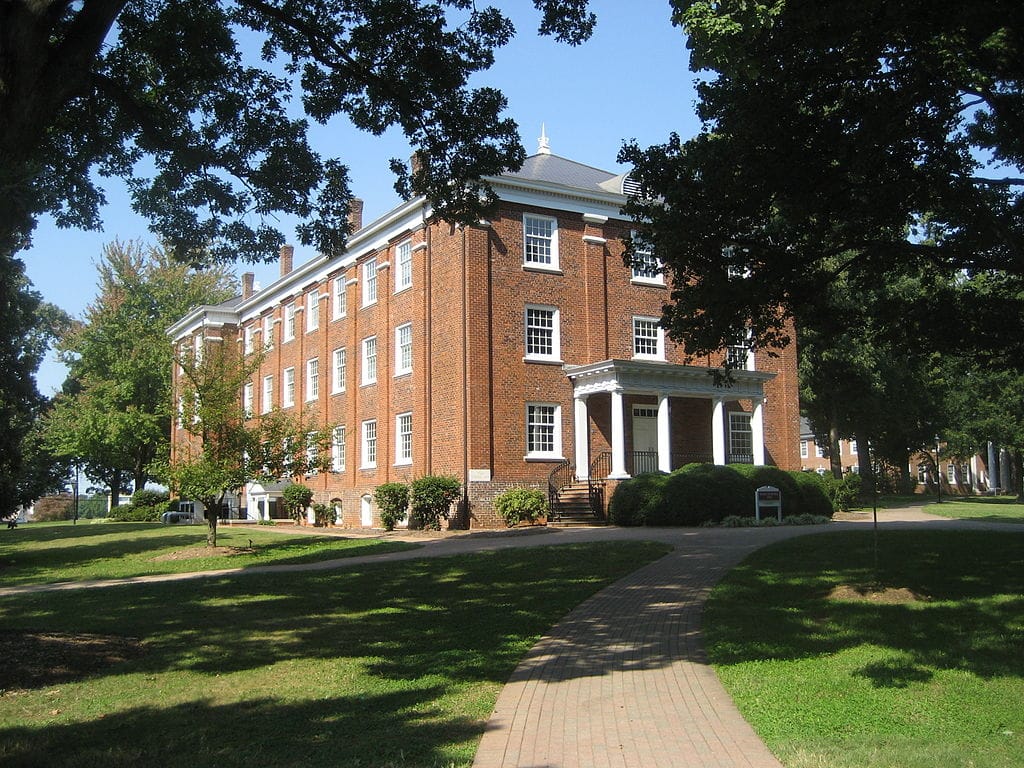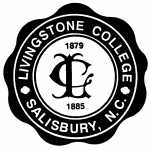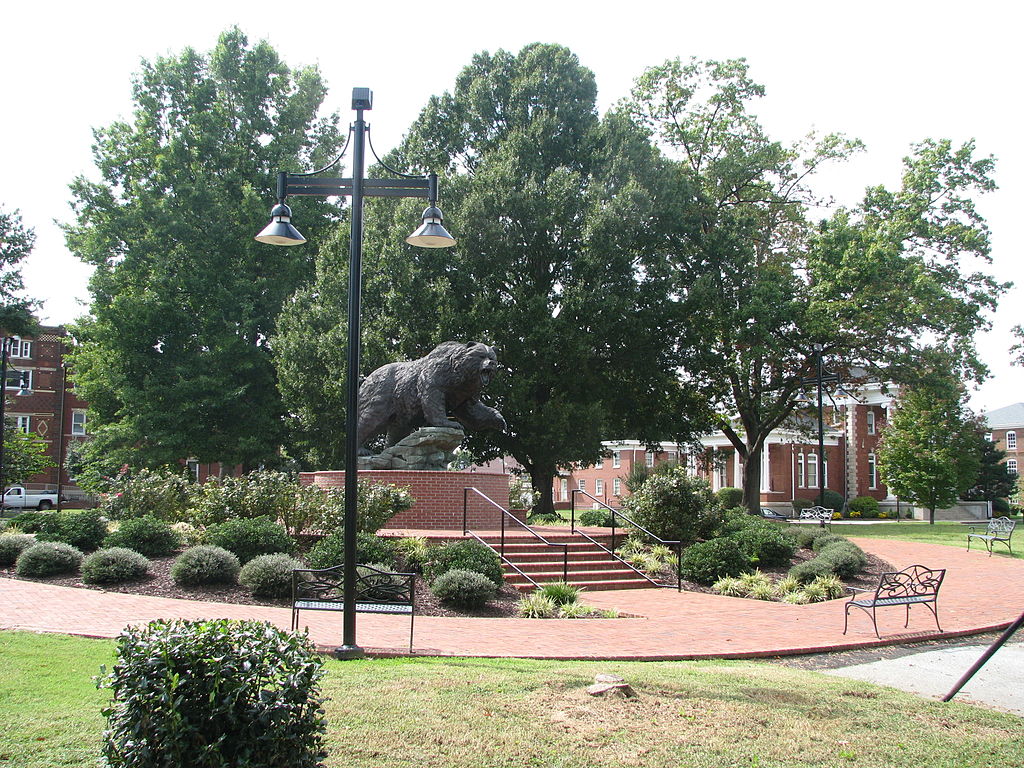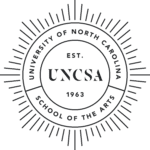Online Colleges in North Carolina
Compare all of the best distance education colleges located in North Carolina to pursue an online bachelors degree, associates, or online masters program degree. Including cost of tuition, degrees they offer, enrollment rates, faculty, famous alumni, and more.
Recommended Schools
-
Appalachian State University
Boone, North Carolina
- 17,932 Total Students
- 66% Acceptance Rate
- 35% Enrollment Rate
- 16 to 1 Student to Faculty Ratio
- 13,083 Total Applicants
- Yes Online Programs
Appalachian began with the Dougherty brothers and their dream to educate the children in remote areas in North Carolina. They founded Watauga Academy in 1899 and the land for the academy was donated by their father, Daniel B. Dougherty, and J. F. Hardin. The academy gradually grew into a teacher training institute and with exceptional leadership over its entire journey the academy’s progress towards becoming a university was inevitable. It became Appalachian State University in 1967 and is part of the University of North Carolina system.
A Public institute based in Boone, North Carolina, Appalachian has emerged as the innovator in the field of education. It was nationally recognized for bringing ‘innovation’ in the educational system when it introduced ‘student teacher program’ and also when it collaborated with New York Loft and App House in Washington, D.C to promote outside campus academic activities.
The campus life at Appalachian is vibrant and vast, covering unique and fun activities for its students. There are arts performances and art centers as an outlet for creative expression of its students along with community service opportunities maintain a balance. With ‘Hunger and Homelessness Awareness’ programs and ‘MLK Challenge’ discussing legacy of Martin Luther King, the students get involved with issues on a global context. There are various physical and outdoor activities held at the campus which are aimed at socializing and bringing fun to the campus, which include concerts, nightlife and also snowboarding, wall climbing and others. Athletics is also held in high spirits. The teams participate in NCAA Division I, with the mascot ‘Yosef the Mountaineer’ and colors Gold and Black.
The academic culture at the university is just as diverse. There are over 150 undergraduate and graduate degree programs. There are more than 20 Graduate Certificate programs as well as a Doctoral Program offered. There are online programs and Study abroad opportunities at the university as well. The prestigious departments at the university are Mariam Cannon Hayes School of Music, Reich College of Education, Walker College of Business, Cratis D. Williams Graduate School and the Carol Grotnes Belk Library & Information Commons.
Appalachian School Facts
- Years Estd.1899
- NicknameMountaineers
- MascotYosef
- MottoEsse quam videri (Latin)
- Motto Eng.To be, rather than to seem
- ColorsBlack and Gold_ _
- LocationNorth Carolina
- Religious AffiliationNot applicable
Famous Appalachian Alumni
-
Eric Bachmann
Entertainment & Arts
An American musician and producer by profession; also the principal member of the groups Crooked Fingers and Archers of Loaf
-
Charles Frazier
Education & Advocacy
A Novelist; known for the work 'Cold Mountain'
-
Mary Ellen Snodgrass
Education & Advocacy
Author; has been two-time New York Public Library award winner
-
Ron Prince
Professional Sports
Formerly served as head football coach at Kansas State University
-
Stephen J. Dubner
Education & Advocacy
Writer; co-author of 'Freakonomics'
-
Chris Swecker
Business & Industry
Head of Corporate Security for Bank of America; formerly having served as the Assistant Director, FBI
-
Stanley South
Science & Medicine
Archaeologist; has also written athe book 'Method and Theory in Historical Archaeology'
-
Chad Barefoot
Politics & Law
Currenty in office as the North Carolina Senator, 18th District
-
Allen Joines
Politics & Law
Current Mayor of Winston-Salem, NC
-
Apex School of Theology
Durham, North Carolina
- 1,151 Total Students
- 17 to 1 Student to Faculty Ratio
- Yes Online Programs
Apex School of Theology was established in 1995 as Apex Academy School of Religion by Reverend Dr. Joseph E. Perkins. It grew out of the need for an institute that provided training for individuals wanting to choose their path in serving in churches. Although there were a quite many institutes teaching religion in the area at the time the institute began, it emerged as an institute calling students from all denominations and providing formal theology training.
Coming years saw the school progressing and being relocated as a result of expansion, finally settling in Durham, North Carolina. ASOT, being a college preparing students as clergy for churches means deeply embedded values in humanity, service and community engagement. These of its ideals emerge from African American religious experience which is said to create a strong sense of diversity and civic justice.
The most unique aspect about ASOT is its affordability of its education for its students. The institute relocated, expanded and developed its academic offerings credible enough to receive accreditation while maintaining its fees at the bare minimum. This is one example of the value the school places on community development. Besides, there are many other community serving activities organized by student organizations; it recently held a ‘coat distribution’ activity for the underprivileged individuals and children. For its students, there is a writing center assisting students in improving their writing skills and help with their assignments and work. There are also weekly chapel services held at the campus.
The academic opportunities offered at the campus are a total of six Bachelor’s, Master’s and Doctoral Programs. There is one Associate Program also offered along with Continuing Education and Online program opportunities. Additionally, ASOT also provides Chaplain Program, which prepares and trains its students to be inducted in the Army National Guard as an Army Chaplain.
ASOT School Facts
- LocationNorth Carolina
- Religious AffiliationInterdenominational
-
Barton College
Wilson, North Carolina
- 1,047 Total Students
- 42% Acceptance Rate
- 18% Enrollment Rate
- 11 to 1 Student to Faculty Ratio
- 2,920 Total Applicants
- Yes Online Programs
Barton had its beginnings as the Atlantic Christian College, being incorporated by the State of North Carolina in 1902. The college however traces its roots much earlier to this, to Barton Warren Stone who founded of the Christian Church. In his lifetime, he practiced law, did teaching eventually becoming a religious leader. He along with Thomas Campbell established the denomination which then played a huge role in establishing the present day Barton College.
It is situated in Wilson, North Carolina and is a Private liberal arts college today. It remains closely affiliated with Christian Church (Disciples of Christ) and with that instills Christian values of commitment, acceptance and leadership with a futuristic as well as global approach.
Campus life at Barton brings a traditional yet unique college experience. The college prides itself on having a small student population which marks it different from other colleges. Students have close interaction with each other as well as their faculty, enhancing the learning experience greatly. Being a liberal arts college, arts is a major factor at the campus. It is not only learnt but rather celebrated. There are art galleries that exhibit works of renowned contemporary artists and the theatre which opened in 2009 and provides gateway for students to experiment and create performance arts. There are student organizations and clubs and a Greek life at the campus as well. It is also not without its religious life. Athletics at the campus consist of 21 teams, participating at the NCAA Division II. The campus mascot is the Bulldog.
Programs at the Barton are provided through eight schools and include six Bachelor Degrees and four Masters Degrees. There are more than 40 major and program choices available. The notable facilities at the campus are Lula E. Rackley Gallery, Kennedy Family Theatre Virginia and Thompson Graves Gallery.
Barton School Facts
- Years Estd.1902
- MascotBulldog
- MottoHabebunt Lumen Vitae
- Motto Eng.They shall have the light of life
- LocationNorth Carolina
- Religious AffiliationChristian Church (Disciples of Christ)
-
Cabarrus College of Health Sciences
Concord, North Carolina
- 452 Total Students
- 94% Acceptance Rate
- 83% Enrollment Rate
- 5 to 1 Student to Faculty Ratio
- 32 Total Applicants
- Yes Online Programs
Cabarrus College is an institute offering education in the field of health sciences. It was founded initially with the aim to provide for nursing education during the time of World War II, with the demand of nurses going up high. It opened in 1942 as Cabarrus County Hospital School of Nursing and started with three year diploma courses. It gradually developed its course offerings and took on its present name in the year 1996.
Based in Concord, North Carolina, the college received its first accreditation by the National League for Nursing (NLN). Recently in 2004, the college partnered with Carolinas HealthCare System NorthEast and the NorthEast Foundation to further develop its campus with the CMC-NorthEast campus, a strategic development resulted from the rising growth needs.
Cabarrus College of Health Sciences brings a highly experiential leaning platform for its students. Excelling at healthcare education and developing committed professionals requires deep understanding of the responsibility and so the campus life at the college focuses on building teamwork and shaping individuals that care. The year begins with Convocation followed by social and community service events such as Fall Festival, Spring Picnic, Craft and DIY events and Blood Drives. There are student organisations with the college that allow students to interact over issues but also those organised as volunteering groups such as the Medical Assistant Student Organization (MASO). There are many other student led groups that support intellectual and leadership development through workshops and projects. The college is also a member of North Carolina Independent Colleges & Universities organization.
Academic programs offered at the Cabarrus College offers undergraduate degrees; three diploma programs, five Associate degree programs with six tracks, two Bachelor’s degrees and a Master’s degree program. Its distinctive department is the Louise Harkey School of Nursing.
Cabarrus College School Facts
- LocationNorth Carolina
- Religious AffiliationNot applicable
-
Campbell University
Buies Creek, North Carolina
- 6,484 Total Students
- 73% Acceptance Rate
- 20% Enrollment Rate
- 16 to 1 Student to Faculty Ratio
- 6,626 Total Applicants
- Yes Online Programs
Campbell is a Private university that was established in 1887 as Buies Creek Academy. The academy was founded by James Archibald Campbell, a young Baptist Minister of 26 years who realized the need for an institute for training for Christian service. From starting a church the institute progressed as a college in 1961 and eventually turned into a university in 1979. As it became a progressive university, it added School of Osteopathic Medicine endorsing its continuous efforts for development.
The university is based in Buies Creek, North Carolina and has come to be known as Campbell University, named after is founder. The institute stays committed to providing both academic and professional excellence to its students. It places its values on Baptist traditions that are to serve the greater purpose of God.
This university brings a campus life which is dedicated to bringing experience which leads to lifelong connections between students, with the faculty as well as the experiences. Its extracurricular activities and learning outside the classrooms begin with student clubs and organisations, more than 100 present on campus, a huge variety to choose from. There are also eight Greek organisations. There are events at the campus such as community service, concerts, social events, on weekends and more. There is Student Government Association (SGA), a student body working for concerns of the students. Students also engage in spiritual life where students either join ministries or take part in mission trips. There are also community service projects such as Inasmuch Day of service, serving the community for a full day, or other events or work with a community partner. Some unique traditions include Ring Ceremony where students receive their official rings, Ghost Walk, a Halloween event or Rub the ’Stache for good luck with the exams. There are athletic teams that take part in NCAA division I and the colors are Orange and Black.
Campbell offers more than 150 programs at undergraduate (more than 100 major options) and graduate levels. There are professional program, adult and online education as well. Its prominent department is Lundy-Fetterman School of Business and its notable facility is Wiggins Memorial Library.
Campbell School Facts
- Years Estd.1887
- NicknameFighting Camels / Lady Camels
- MascotCamel
- MottoAd astra per aspera (Latin)
- Motto Eng.To the stars through difficulties
- ColorsOrange and black
- LocationNorth Carolina
- AthleticsNCAA Division I Big SouthPioneer Football League
- Religious AffiliationBaptist
Famous Campbell Alumni
-
Paul Green
Entertainment & Arts
Recipient of the Pulitzer Prize for Drama
-
Bob Etheridge
Politics & Law
Former member of the U.S. House of Representatives, North Carolina, 2nd District
-
Michelle Koh
Professional Sports
Professional golfer and 2016 Olympian
-
John D. Loudermilk
Entertainment & Arts
American singer and songwriter
-
John Tyson
Politics & Law
Judge at North Carolina Court of Appeals
-
Recommended Schools
-
Carolina College of Biblical Studies
Fayetteville, North Carolina
- 117 Total Students
- 8 to 1 Student to Faculty Ratio
- Yes Online Programs
CCBS is a Bible college that traces its earliest origin to Cape Fear School of Theology in 1973. The institute was founded by Dr. Bill Owens, a local pastor who had a simple vision for his local people. His wish was to better equip the Christian leaders in his region with better knowledge and training for God’s service. However by the time classes were actually held in 1980, the institute changed leadership and name.
Further ahead its journey; the college came to have its present identity in 2012 as Carolina College of Biblical Studies. The college is based in Fayetteville, North Carolina. With the strong vision behind its founding, the college aims to be a starting point for every individual looking for a life and work in service of God and his mission. It opens up the doors for its students to step out into the world with confidence and belief in their education and understanding of Christianity.
CCBS offers rigorous Christian education and lifestyle for it students. This it believes is important for complete and deep immersion into religion and spirituality and to take the heavy responsibility of the work. The students are trained through Campus Ministry which involves them with the local communities through service activities. Activities include choir singing, teaching to different groups or working as a greeter. Not only does it provide with wider exposure but students get to put their different skills and talents to test and further polish. Students are also encouraged to reach out on international level through Missions Ministry, which arranges for students to serve and experience other culture through mission work internationally. Besides connecting with the community, students are also encouraged to connect with each other and for that there are Student Led Prayers which meet every week.
Academics programs at CCBS consists of degrees offered on campus and those offered online. On campus programs include Associate and Bachelors in Biblical studies, while online education consists of these and also Associates and Bachelors in Leadership and Ministry.
CCBS School Facts
- Years Estd.1973
- LocationNorth Carolina
- Religious AffiliationNot applicable
-
Catawba College
Salisbury, North Carolina
- 1,275 Total Students
- 32% Acceptance Rate
- 31% Enrollment Rate
- 13 to 1 Student to Faculty Ratio
- 3,117 Total Applicants
- Yes Online Programs
Catawba is a Private and coeducational liberal arts college that was founded in 1851, however the story of it began much earlier with the German pioneers, who had come to settle in the region. These settlers facing the need for educational opportunities for their people and by 1834 established Education Society where young men were prepared for the ministry work. Soon it was decided that the Education Society should set up its own college and this gave rise to the present day college.
The college is based in Salisbury, North Carolina where it moved to in 1925 and maintains its affiliation with the United Church of Christ. Over its journey, the college has transformed itself to better reflect the needs of that period and in the present day has transformed itself into an institute grounded in knowledge and as service to people.
The campus life at Catawba College begins with Orientation where students are introduced with the college and around the campus. Introductions consist of seminars, freshmen retreat and other programs. Further ahead in the year, the students find themselves in a lot of student activities through student led clubs and organizations, more than 45 present on campus of varying nature. There are campus traditions such as Wigwam Productions (entertainment) and Catawba Late Nights. With Alpha program the students help the freshmen students to get around the campus. Further volunteering opportunities are provided in partnership with Habitat for Humanity, Pregnancy Support Center, Operations Christmas Child and a few others. Catawba is also working towards sustainability through LEED Certified buildings or partnering with duke Energy for developing sustainable technological solutions. Students also take part in athletics at NCAA Division II. The campus colors are Blue and White.
Academic programs at Catawba consist of over 70 areas of study which include undergraduate with majors and minors as well as graduate degree programs. These are offered through five schools. Its prominent departments and facilities include Ketner School of Business, Shirley Peeler Richie Academy for Teaching and Corriher-Linn-Black Library.
Catawba School Facts
- Years Estd.1851
- NicknameCatU
- MottoScholarship. Character. Culture. Service.
- ColorsCatawba blue and white
- LocationNorth Carolina
- Religious AffiliationNot applicable
Famous Catawba Alumni
-
Tara LaRosa
Politics & Law
Field hockey player and current mixed martial artist
-
T. J. Rooney
Politics & Law
Former chair of Pennsylvania Democratic Party and member of the Pennsylvania House of Representatives
-
Jerry Sands
Professional Sports
Outfielder/first baseman for the Los Angeles Dodgers
-
Jumal Rolle
Professional Sports
NFL player for the Houston Texans
-
William Lacy Swing
Politics & Law
Former United States Ambassador; also United Nations Special Representative of the Secretary-General
-
Pat McCrory
Politics & Law
Mayor of Charlotte, North Carolina from 1995–2009; and also Republican Governor of North Carolina
-
Jim Tomsula
Professional Sports
Formerly served as head coach for the San Francisco 49ers
-
William Lacy Swing
Politics & Law
Formerly served as United States Ambassador and United Nations Special Representative of the Secretary-General
-
Charlotte Christian College and Theological Seminary
Charlotte, North Carolina
- 122 Total Students
- 4 to 1 Student to Faculty Ratio
- Yes Online Programs
A Private and non-profit institute, CCCTS is an evangelical college which was founded in 1996 by Dr. Eddie G. Grigg. The journey began when Dr. Grigg realized his duty to provide for formalized training and higher education for training of ministers. He began collecting followers who shared his vision and would support him in his endeavours. Efforts started flowing in from all these visionaries and with success and dedication; by 1998 the institute was granted permission to award degrees.
The institute came to its present name, Charlotte Christian College and Theological Seminary in 2014. It is based in Charlotte, North Carolina. The seminary, since its start existed on one purpose, that was to prepare leaders for church, leaders for God’s mission and leaders for people which are highly trained, are knowledge seekers and have sound moral values.
Students and their spiritual and academic development are at the center of focus at CCCTS. Besides high quality academics, the students who are being prepared as leaders for tomorrow need real world exposure as well as practical training. The institute strives to develop spiritual connection which not only serves academic purposes, but also helps students in enhancing their spirituality and connection with God but also gives them a peak of what they have to work for. There is Chapel service on campus which brings students, staff and faculty together as each grow and experience spiritual uplifting and intellectual growth in a collaborative sphere. Further on students are provided with a Student Government Association that exists to facilitate student events and activities. They facilitate students with participation in clubs and organizations in addressing any emotional, academic or social need of the students and overall present true representation of the students at their time at CCCTS.
The academic programs offered at the institute consist of two Associate level programs, four programs at Bachelor’s level, along with six concentrations, two Master’s degree programs and a Doctoral program.
CCCTS School Facts
- Years Estd.1996
- MottoChrist ... through the cities to the world!
- LocationNorth Carolina
- Religious AffiliationNot applicable
-
Chowan University
Murfreesboro, North Carolina
- 1,532 Total Students
- 62% Acceptance Rate
- 19% Enrollment Rate
- 16 to 1 Student to Faculty Ratio
- 4,829 Total Applicants
- Yes Online Programs
Chowan is a Private university that was founded in the year 1848 by Dr. Godwin Cotton Moore. It began as a four year higher education institute for women and was named Chowan Baptist Female Institute. The college was named ‘Chowan’ to honor the people of Native American Algonquin Chowanook tribe and it means people of the south. It became Chowan College by 1910, became coeducational by 1931 and eventually progressed as a university in 2006.
The university is affiliated with Baptist State Convention of North Carolina and is based in Murfreesboro, North Carolina. With its Christian traditions, the institute has always been about transforming the lives of its students through supporting creativity, learning, interaction and intellectual exchange.
On the university campus, students find many activities to be part of. There are more than 45 student led clubs and organisations, which are not only the opportunities for socialising with the rest of the university but also a way to learn and practice leadership skills. There are Honor societies as well. There is Student Government Association which looks after student concerns and Campus Programming Board which organizes events such as movies, game nights and others. The campus ministry at the campus brings opportunity for students to find their spirituality. It organizes worship and service activities such as Residence Hall Bible Studies, Campus Worship, International Justice Mission and more. The mission trips are offered thrice in a year, winter, spring and summer break. There are recreational activities as well. Off campus, students enjoy fishing, rafting, skiing and amusement parks. Additionally there are athletic teams, ‘Hawks’ take part in NCAA Division II. The official mascot is Murf the Hawk and the colors are Chowan Blue and White.
At Chowan, the academic programs consist of 41 majors and 25 minors as part of undergraduate programs. It also offers Masters Program through its graduate school. The notable facilities are Whitaker Library, Robert Marks Hall, Bynum Brown Aquatic Center, Hassell Center, J. M. Jenkins Fitness Center, Reed Hall and many others.
Chowan School Facts
- Years Estd.1848
- NicknameHawks
- MascotMurf the Hawk
- MottoLux et Veritas
- Motto Eng.Light and Truth
- ColorsChowan Blue and White
- LocationNorth Carolina
- Religious AffiliationSouthern Baptist
-
Duke University
Durham, North Carolina
- 15,984 Total Students
- 11% Acceptance Rate
- 49% Enrollment Rate
- 7 to 1 Student to Faculty Ratio
- 31,220 Total Applicants
- Yes Online Programs
Duke is a private and a research university and marks its beginning in year 1838, when Brantley York was appointed to lead a subscription school. With his vision, the school grew into Union Institute. However, the institute soon faced difficulty after York, and so with the help from the state was re chartered as Normal College in 1851. It also relocated permanently in 1892.
Trinity College as it had come to be called was soon renamed as Duke University, in the honor of James B. Duke’s father and family as an honor to his huge endowment. The university has committed itself to equipping its students with knowledge as well as character, through a strong liberal arts education. It is based in Durham, North Carolina.
The campus life at Duke complements its vision by offering every resource that is required for its students to feel empowered. It offers chapel where students pray, worship and are involved in activities of studies and reflection. Other religions and faiths are also given space to be practiced and celebrated. The campus life also extends to other activities such as the Fraternity and Sorority life. There is also active women’s center which works to provide chances for women advancement and invites both men and women to talk on social issues that matter and just engaging with the world. Another important working committee on the campus is the UCAE (University Center Activities & Events) which plans and organises events which not only lead towards development but provide great opportunities for healthy interpersonal communication and network development. There are university athletic teams, serving as recreation for students looking for physical development. Its teams, ‘Blue Devils’ take part at NCAA Division I and the official colors are Duke Blue and White.
Academic programs offered at Duke consist of undergraduate programs with 48 majors and 50 minors, 24 Master’s and more than 50 Doctoral programs. Its notable schools/departments consist of Pratt School of Engineering, the Nicholas School of the Environment, Duke Law School, Pratt School of Engineering, the Fuqua School of Business, and the Sanford School of Public Policy.
Duke School Facts
- Years Estd.1838
- NicknameBlue Devils
- MottoEruditio et Religio (Latin)
- Motto Eng.Knowledge and Faith
- ColorsDuke blue, white_ _
- LocationNorth Carolina
- AthleticsNCAA Division I FBS ACC
- Religious AffiliationUnited Methodist
Famous Duke Alumni
-
Gertrude B. Elion
Science & Medicine
Nobel Laureate in physiology or medicine,1988
-
Frederick P. Brooks
Science & Medicine
Software engineer and computer scientist; National Medal of Technology and Innovation laureate in 1985
-
Claude Allen
Politics & Law
Former White House domestic policy advisor
-
Richard Nixon
Politics & Law
37th President of the United States
-
Bob Krueger
Politics & Law
Former U.S. Representative; also Senator from Texas
-
Maya Ajmera
Social Advocacy & Service
Founder and President of The Global Fund for Children
-
Rex Adams
Business & Industry
Chairman of the Public Broadcasting Service (PBS); also former VP of Mobil Corporation
-
John Canning, Jr.
Business & Industry
Founder of private equity firm Madison Dearborn Partners; also co-owner of the Milwaukee Brewers
-
Theodore E. Long
Education & Advocacy
President of Elizabethtown College
-
Daniel J. Clancy
Science & Medicine
Computer scientist; engineering director for Google Book Search
-
Joe M. McCord
Science & Medicine
Biochemist; discovered the enzyme superoxide dismutase
-
Nathaniel Lande
Entertainment & Arts
Author, filmmaker, and former creative director of TIME magazine
-
East Carolina University
Greenville, North Carolina
- 28,289 Total Students
- 69% Acceptance Rate
- 37% Enrollment Rate
- 18 to 1 Student to Faculty Ratio
- 16,871 Total Applicants
- Yes Online Programs
A public institute and a research institute, ECU traces its roots to March 08, 1907 when it was chartered as East Carolina Teachers Training School (ECTTS) by the North Carolina General Assembly. It held its first classes in 1909. By 1920 it transformed into a four year institute and consequently added bachelors and masters degree programs.
It changed names over its entire period and came to its present name East Carolina University when it was officially given a university status in 1967. Based in Greenville, North Carolina, the university is on a mission to become a national university with a futuristic and innovative approach to improving communities and adding to the quality of life.
The campus life at ECU is extensive and inclusive of every activity that it believes results in growth of its students. Students at the university feel heard and empowered with offices and associations working for their interests. There is active Student Government Association which organizes student activities and programs. It also serves as a leadership opportunity as students take up positions and work on campus. Leadership is further enhanced as students take part in civic activities, going off campus and serving the community and advocating social change. There is also an Office for student affairs which is responsible for arranging events and activities on campus. It also regulates over more than 400 student led groups and organisations offering activities of various interests and acting as social units on campus. Students also engage in arts and performing arts by doing ensembles, theatres, or dances and others. The university also has athletic participation at NCAA Division I; its mascot is the ‘PeeDee the Pirate’ and its colors are Purple and Gold.
As for the academic programs at ECU, these are 88 bachelors, 72 masters, five professional doctoral and 12 research doctoral programs. It also offers 79 departmental certificates. Some of the notable departments/facilities are Brody School of Medicine, J.Y. Joyner Library, Clark-LeClair Stadium, Leo W. Jenkins Cancer Center, Thomas Harriot College of Arts and Sciences, A.J. Fletcher Music Center, William E. Laupus Library and Jarvis Residence Hall.
ECU School Facts
- Years Estd.March 8, 1907 (1907-03-08)
- NicknamePirates
- MascotPeeDee the Pirate
- MottoServire (Latin)
- Motto Eng.To Serve
- ColorsPurple and Gold
- LocationNorth Carolina
- AthleticsNCAA Division I (FBS)American Athletic Conference
- Religious AffiliationNot applicable
Famous ECU Alumni
-
Mark Kemp
Entertainment & Arts
Author; former editor of Discover Magazine and also former Vice President of Programming for MTV
-
Dave Odom
Professional Sports
Former Head Basketball Coach at South Carolina Gamecocks, Wake Forest Demon Deacons, and East Carolina Pirates
-
John Jett
Professional Sports
National Football League player
-
Constance Bumgarner Gee
Science & Medicine
Scholar; also advocate for the medical use of cannabis
-
Loonis McGlohon
Entertainment & Arts
Composer, producer and arranger; Peabody Award winner and Grammy-nominated
-
Velton Ray Bunch
Entertainment & Arts
Composer and arranger; also an Emmy Award winner
-
Donald G. Davis
Politics & Law
Senator North Carolina Senate; also Mayor of Snow Hill
-
William C. Harrison
Politics & Law
Chairman and CEO of the North Carolina State Board of Education
-
Gary H. Wilfong
Politics & Law
Brigadier general; Assistant Adjutant General and also Commander of the North Carolina Air National Guard
-
Elizabeth City State University
Elizabeth City, North Carolina
- 1,585 Total Students
- 70% Acceptance Rate
- 25% Enrollment Rate
- 15 to 1 Student to Faculty Ratio
- 1,531 Total Applicants
- Yes Online Programs
ECSU is a public and historically black institute that was established in year 1891 as a normal school when the bill proposing the school was approved by the N.C. General Assembly. As the school gained prominence, it progressed and soon started offering four year education. Further ahead in the 20th century, it expanded its academic curriculum to include 11 majors and hence was changed into a state college.
By 1969, it gained university status and so renamed as Elizabeth City State University. With the diversity that the institute has achieved, it aims to contribute to economic, social development of its communities as well as personal and professional development of its students through its high academic standards. It is based in Elizabeth City, North Carolina.
At ECSU students find plenty of activities and opportunities to spend their valuable time learning something new every day. There are over 30 student clubs, organisations and association which serve as important platforms for development and activity. This also includes the Greek and Honor Societies. Students interact with each other, form relationships as well as learn and practice leadership through these organisations including the Student Leadership Development. Further student activities exist through cultural, social and recreational programs. Students get to make connections beyond not just the campus, but also their local communities as the community engagement on campus enables them to understand, learn about and interact with national and international communities. This helps develop exposure and multicultural perspective. For recreation, there is athletic participation at the NCAA Division II. Its teams are called ‘Vikings’ and the campus colors are Blue and White.
As for the academic programs, ECSU consists of 28 baccalaureate degree programs and four graduate degree programs. Its prominent departments/facilities are Walter N. and Henrietta B. Ridley Student Complex, Willie and Jacqueline Gilchrist Education and Psychology Complex, Herman G. Cooke Department of Natural Sciences, Helen M. Caldwell Department of Education & Psychology and G. R. Little Library.
ECSU School Facts
- Years Estd.1891
- NicknameVikings
- Motto"To Live is to Learn"
- ColorsBlue and White
- LocationNorth Carolina
- AthleticsNCAA Division II CIAA
- Religious AffiliationNot applicable
Famous ECSU Alumni
-
Reggie Langhorne
Professional Sports
Former NFL wide receiver
-
Name Class year Notability Reference(s) Reggie Langhorne 1984 Former NFL wide receiver Anthony Hilliard
Professional Sports
Professional basketball player
-
Norm Caruso
Entertainment & Arts
YouTube Personality
-
Tim Cofield
Professional Sports
Former NFL and CFL linebacker
-
Jethro Pugh
Professional Sports
Former NFL defensive tackle
-
Elon University
Elon, North Carolina
- 6,631 Total Students
- 56% Acceptance Rate
- 26% Enrollment Rate
- 12 to 1 Student to Faculty Ratio
- 10,256 Total Applicants
- Yes Online Programs
Elon is a private liberal arts university that began its journey as a four year college, Elon College in year 1889 when it was granted charter by N.C. Legislature. The college made developments by leaps and bounds and soon found itself with traits of a modern day institute with addition of campus facilities, sports as well as study abroad opportunities. In 1984, it added its first Masters degree program.
Reaching year 2001, the college gained university status hence becoming Elon University. Based in Elon, North Carolina, this university offers a student centered environment with focus on development from a global perspective, with the ability to comprehend, think creatively and act responsibly.
With its focus on learning and growth through engagement, the university campus at Elon offers over 200 student led groups, clubs and organisations offering various learning platforms; from religious, spiritual, to arts and recreation. There are government associations and the Center for Leadership which aim at developing leadership skills and putting them to practical use by sponsoring events, and local and global engagement. There is great emphasis on community engagement and service works and students along with the faculty put in their volunteer hours to causes and working in service-learning programs. Students find further engagement within the campus through events as well as annual traditions being held at the campus, serving as entertainment and opportunity to make friends. These include College Coffee, Elonthon, student tailgating etc. Integration with the campus life is considered important and hence the new students are provided with extensive orientation programs with helpers called ‘O-Team’ helping new students with their move in. Athletics is also part of campus life and the teams compete at NCAA Division II. The campus colors are Maroon and Gold.
The academic programs at Elon consist of over 60 undergraduate majors, six graduate programs with various interdisciplinary programs. Its prestigious departments/facilities are Martha and Spencer Love School of Business, Moseley Center, McKinnon Hall, Isabella Cannon Global Education Center, Walter C. Latham Baseball Park, Rhodes Stadium, Johnston Hall and others.
Elon School Facts
- Years Estd.1889
- NicknamePhoenix
- MottoNumen Lumen
- Motto Eng.Intellectual and spiritual light
- ColorsMaroon and Gold
- LocationNorth Carolina
- AthleticsNCAA Division I CAA
- Religious AffiliationNot applicable
Famous Elon Alumni
-
John Decatur Messick
Education & Advocacy
Former President of East Carolina University from 1947 to 1959
-
Rich Blomquist
Entertainment & Arts
Writer on The Daily Show, Emmy Award winner
-
Robert Model
Business & Industry
Director on the boards of CapMAC, Theodore Roosevelt Conservation Partnership and Piggly Wiggly
-
Hugh Holliman
Politics & Law
North Carolina House of Representatives Majority Leader
-
Nat Robertson
Politics & Law
Mayor of Fayetteville, North Carolina since 2013
-
Deborah A. Yow
Professional Sports
North Carolina State University Athletics Director; also served formerly at the University of Maryland as Director of Athletics
-
Ward Burton
Professional Sports
NASCAR auto racer
-
Kenneth Utt
Entertainment & Arts
Actor and producer, works are The Silence of the Lambs, Midnight Cowboy, Philadelphia
-
Fayetteville State University
Fayetteville, North Carolina
- 6,104 Total Students
- 60% Acceptance Rate
- 27% Enrollment Rate
- 17 to 1 Student to Faculty Ratio
- 3,943 Total Applicants
- Yes Online Programs
Fayetteville State University (FSU) is the second oldest public school in Murchison Road, Fayetteville, North Carolina. It is a black historic national institute that has been established immediately after the end of the civil war in 1865 as Phillips and Sumner Schools for primary and elementary education respectively. After two years in 1867, the two schools were merged together by black men to inaugurate Howard School to educate black children. In 1877, it was then changed to be State Colored Normal School, a first state school in the South for training African-American teachers. Later on and specifically in 1939, the school expanded again to be Fayetteville State Teachers College, a 4 year education degree granting institute. Afterwards, the school continued growing in the number of enrolled students and offered programs to be Fayetteville State College in 1963. Finally in 1969, the school has become officially a regional university and its name was changed to its current name “Fayetteville State University”.
FSU is one of the major prime educational institutes whose mission is to create real opportunities for diverse school community members to develop highly qualified graduates capable of serving the surrounding society. This comes through offering students a combination of liberal education, personal development, and professional training.
FSU is entirely approved by the Southern Association of Colleges and Schools. FSU students participate in many NCAA sports FSU is one of the Central Intercollegiate Athletic Association (CIAA) members. FSU football team has won CIAA championships in 2002 and 2003. In addition, FSU student established a student online radio station called Bronco-iRadio. A bi-weekly magazine named “The Voice” that covers diverse topics about students life and activities inside the campus.
FSU offers 43 undergraduate degrees, 23 master degrees, and only one doctoral degree. FSU consists of 6 schools and colleges which are: College of Art and Sciences, School of Education, School of Business and Economics, University College, Continuing Education and Summer School, and Military Education.
FSU School Facts
- Years Estd.1867
- NicknameBroncos
- MottoRes Non Verba
- Motto Eng."Deeds not Words"
- ColorsBlue and White
- LocationNorth Carolina
- AthleticsNCAA Division II CIAA
- Religious AffiliationNot applicable
Famous FSU Alumni
-
Chris Armstrong
Professional Sports
former Canadian Football Player.
-
Darrell Eugene Armstrong
Professional Sports
Former basketball player, and a current assistant coach for the NBA's Dallas Mavericks
-
James Blair Bibby
Professional Sports
American Baseball right-handed player
-
Affion Crockett
Entertainment & Arts
American actor, comedian, dancer, rapper ad writer, and music producer. writer, dancer, rapper, comedian and music producer
-
Richard Medlin
Professional Sports
former American football player and runner
-
Gardner-Webb University
Boiling Springs, North Carolina
- 4,329 Total Students
- 53% Acceptance Rate
- 23% Enrollment Rate
- 13 to 1 Student to Faculty Ratio
- 3,866 Total Applicants
- Yes Online Programs
Gardner-Webb University, commonly known as Gardner-Webb, GWU or GW, is a four-year degree granting educational private institute that is located in Boiling Springs, North Carolina. In 1903, both the Kings Mountain Baptist Association (Rutherford County) and the Sandy Run Baptist Association (Cleveland County) initiated a call to inaugurate Boiling Springs High School. It was successfully established in 1905 as a high school for young people where they could be provided by a distinguished educational environment under the impact of the Christian umbrella. In 1928, Springs High School’s status was changed into a college in order to fulfill the new educational requirements in its location. In 1942, Governor O. Max Gardner dedicated his potential, time and fortune for the sake of the development of Boiling Springs Junior College. Consequently, its name was changed to Gardner-Webb College to grace both O. Max Gardner and his wife, Fay Webb Gardner. Gardner-Webb College expanded both academically and physically at a high pace during the years following the World War II. It was fully accredited in 1971, and started to offer master degree of arts in education in 1980. As a result of several expansions and development, Gardner-Webb’s status was finally changed into a university in 1993.
Gardner-Webb aim is to follow Christian and Baptist heritages, achieve academic excellence in liberal arts education and student engagement as well as community diversity.
Gardner-Webb main campus occupies around 225 acres and is located only 50 miles away from Charlotte. In addition, GW has some other remote campuses located in Charlotte, Winston-Salem, Statesville, and Hickory in North Carolina.
GWU is ranked as one of the top graduate schools in the nation in the fields of education and nursing. Its business program is rated as the first among the nation in terms of student services. The university consists of 5 schools and 2 colleges. The most distinctive among them is Godbold School of Business and Hunt School of Nursing. GW offers more than undergraduate degrees with more than 50 majors and 20 minors in addition to 5 graduate degrees.
Gardner-Webb School Facts
- Years Estd.1905
- MascotRunnin Bulldogs
- MottoPro Deo et Humanitate
- Motto Eng.For God and Humanity
- ColorsScarlet and Black
- LocationNorth Carolina
- Religious AffiliationSouthern Baptist
Famous Gardner-Webb Alumni
-
Artis Gilmore
Professional Sports
An American former professional basketball player in the American Basketball Association (ABA) and National Basketball Association (NBA). A member in the Naismith Memorial Basketball Hall of Fame in 2011.
-
Wilbur Joseph Cash
Entertainment & Arts
An American famous author and journalist and commonly known also W.J. Cash. Author of many works about the American South including “The Mind of the South” and “Cash in Mexico”.
-
Ron Rash
Entertainment & Arts
An American novel writer and poet in many magazines and newspapers. A Parris Distinguished Professor in Appalachian Cultural Studies at Western Carolina University.
-
John Edward Drew
Professional Sports
A former professional basketball player. A player in the National Basketball Association (NBA) for 11 successive sessions.
-
Sara McMann
Professional Sports
An American former Olympic wrestler and the first woman to receive a silver medal in the Olympic Wrestling Championship.
-
Nelson Searcy
Social Advocacy & Service
An American pastor and author. Founder of the evangelical church “The Journey Church” in New York and Florida since 2002.
-
Grace College of Divinity
Fayetteville, North Carolina
- 164 Total Students
- 53% Acceptance Rate
- 95% Enrollment Rate
- 6 to 1 Student to Faculty Ratio
- 36 Total Applicants
- Yes Online Programs
Grace College of Divinity (GCD) is a biblical higher education institute located in Fayetteville, North Carolina. It was initially named Grace Leadership institute aiming at supporting the discipleship efforts of the local church. The institute got its current name in 2000 when it started offering structure college curricula by professional academic staff. The college upon its establishment was located in Chapel Hill, North Carolina till it moved in 2003 to its current location inside the main campus of one of the top 100 fastest growing churches in the nation, Manna Church. It grants bachelor, masters and associate degrees in ministry and Christian related fields of study. Currently, the college is operated by a board of directors consisting of 11 members. GCD is affiliated to the Grace Churches International which were in 2012 renamed to mPact Churches.
GCD is a religious higher institute whose aim is focused on preparation of its graduates to be reliable leaders that would have an impact on the surrounding community. It aims at raising the Lord’s World through a combination of theological academic studies, personal development and practical ministry.
Although GCD does not guarantee appointments of its students after graduation, it was found by 2015 that more than 70% of its graduates have been appointed in jobs that are matched with their academic certificates. Besides the offered academic programs, GCD initiated its “Theological Journal”, an online journal in which all the students have the opportunity to enhance their writing and innovative skills through writing articles in diverse topics and fields such as theology, ministry, history, etc.
GCD offers four year-programs to grant a bachelor degree in divinity with different concentrations in Christianity and leadership of churches. In addition, students could get a minor in worship leadership. GCD offers more than 5 associate certificates in more than 5 focused concentrations. Additionally, a master in Christian leadership is offered in GCD. To facilitate learning, GCD offers online learning technology for distant students.
GCD School Facts
- LocationNorth Carolina
- Religious AffiliationOther Protestant
-
Greensboro College
Greensboro, North Carolina
- 978 Total Students
- 75% Acceptance Rate
- 27% Enrollment Rate
- 12 to 1 Student to Faculty Ratio
- 1,095 Total Applicants
- Yes Online Programs
Greensboro College is a coeducational institute of liberal arts. It was established by Rev. Peter Doub and is affiliated with the United Methodist Church. Establishment of the institute started 1843 and the college started its first class three years later. The college states its mission is to provide liberal arts education based on the values of the United Methodist Church. Greensboro is a yellow ribbon and military friendly school.
The college campus covers 80-acres piece of land at Greensboro, North Carolina. Its mascot is “the Pride”. Its athletic teams compete in NCAA Division III and the USA athletic conference.
Greensboro is divided into 5 schools offering undergraduate degree and graduate degree programs. Some of the programs are also provided through online mode of education. There is also the middle college program which allows school students at grades 11th and 12th to complete their high school career while completing courses and earning college credit. This program helps students who had poor progress or unsatisfied with the high school. The college is accredited by Southern Association of Colleges and Schools Commission on Colleges (SACSCOC). Students applying to the students may benefit from one of seven scholarship programs offered in addition to the financial aid program.
Greensboro School Facts
- Years Estd.1838
- MascotThe Pride
- MottoPalma non sine pulvere (Latin)
- Motto Eng.(lit. No palm without dust), No reward without effort
- LocationNorth Carolina
- AthleticsNCAA Division III USA South
- Religious AffiliationUnited Methodist
Famous Greensboro Alumni
-
Sallie Southall Cotten
Entertainment & Arts
American writer and clubwoman
-
Eileen Fulton
Entertainment & Arts
American actress
-
Ryan Nelsen
Professional Sports
former New Zealand professional football player
-
R. Carter Pate
Business & Industry
former CEO of MV Transportation
-
Nickolay Bochilo
Business & Industry
president of Investments-Bell Partners Inc
-
Heritage Bible College
Dunn, North Carolina
- 65 Total Students
- 4 to 1 Student to Faculty Ratio
- Yes Online Programs
Heritage Bible College is a coeducational bible college located in Dunn, North Carolina. The college was established in 1971 under the sponsorship of the Pentecostal Free Will Baptist denomination. The college is a non-denominational institute which aims at providing organized comprehensive training related to bible from Pentecostal perspective preparing the students to the ministry.
The college campus covers 80-acres at a rural area near Dunn. The campus offers several prominent facilities to the students including The Alphin-Ellis Learning Center Library, the Heritage House, and Walter and Madge Pierce Student Center.
The college offers Bachelor of Religious Education, Associate in Christian Studies in addition to online programs. The college succeeded in gaining good reputation for its online programs. The college has been ranked among the top 10 four-year online colleges in North Carolina, top 10 online theology degrees and top 10 online counseling degrees. The college is a member of Transnational Association of Christian Colleges and Schools. It is accredited by TRACS Accreditation Commission. There are four scholarship programs that may provide financial support to the students.
Heritage School Facts
- LocationNorth Carolina
- Religious AffiliationOther Protestant
-
High Point University
High Point, North Carolina
- 4,573 Total Students
- 72% Acceptance Rate
- 17% Enrollment Rate
- 13 to 1 Student to Faculty Ratio
- 10,910 Total Applicants
- Yes Online Programs
High Point University is a private liberal arts higher education institute affiliated with the United Methodist Church. In 1921, the Methodist Protestant Church, which now became the United Methodist Church, decided to establish a college. Citizens of high point city donated a 60-acres land and $100,000. The college was established three years later under the name of High Point College. During the Great Depression, the college faced difficult financial challenges that forced the administration to declare bankruptcy in 1934 and reorganization to reduce its indebtedness. In 1991, the name of the college was changed to High Point University after introduction of the graduate programs.
The University states its mission is to enlighten students’ lives and empower themselves to become leaders within the complex life of the community.
High Point campus is located on a suburban 380-acres land. The campus is designed to be residential campus offering 19 residential halls and 12 dining location including 5 restaurants. It has been ranked Business Insider as #4 for the best university residential halls nationwide. The Campus includes several distinctive buildings as Wrenn Hall, Hayworth Fine Arts Center, Congdon Hall, Finch Hall, Charles E. Hayworth Memorial Chapel and David R. Hayworth Hall among others. The official colors for the university are purple and white while its mascot is called Prowler the Panther. High Point athletic teams compete in NCAA Division I level in the Big South Conference.
The University is divided into 8 schools including David R. Hayworth College of Arts and Sciences, Stout School of Education, Earl N. Phillips School of Business, Congdon School of Health Sciences, Fred Wilson School of Pharmacy, Nido R. Qubein School of Communication and Norcross Graduate School. It offers undergraduate and graduate programs in 48 majors and 51 minors in addition to honors scholars programs and pre-professional programs. The university is accredited by the Southern Association of Colleges and Schools. High Point has been ranked no. 1 by US News and World Report among Regional Colleges South rankings. It has been ranked 559th by Forbes among US universities.
HPU School Facts
- Years Estd.1924
- NicknamePanthers
- MascotProwler the Panther
- MottoNil Sine Numine (Latin)
- Motto Eng.Nothing Without Divine Guidance
- ColorsPurple and white
- LocationNorth Carolina
- AthleticsNCAA Division I Big South
- Religious AffiliationUnited Methodist
Famous HPU Alumni
-
Austin Dillon
Professional Sports
NASCAR driver and champion
-
Cody Allen
Professional Sports
Major League Baseball player
-
Donna Fargo
Entertainment & Arts
Musician and Songwriter, winner of Grammy Award
-
Jack Lucas
Politics & Law
Youngest Marine recipient of the Congressional Medal of Honor
-
Lauch Faircloth
Politics & Law
Former Republican Senator
-
Johnson & Wales University-Charlotte
Charlotte, North Carolina
- 2,218 Total Students
- 72% Acceptance Rate
- 20% Enrollment Rate
- 23 to 1 Student to Faculty Ratio
- 4,537 Total Applicants
- Yes Online Programs
JWU Charlotte is one of the four campuses of Johnson & Wales University that was founded in the year 2004 and traces its history to its present institute JWU which was founded way back in year 1914. It was established by Gertrude I. Johnson and Mary T. Wales and offered business education at the time. Later on it expanded its academics to include engineering, arts, culinary and many others and gradually made its way to become a university. It is accredited by New England Association of Schools & Colleges (NEASC).
Johnson & Wales University-Charlotte is based in Charlotte, North Carolina, and seeks to continue on the mission of its parent institute, offering quality education and achieving excellence in training its students for responsible professional lives and community service.
The campus life at JWU Charlotte is simple yet fulfilling, offering experiential learning to its students through every platform needed to develop needed skills and add to their experiences. There are more than 40 student led clubs and organisation completing a variety of interests and fields. Students find these organisations helpful when learning outside classrooms as well as making new friends and connections. Students are also offered fraternity and sorority life. Furthermore, the campus life is made even better with an active student government; these coupled with leadership development programs such as Emerging Leader Series, Advanced Leader Summit and LEAD Team, helps develop character and confidence of its students to be of service to their communities as well as integrate with students on campus. For those looking for it, there is also space as well as opportunities to practice faith and work towards improving spirituality. Students also enjoy a range of events on campus such as Fall Fest, Spring Fests, Wildcat Welcome, musical concerts, carnivals and others. The campus also has sports and recreation through USCAA varsity sports. The official university colors are Blue and White.
At JWU Charlotte, the academic programs offered are two Associate degree programs and 13 Bachelors degree programs.
JWU Charlotte School Facts
- LocationNorth Carolina
- Religious AffiliationNot applicable
-
Johnson C Smith University
Charlotte, North Carolina
- 1,438 Total Students
- 46% Acceptance Rate
- 17% Enrollment Rate
- 12 to 1 Student to Faculty Ratio
- 4,346 Total Applicants
- Yes Online Programs
Johnson C Smith University is a private coeducational higher education institute located in Charlotte, North Carolina. The university was established in 1867 under the name of the Biddle Memorial Institute in honor of Mary D. Biddle and her husband as she donated $1,400 for the establishment of the institute. The name of the institute was changed to Biddle University according to a new charter from the legislature of the State of North Carolina. It was renamed again in 1923 to Johnson C. Smith University in honor of Johnson C. Smith whose wife provided financial support for the construction of 9 buildings on campus. The institute started to accept women in 1932 and became fully coeducational in 1942. The university joined the United Negro College Fund.
The University main campus covers 105 acres with several distinctive buildings including Biddle Memorial Hall which is listed on the National Register of Historic Places. Other distinctive buildings on campus include Mary A. Carter, Johnson C. Smith Hall, Andrew Carnegie Hall, Jack S. Brayboy Hall-Gymnasium, Jane M. Smith Hall-Chapel and Johnson C. Smith Cottage. The University official colors are gold and navy blue while its mascot is called the Golden Bull. Its athletic teams compete in NCAA Division II and CIAA.
The university is divided into 3 colleges in addition to the Robert L. Albright Honors College. It offers 24 undergraduate degree programs and 1 graduate degree program. Johnson C. Smith has an agreement with Charlotte School of Law called 3+3 partnership. It allows enrolled students to study 3 years at Johson C. Smith University then move to Charlotte school completing their bachelor and JD degrees in a total of six years. The university is accredited by the Southern Association of Colleges and Schools.
JCSU School Facts
- LocationNorth Carolina
- Religious AffiliationNot applicable
Famous JCSU Alumni
-
Tyrone Britt
Professional Sports
former NBA player
-
Frederick C. Branch
Politics & Law
first African American officer in the United States Marine Corps
-
Brian Johnson
Education & Advocacy
former president of Tuskegee University
-
Eddie McGirt
Professional Sports
legendry CIAA football coach
-
Avon Williams
Politics & Law
former Tennessee State Senator
-
John Wesley University
High Point, North Carolina
- 158 Total Students
- 77% Acceptance Rate
- 34% Enrollment Rate
- 15 to 1 Student to Faculty Ratio
- 104 Total Applicants
- Yes Online Programs
John Wesley University is an accredited interdenominational Christian higher educational institute. It was established in 1903 by Reverend Seth Rees and Reverend Charles Weigle. It initially operated under the name of Greensboro Bible and Training School in Greensboro, North Carolina. In 1932, Reverend Jim Green and his ministry took control of the school changing its name to People’s Bible School which is still located in Greensboro. It got its university charter in 1932. Its name was changed again in 1959 to John Wesley College. The name was changed to Laurel University in 2011 before being finally changed to John Wesley University in 2016 to emphasize on the evangelical identity of the university.
The University stresses on the importance of traditional family values, Judeo-Christian ethics, and biblical morality. John Wesley Campus is currently located in High Point, North Carolina in the central Piedmont Triad area. The university athletic teams who are nicknamed the Lions compete in the NCCAA and at the Division 1 level.
John Wesley offers 1 associate of arts program, 7 bachelor of art degree programs, 1 accelerated bachelor of science program, 4 master’s degree programs and 1 doctoral degree program. The university is accredited by the Commission on Accreditation of the Association for Biblical Higher Education.
John Wesley School Facts
- Years Estd.1903 (1903)
- NicknameLions
- MottoLearn. Grow. Impact.
- LocationNorth Carolina
- Religious AffiliationNot applicable
-
Lenoir-Rhyne University
Hickory, North Carolina
- 2,221 Total Students
- 84% Acceptance Rate
- 13% Enrollment Rate
- 12 to 1 Student to Faculty Ratio
- 3,994 Total Applicants
- Yes Online Programs
Lenoir-Rhyne University is a private coeducational institute for liberal arts located in Hickory, North Carolina. It was established in 1891 by four Lutheran pastors. It initially operated in a single room under the name of Highland Academy. The land for establishment of the campus was donated by Captain Walter Lenoir. Its name was changed through its charter four months after its inauguration in honor of the donor of the land. The name was changed again to Lenoir-Rhyne in 1923 in honor of Daniel E. Rhyne who provided significant support to the college with funds and facilities. Five years later, the college got accreditation by the Southern Association of Colleges and Secondary Schools. In March 2008, the board of trustees approved a plan to transform the college into a university which was achieved 5 months later. The year 2012 witnessed the merge between the Lutheran Theological Southern Seminary in Columbia and Lenoir-Rhyne University. Two years later, Grace Chapel was opened in the heart of the campus. In 2016, President Donald Trump visited the college during his presidential election campaign.
The university main campus is located in Hickory covering around 100 acres with several distinctive buildings as Lohr Hall, Lineberger Building, Belk Centrum, P.E. Monroe Auditorium, McCrorie Center, Koinoia House, Cromer Center, Rudisill Library and Isenhour Hall. There is also a branch campus in Columbia, SC covering 17 acres. It also contains important buildings and facilities as the Beam Hall, Yost Building, Price House and Hillcrest Apartment Complex. The university mascot is called Joe Bear. Its athletic teams compete in National Collegiate Athletics Division II as members of the South Atlantic Conference.
The university is divided into 5 colleges offering undergraduate programs in 50 majors in addition to 19 master’s programs. Moreover, Lenoir-Rhyne has 6 academic centers including Reese Institute for Conservation of Natural Resources, Solmaz Institute and The Alex Lee Career & Professional Development Center
Lenoir-Rhyne School Facts
- Years Estd.1891
- NicknameBears
- Motto_ _______ ___________ ____ (Greek)
- Motto Eng.The truth shall set you free
- LocationNorth Carolina
- AthleticsNCAA Division II SAC
- Religious AffiliationEvangelical Lutheran Church
Famous Lenoir-Rhyne Alumni
-
David Hoyle
Politics & Law
former North Carolina State Senator
-
Rick Barnes
Professional Sports
head basketball coach for more than 20 seasons
-
James B. Black
Politics & Law
former and longest-serving Speaker of the North Carolina House of Representatives
-
Tom Segura
Entertainment & Arts
actor, producer and TV writer
-
Burgess Jenkins
Entertainment & Arts
actor who participated in 16 movies including Remember the Titans and Wesley
-
Lees-McRae College
Banner Elk, North Carolina
- 1,033 Total Students
- 67% Acceptance Rate
- 21% Enrollment Rate
- 15 to 1 Student to Faculty Ratio
- 1,400 Total Applicants
- Yes Online Programs
Lees-McRae College is a private four-year college affiliated to the Presbyterian Church. It was established in 1899 by Reverend Edgar Tufts as an institute for females only under the name of The Elizabeth McRae Institute. It was renamed Lees-McRae Institute in 1907 when it got its charter from the State. The college is named in honor of two women; Suzanna Lees and Elizabeth McRae. It has the highest elevation for any college in the east of the Mississippi River as it is located 1,130 m above sea level. In 2005, the program “New Opportunity School for Women” started operating in the college with the aim of educating and employing women in Appalachia. It finally got its current name in 1931 when it became a coeducational junior college. It was granted approval to become a four-year college in 1990.
The college campus is located in a rural area of Banner Elk covering 400 acres. The most distinctive building on campus is the historic Rock House which was built in 1920 using native stones. Other prominent buildings include Tufts Tower, Tate Residence Hall which was originally the town hospital, The Exchange which is the college’s bookstore, the Arthur-Lauritsen-Sanders Track and Field Venue, the William Reynolds Gymnasium and Carol and Glenn Arthur Student Recreation Complex. Off-campus locations include May Wildlife Rehabilitation Center which is dedicated to treatment of injured and orphaned wildlife patients. The official colors of the college are green and gold while its mascot is called Wily the Bobcat. Its athletic teams compete in NCAA Division II and play in Conference Carolinas.
Lees-McRae offers 24 academic programs. It has several specialized student support centers as Dotti M. Shelton Learning Commons, Burton Center for Student Success and Stephenson Center for Appalachia. The college is accredited by the Southern Association of Colleges and Schools
LMC School Facts
- Years Estd.1900
- MascotWily the Bobcat
- MottoIn Montibus, Ex Montibus, Pro Montibus (Latin: In the Mountains, Of the Mountains, For the Mountains)
- ColorsGreen and gold _ _
- LocationNorth Carolina
- AthleticsNCAA Division II
- Religious AffiliationPresbyterian Church (USA)
Famous LMC Alumni
-
Carla Swart
Professional Sports
former professional cyclist
-
Khano Smith
Professional Sports
MLS soccer player
-
Joshua Workman
Politics & Law
Canadian political consultant
-
Brent Bookwalter
Professional Sports
professional cyclist riding for BMC Racing Team
-
Roy Lassiter
Professional Sports
MLS and national team soccer player
-
Mars Hill University
Mars Hill, North Carolina
- 1,410 Total Students
- 61% Acceptance Rate
- 21% Enrollment Rate
- 12 to 1 Student to Faculty Ratio
- 3,010 Total Applicants
- Yes Online Programs
Mars Hill University is a private coeducational university for liberal arts located in the town of Mars Hill, North Carolina. It is part of the Asheville metropolitan area. It was established in 1856 under the name of the French Broad Baptist Institute. The name was changed three years later to Mars Hill, in honor of the hill in ancient Athens on which the Apostle Paul debated Christianity with the city’s leading philosophers. The institute was closed for two years during the American Civil War. Mars Hill became an accredited junior college in 1921 and became a four-year college around forty years later. In 1966, Dr. Fred Bentley was appointed as the college president becoming the youngest college president in the United States at this time.
Mars Hill has a unique campus surrounded by the Appalachian Mountains. It is located in a valley between two hills, on top of which the women and men residential halls are located. The campus offers several distinctive buildings as Blackwell Hall, Founders Hall, Montague Hall, McConnel Hall, Marshbanks Hall, Spilman Hall, Owen Theatre, Cornwell Hall, Moore Fine Arts, Pittman Dinning Hall, Nash Education Hall, Bentley Fellowship Hall, Broyhill Chapel, Wall Science Building, Ferguson Math & Science Center, Chambers Gymnasium, Carter-Humphrey Guest House, Merrill Press Box, Anderson Amphitheatre, MHU Bookstore, Meares Stadium and Ferguson Health Sciences. The official colors of the university are gold and blue while its mascot is called the mountain lion. Its athletic teams compete in the National Collegiate Athletic Association and the South Atlantic Conference.
The university offers undergraduate programs in 35 majors and 33 minors. It also started offering master of education degree program in 2013. The university has been ranked by U.S. News and World Report among top 10 Best Colleges for Veterans in the South and among top 20 Regional Colleges. It is currently sponsored by AdvancED. Mars Hill is accredited by the Higher Learning Commission.
Mars Hill School Facts
- Years Estd.1856
- NicknameMountain Lions
- MottoPro Christo Adolescentibusque "For Christ and For Youth"
- ColorsBlue and gold
- LocationNorth Carolina
- AthleticsNCAA Division II
- Religious AffiliationNot applicable
Famous Mars Hill Alumni
-
John S. Battle
Politics & Law
Governor of Virginia and President of Dwight D. Eisenhower's Civil Rights Commission
-
William L. Brown
Business & Industry
President and CEO of the Bank of Boston
-
Mike Houston
Education & Advocacy
head football coach at James Madison University
-
Graham Martin
Politics & Law
U.S. Ambassador to Thailand, Italy and South Vietnam
-
Dr. Kenneth E. Peacock
Education & Advocacy
former Chancellor of Appalachian State University
-
Meredith College
Raleigh, North Carolina
- 1,949 Total Students
- 60% Acceptance Rate
- 42% Enrollment Rate
- 12 to 1 Student to Faculty Ratio
- 1,721 Total Applicants
- Yes Online Programs
Meredith College is a private college for liberal arts located in Raleigh, North Carolina. The college is female only institute on the undergraduate level while it is coeducational at the graduate studies level. The college was established in 1891 by the First Baptist Church under the name of Baptist Female University. The name was changed in 1904 to Baptist University for Women before being changed again five years later to its current name. The latter was chosen in honor of Thomas Meredith who established the Biblical Recorder. In 1924, the college moved to its current location close to North Carolina State Universityand Research Triangle Park.
The college states that its mission is to provide liberal arts education that prepares the students professionally to become leaders in the society. The college campus covers 225 acres offering several distinctive buildings and facilities as Johnson Hall, Jones Hall, Joyner Hall, Cate Student Center and Book Store, Park Center, The Oaks, Spangler Gazebo & Garden, Studio Theater, Carlyle Campbell Library, Gaddy Hamrick Art Center and Carlyle Campbell Library. The official colors of the university are maroon and white while its mascot is called Avenging Angels. Its athletic teams compete in NCAA Division III as members of the USA South Athletic Conference. Meredith is known for its unique traditions including the Honor Code which is held at the beginning of each year, Cornhuskin’ which is an annual competition festival that last for one week in addition to “Big Sis, Little Sis” mentoring program. The college also hosts Governor’s School East program each year.
The college offers undergraduate programs in 80 different majors and minors. There are also 4 master’s degree programs in addition to certificate programs. Moreover, Meredith has departments for online education, continuing education and adult classes. It is accredited by the Southern Association of Colleges and Schools.
Meredith School Facts
- Years Estd.1891
- MascotAvenging Angels
- MottoLux (Latin)
- Motto Eng.Light
- ColorsMaroon and white
- LocationNorth Carolina
- Religious AffiliationNot applicable
Famous Meredith Alumni
-
Susan Hill
Social Advocacy & Service
activist for women's rights
-
Silda Wall Spitzer
Social Advocacy & Service
chair of Children for Children
-
Sarah Parker
Politics & Law
Chief Justice of the North Carolina Supreme Court
-
Beth Leavel
Entertainment & Arts
musical theatre actor
-
Judy Woodruff
Politics & Law
News presenter of PBS NewsHour
-
Methodist University
Fayetteville, North Carolina
- 2,474 Total Students
- 56% Acceptance Rate
- 21% Enrollment Rate
- 12 to 1 Student to Faculty Ratio
- 4,480 Total Applicants
- Yes Online Programs
Methodist University is a private college that was previously affiliated to the North Carolina Annual Conference of the United Methodist Church. Establishment of the college dates back to 1955 when a group of citizens from Fayetteville, North Carolina established the Fayetteville College Foundation trying to convince the Presbyterian Synod of North Carolina to establish their newly announced 4-year college in the city. In the following year, the foundation approached the North Carolina Conference of the Methodist Church to establish the college collecting donations in the form of 600-acre land, $2 million endowment and $50,000 annual funds. Classes started for the first time three years later with 88 students. The college received accreditation in 1966 from the Southern Association of Colleges and Schools. An evening program was launched at the college in 1975 followed by the addition of an Army ROTC program 2 years later. Methodist College started in 1986 a fund raising campaign to collect $3.5 million that were needed to establish a physical activities center. The center was inaugurated 4 years later under the name of March F. Riddle Center. In 1992, the college invested in energy saving technology by installation of new heating and lighting system at the value of $1.5 million. In 1994, the college administration approved supporting a non-profit group with 30 acres to establish soccer complex consisting of eight courts. In 2006, the college changed its name to become Methodist University following a decision by the board of trustees.
The university campus is located in Fayetteville, North Carolina offering several distinctive buildings and facilities as Mclean Health Sciences Building, Monarch Soccerplex, Mallet-Rogers House, Clark Hall, Stout Hall, Davis Memorial Library and Berns Student Center. The official colors of the university are green and gold while its mascot is called Lion.
The university is divided into 5 undergraduate schools in addition to 5 graduate programs including a doctoral program.
Methodist School Facts
- Years Estd.1956 (as Methodist College)
- NicknameMonarchs
- MascotLion
- MottoVeritas et Virtus (Latin)
- Motto Eng.Truth and Virtue
- ColorsGreen and gold
- LocationNorth Carolina
- AthleticsNCAA Division III USASAC
- Religious AffiliationUnited Methodist
Famous Methodist Alumni
-
Wyatt Worthington II
Professional Sports
professional golfer
-
Mid-Atlantic Christian University
Elizabeth City, North Carolina
- 204 Total Students
- 42% Acceptance Rate
- 59% Enrollment Rate
- 12 to 1 Student to Faculty Ratio
- 224 Total Applicants
- Yes Online Programs
Mid-Atlantic Christian University is a private Christian higher education institute which is supported by the restoration movement represented by Christian churches and churches of Christ. The college was established by George and Sarah BonDurant in 1948 under the name of Roanoke Bible College. It aimed initially at training preachers for eastern North Carolina and the Tidewater region of Virginia. The first class started consisted of 12 students with the first graduation in 1952. The college received accreditation in 1979 by the Association for Biblical Higher Education. In 2005, the college acquired the funds, equipment and academic records of the Eastern Christian College when it was closed. The name of the college was changed 4 years later to Mid-Atlantic Christian University. In 2010, the college witnessed a tragic crime when sophomore Jonathan Schipper was killed by gun fire in his room on campus. A part time student and police officer was convicted with the crime three years later.
The university campus is located in Elizabeth City, North Carolina divided into three different parts; West, East and North Campuses. It offers several distinctive buildings and facilities to the students as Wilkinson Hall which is the first building of the university, Faith Hall, Heritage Hall, Pearl A. Presley Hall, Harold C. Turner Hall, Albert C. Blanton III Campus Life Center. The north campus is just a park and recreational area with no academic or administrative buildings. The university has several unique traditions as the Alumni Rally and Homecoming in addition to the Sneak Day during which the students wake up at 4:00 am to have some fun at one of the secret places of the campus. The university athletic teams, who are called Mustangs, compete in the United States Collegiate Athletic Association.
The university is divided into two schools and 4 academic departments. It offers 25 academic programs granting associate and bachelor degrees.
MACU School Facts
- Years Estd.1948
- NicknameMustangs
- MottoSet for the Defense of the Gospel
- LocationNorth Carolina
- Religious AffiliationChristian Churches and Churches of Christ
Famous MACU Alumni
-
William A. Griffin
Education & Advocacy
former president of MACU
-
Tom Kilian
Social Advocacy & Service
founder of Mercy Partners
-
Ajai Lall
Social Advocacy & Service
founder of Central India Christian Mission
-
Barry McCarty
Education & Advocacy
former President of Cincinnati Christian University
-
Miller-Motte College-Wilmington
Wilmington, North Carolina
- 3,065 Total Students
- 22 to 1 Student to Faculty Ratio
- Yes Online Programs
Miller-Motte College-Wilmington is a private for-profit higher education institute that has 17 campuses spread across six different southern states. The college was established in 1916 by Judge Leon Motte as a training school to train courtroom stenographers. The school relocated to a campus adjacent to the University of North Carolina when it was purchased by Richard and Sharon Craig. It expanded in late 1980s by establishment of a branch campus in Clarksville, Tennessee which later became its main campus. At the same time Miller-Motte also purchased Phillips Business College which was in turn established by the merge of Virginia Commercial College and the Phillips Secretarial School in Lynchburg, VA. In 1998, the ownership of the college was transferred to Delta Career Education Corporation. This was followed by the establishment of several branch campuses and the establishment of online programs that are offered from Wilmington campus.
The college offers 39 academic programs granting diploma, associate degree or bachelor degree. There are also a number of short-term courses and programs offered including Bootcamp accelerated online courses for software development and CDL training for class A tractor trailers. It is accredited by the Accrediting Council for Independent Colleges and Schools. This accreditation will end in 2018 as the the United States Department of Education terminated its recognition of the accrediting council and accordingly the college is seeking accreditation from other agents. The college has partnerships with several businesses in the community to offer the students externships which to get practical training in real life situations. Other services offered by the college to the students include lifetime career assistance which helps them develop throughout their entire career.
MMC School Facts
- LocationNorth Carolina
- Religious AffiliationNot applicable
-
Montreat College
Montreat, North Carolina
- 1,008 Total Students
- 54% Acceptance Rate
- 34% Enrollment Rate
- 18 to 1 Student to Faculty Ratio
- 857 Total Applicants
- Yes Online Programs
Montreat College is a private Christian higher education institute for liberal arts. The first plan for establishing the institute was proposed by Dr. Robert C. Anderson in 1913 when he suggested using the properties of Mountain Retreat Association for a Christian normal school for teachers during the academic year. The college started its first class in 1916 and received its charter in the following year from the State of North Carolina. It was then agreed to provide the equipment and facilities to the college from the Association for 8 months while the college is responsible for paying for the maintenance. The financial balances for the association and the college were kept separate. In 1934, Montreat became a junior college, then it started offering 4-year programs before returning back to become a junior college again in the late 1950s. In 1980s, the college started again offering 4-year degree programs followed by offering graduate programs. The college faced significant financial problems during the Great Recession in 2008 which motivated a proposal to merge with Point University in 2013 which was later rejected.
Montreat has a rural campus covering 43 acres. It has 5 primary buildings which are Anderson Auditorium, McGowan Building, Belk Student Center, Howerton Dinning Hall and Assembly Inn. Additionally, the college operates a branch campus named Black Mountain Campus which is located three miles away from the main campus. It was established in 2001 and currently covers 72 acres. Prominent facilities on the campus include the Manor House, Pulliam Stadium and Roxy Hines Softball Field. The college athletic teams, who are nicknamed the Cavaliers, compete in the Appalachian Athletic Conference as members of the National Association of Intercollegiate Athletics.
The college offers undergraduate programs in 23 majors and 24 minors. There are 5 bachelor degree and 2 associate degree programs offered for adult students including online education. The college has three master’s degree programs.
Montreat School Facts
- NicknameCavaliers
- LocationNorth Carolina
- Religious AffiliationInterdenominational
Famous Montreat Alumni
-
Carlos Lamonte Crawford
Professional Sports
former Major League Baseball player
-
Joseph Chambers
Education & Advocacy
Classical Pentecostal and author of six books
-
Calvin Cylk Cozart
Entertainment & Arts
actor who participated in more than 20 TV shows and 30 films
-
Franklin Graham
Education & Advocacy
president and CEO of the Billy Graham Evangelistic Association
-
Samuel Lee Stewart
Professional Sports
former Major League Baseball player
-
North Carolina Wesleyan College
Rocky Mount, North Carolina
- 2,119 Total Students
- 55% Acceptance Rate
- 19% Enrollment Rate
- 15 to 1 Student to Faculty Ratio
- 3,102 Total Applicants
- Yes Online Programs
North Carolina Wesleyan College is a private 4-year liberal arts college. The college was established in 1956 by the North Carolina Annual Conference of The United Methodist Church as a response to a petition from the citizens of the city of Rocky Mount. The college received its charter and started establishing its campus in the same year. Initial investment at the campus was at the value of $2 million which was used for the construction of the main buildings on campus. The land for the campus was donated to the college from the M.C. Braswell heirs of Rocky Mount. The first was held on campus in 1960 and included 92 students. The first graduation ceremony was held four years later when 33 students received their degrees. North Carolina Wesleyan maintains its affiliation with the United Methodist Church.
The college campus is located in Rocky Mount, North Carolina covering 200 acres. It includes 9 academic and administrative buildings in addition to 6 residence halls. Important buildings on campus include Gateway Technology Center, Bellemonte House, Leon Russell Chapel, the Dunn Center, Braswell Administration Building, Pearsall Classroom Building, Nash Hall, Collins Hall and the Everett Gymnasium. The college athletic teams, who are nicknamed Battling Bishops, compete in NCAA Division III as members of the USA South Athletic Conference. The official colors of the college are blue and gold. The college publishes a student newspaper called “the Dissenter”.
The college offers undergraduate programs in 28 majors in addition to the Roger G. and Gaile Davenport Taylor Honors Program. Additionally, the college offers an adult degree program called ASPIRE which is offered at the main campus in addition to branch campuses in Raleigh-Durham, Goldsboro, Greenville, Washington, Whiteville, and Wilmington. The college is accredited by the Southern Association of Colleges and Schools.
NCWC School Facts
- Years Estd.1956
- NicknameBattling Bishops
- MottoWisdom and Courage through Christian Education
- ColorsBlue & Gold
- LocationNorth Carolina
- AthleticsNCAA Division III, USA South Athletic Conference
- Religious AffiliationUnited Methodist
-
North Carolina State University at Raleigh
Raleigh, North Carolina
- 34,015 Total Students
- 50% Acceptance Rate
- 41% Enrollment Rate
- 15 to 1 Student to Faculty Ratio
- 21,364 Total Applicants
- Yes Online Programs
North Carolina State University (NC SU) is a land, sea and space grant public research university. The university is part of the Research Triangle with Duke University and The University of North Carolina at Chapel Hill. The university was established in 1887 by the North Carolina General Assembly. It was initially named the North Carolina College of Agriculture and Mechanic Arts. According to the segregated system, the university accepted the admission of white students only. The first class was held at the university two years later. In 1918, the name of the university was changed to “North Carolina State College of Agriculture and Engineering”. In 1931, the university merged with the University of North Carolina and the Woman’s College to face the financial difficulties during the great depression. In 1962, the university administration changed its name to the University of North Carolina at Raleigh; however, many students opposed the decision by protesting and sending written letters expressing their dissatisfaction. Accordingly, two years later, the name was changed to “North Carolina State University at Raleigh” however; the “at Raleigh” part is commonly omitted even in official documents. In 1987, the university started establishing a new campus over 62 acres and at total cost of $620 million.
The University main campus is located in Raleigh covering 2,110 acres. It is divided into North, Central and South campuses. The North campus is the oldest and hosts most of the academic buildings. Important buildings on campus include Nelson Hall, Kilgore Hall, Scott Hall, Harrelson Hall, Poe Hall and Daniels Hall. The university has 5 libraries including D.H. Hill Library and James B. Hunt, Jr. Library. The libraries have annual budget reaching around $30 million and host 4.4 million volumes. Additionally, the university operates three branch campuses which are the Centennial campus, the Centennial Biomedical campus and the research campus.
The university is divided into 11 colleges and schools including Poole College of Management and a graduate school. It offers 102 bachelor, 108 masters and 60 doctoral degree programs. Students enrolled at the university may get financial support from scholarships offered including The Park Scholarships.
NC SU School Facts
- LocationNorth Carolina
- Religious AffiliationNot applicable
Famous NC SU Alumni
-
Donald Bitzer
Business & Industry
co-inventor of the plasma display
-
Tom Gugliotta
Professional Sports
former NBA player
-
James W. Owens
Business & Industry
CEO and Chairman of Caterpillar Inc.
-
Dan K. McNeill
Politics & Law
Commander of NATO International Security Assistance Force
-
Hisham Qandil
Politics & Law
former Prime Minister of Egypt
-
North Carolina Central University
Durham, North Carolina
- 8,011 Total Students
- 66% Acceptance Rate
- 22% Enrollment Rate
- 16 to 1 Student to Faculty Ratio
- 7,651 Total Applicants
- Yes Online Programs
North Carolina Central University (NCCU) is public historically black higher education institute in North Carolina Central University. It is among the colleges receiving the Thurgood Marshall College Fund and part of the North Carolina University System. The university received its charter in 1909 and the first class was held at the school in the following year at the Hayti District. It was initially named National Religious Training School and Chautauqua for the Colored Race. In 1915, the college was purchased and restructured. Its name was changed to “the National Training School”. The name was changed again 8 years later to Durham State Normal School before being later renamed North Carolina College for Negroes. By that time, the college was the first state supported 4-year liberal arts college for African American students. In 1937, the college was accredited by the Southern Association of Colleges and Secondary Schools as an “A” class institute but it became a member of the association in 1957. In 1947, the college name was changed to North Carolina College at Durham. The university finally got its current name in 1969.
NCCU campus is located in Durham, North Carolina. The campus contains several distinctive buildings including 11 buildings constructed before 1940 registered as national historic district as Alexander Dunn Hall, Clyde R. Hoey Administration Building and Annie Day Shepard Hall. Other important buildings include Baynes Residence Hall, Benjamin S. Ruffin Residence Hall, Edwards Music Hall, Farrison-Newton Communications Building and Hubbard-Totten Chemistry Building. NCCU campus was listed in 1986 on the National Register of Historic Places. The university athletic teams, who are nicknamed Eagles, compete in the National Collegiate Athletic Association as members of the Mid-Eastern Athletic Conference. The official colors of the university are maroon and gray.
The university is divided into 9 colleges and schools. It operates three research institutes including one for Jazz Music.
NCCU School Facts
- Years Estd.1910
- NicknameEagles
- MottoTruth and Service
- ColorsMaroon & Gray
- LocationNorth Carolina
- AthleticsNCAA Division I
- Religious AffiliationNot applicable
Famous NCCU Alumni
-
Jim Brewington
Professional Sports
former professional football player
-
Jeanne Lucas
Politics & Law
first black elected to the North Carolina Senate
-
Clarence Lightner
Politics & Law
first black mayor of Raleigh, North Carolina
-
Arenda L. Wright Allen
Politics & Law
judge of the U.S. District Court for the Eastern District of Virginia
-
Julius L. Chambers
Politics & Law
founder of the first integrated law firm in North Carolina
-
North Carolina A & T State University
Greensboro, North Carolina
- 10,852 Total Students
- 60% Acceptance Rate
- 49% Enrollment Rate
- 19 to 1 Student to Faculty Ratio
- 6,010 Total Applicants
- Yes Online Programs
North Carolina A & T State University is a public historically black land-grant research university. It was established in 1891 by the North Carolina General Assembly making it one of the oldest public universities in the United States. It was established according to the provisions of the Morrill Land-Grant Acts and was initially named the Agricultural and Mechanical College for the Colored Race. The college started as a coeducational institute till 1901 when its Board of Trustees decided to restrict its admission to male students only. In 1904, the college established a model farm covering 100 acres equipped with modern farm machinery. In 1915, the name of the college was changed again to “Negro Agricultural and Technical College of North Carolina”. In 1925, the college joined the Colored Intercollegiate Athletic Association. Three years later, the college started admitting female students returning to the coeducational state. In 1945, the campus of the college was expanded by purchasing 96-acre land adjacent to its campus which covered at that time 14 acres only. The name of the college was changed in 1967 to “North Carolina Agricultural and Technical State University” when it was recognized by the North Carolina General Assembly as a regional university. It is currently the largest historically black university in the United States.
The university campus is located in Greensboro, North Carolina and is commonly known as “Aggieland”. It contains 123 buildings including 28 academic facilities and 15 residential halls. Prominent buildings on campus include Barnes Hall, Benbow Hall, Campbell Hall, Carver Hall, Coltrane Hall, Bluford Library, War Memorial Stadium, Sebastian Center, Williams Dining Hall, Alex Haley Hall and Morrison Hall. Additionally, the university has an agricultural campus covering 492 acres. The university athletic teams, who are nicknamed Aggies, compete in the NCAA Division I as members of the Mid-Eastern Athletic Conference. The university publishes a newspaper named “the A&T Register”.
The university is divided into 9 colleges offering 177 undergraduate and 39 graduate programs.
North Carolina A & T School Facts
- LocationNorth Carolina
- Religious AffiliationNot applicable
Famous North Carolina A & T Alumni
-
Ronald McNair
Science & Medicine
former NASA Astronaut who died on Space Shuttle Challenger
-
Henry Frye
Politics & Law
First African American Justice and Chief Justice of the North Carolina Supreme Court
-
Joe Dudley
Business & Industry
president and CEO of Dudley Products Inc.
-
Sybil Lynch
Entertainment & Arts
R&B & pop singer–songwriter
-
Joe Binion
Professional Sports
Retired NBA player
-
Pfeiffer University
Misenheimer, North Carolina
- 1,624 Total Students
- 47% Acceptance Rate
- 21% Enrollment Rate
- 12 to 1 Student to Faculty Ratio
- 1,627 Total Applicants
- Yes Online Programs
Pfeiffer University is a private higher education institute located in Richfield, North Carolina. The university started in 1885 operating as a home school by Miss Emily Prudden under the name of Oberlin School in honor of John Frederick Oberlin who was a notable French priest. Originally, it was located on Lick Mountain in Caldwell County. The name of the college was changed to Mitchell School in honor of Mrs. Mary P. Mitchell who established an endowment for the college. In 1907, the school was destroyed by fire and accordingly, the school relocated to Lenoir, North Carolina. The new location was found to be unsuitable and the school had to move again three years later to its current location in Misenheimer. In 1913, the college started high school degree programs. It became a Junior college in 1928 and received its accreditation in 1934. In the same year, the college name was changed to Pfeiffer Junior College as the Pfeiffer Family provided a generous donation to the college. In 1960, the college received accreditation for its 4-year senior college programs. In 1977, the college opened a branch campus in Charlotte. This campus was moved to a new location 40 years later. In 1996, the college board of trustees decided to change the name of the college to the current seeking to achieve the university status.
The college campus covers 14.5 acres including a historic district. There are 14 buildings in the historic district as Rowe Hall, Merner Hall, Goode Hall, Cline Hall, President’s House, Jane Freeman Hall, Henry Pfeiffer Chapel, Delight and Garfield Merner Center, and Washington Hall. The university athletic teams, who are known as Falcons, compete in the NCAA’s Division II as members of the Conference Carolinas.
The university is divided into 5 divisions and a graduate school. It offers 26 bachelor degree programs and 15 masters programs.
Pfeiffer School Facts
- Years Estd.1885
- MascotPfeiffer Falcons (Freddie Falcon)
- ColorsBlack and Gold
- LocationNorth Carolina
- Religious AffiliationUnited Methodist
Famous Pfeiffer Alumni
-
Keith Crisco
Politics & Law
North Carolina Secretary of Commerce
-
Antonio Harvey
Professional Sports
former professional basketball player
-
Vincent Maddalone
Professional Sports
professional boxer
-
Benny Moss
Professional Sports
Assistant Men's Basketball Coach at Coastal Carolina
-
Piedmont International University
Winston-Salem, North Carolina
- 691 Total Students
- 24% Acceptance Rate
- 77% Enrollment Rate
- 7 to 1 Student to Faculty Ratio
- 219 Total Applicants
- Yes Online Programs
Piedmont International University is a private bible college located in Winston-Salem, North Carolina. The university was established in 1945 under the name of Piedmont Bible Institute. It was established by Charles Stevens and a group of North Carolina Baptist leaders who also established Piedmont Bible Schools, Inc. at the same time. The institute started in 1948 offering 2-year junior college programs. In 1952, the academy associated with Piedmont Bible Schools, Inc. was closed while the institute continued to operate. In 1956, the institute received accreditation from The Association for Biblical Higher Education to offer bachelor degree programs. In 1994, the institute started offering graduate degree programs. It joined the Transnational Association of Christian Colleges and Schools in the following year. In 2004, the college merged with Spurgeon Baptist Bible College of Mulberry, Florida establishing Piedmont’s Spurgeon School of Online Education. The college afterwards established branch campuses through partnerships with Nationals in Asia and the Middle East. The college established in 2008 the Atlantic Scholarship for Ministry Training through the merge with Atlantic Baptist Bible College of Chester. In 2010, the college merged also with Foothills Christian College. The college changed its name in 2012 from Piedmont Baptist College and Graduate Schools to its current name.
The university states that its mission is to provide quality education in bible studies to prepare students for lifetime ministry. All students younger than 22 are required to live in one of the residential halls on campus as Lee Hall, Patterson Hall and Griffith Hall.
The university is divided into 6 schools and a seminary. It offers 20 bachelor degree programs, 3 associate degree programs, 16 master’s degree programs and 3 doctoral programs. It also offers 1 year certificate online program in biblical studies.
PIU School Facts
- Years Estd.1945
- MascotBruins
- ColorsNavy, Columbia Blue, and White
- LocationNorth Carolina
- Religious AffiliationBaptist
-
Queens University of Charlotte
Charlotte, North Carolina
- 2,286 Total Students
- 67% Acceptance Rate
- 20% Enrollment Rate
- 9 to 1 Student to Faculty Ratio
- 2,111 Total Applicants
- Yes Online Programs
Queens University of Charlotte is private higher education institute located in Charlotte, North Carolina. The university was established in 1857 under the name of Charlotte Female Institute. In 1891, the name of the institute was changed to the Seminary for Girls. In 1896, the seminary merged with the newly established Presbyterian Female College. In 1912, the college was renamed Queens College before relocating from Uptown Charlotte to its current location in the Myers Park neighborhood. In 1948, the college started offering coeducational evening programs to adult students. The programs were the foundation for the New College which was opened in 1979. In the folloing year, Queens started offering master’s degree programs. Queens became a coeducational institute in 1987. Two years later, the International Experience Program was launched which was later known as the the John Belk International Program. This program helped in ranking the university second in the United States regarding the percentage of students who travel abroad. The name of New College was changed in 1995 to Pauline Lewis Hayworth College. Queens finally achieved the university status and got its current name in 2002.
The university has an Urban campus that offers several distinctive buildings and facilities including Rogers Hall, Belk Chapel, Albright Residence Hall, Jernigan Hall, Evans Clock Tower, Stultz Building, Belk Residence Hall, Burwell Hall, Everett Library and Hadley Theatre. The university publishes a newspaper under the name of the Queens Chronicle. The university athletic teams, who are nicknamed Royals, compete in the NCAA Division II as members of the South Atlantic Conference.
The university is currently divided into 6 colleges and schools including Blair College of Health, Cato School of Education, Knight School of Communication and McColl School of Business. It offers 34 undergraduate and 10 graduate degree programs. the university is accredited by the Southern Association of Colleges and Schools.
Queens School Facts
- Years Estd.1857
- NicknameRoyals
- MascotRex the Royal
- MottoNon ministrari sed ministrare (Latin)
- Motto Eng.Not to be served but to serve
- ColorsBlue and Gold
- LocationNorth Carolina
- AthleticsNCAA Division II South Atlantic Conference
- Religious AffiliationPresbyterian Church (USA)
-
University of North Carolina at Asheville
Asheville, North Carolina
- 3,891 Total Students
- 79% Acceptance Rate
- 28% Enrollment Rate
- 14 to 1 Student to Faculty Ratio
- 3,285 Total Applicants
- Yes Online Programs
UNC Asheville is a public institute and a liberal arts university which started in the year 1927 as Buncombe County Junior College. With the Great Depression hitting in its earliest years the college faced financial troubles but soon revived when it was chartered as Asheville-Biltmore College in 1936.
It grew gradually into this present day institute adding facilities as well as academic programs. It transformed into University of North Carolina at Asheville in 1969 when it became part of the University of North Carolina System. It is based in Asheville, North Carolina.
At the campus of University of North Carolina at Asheville the students find a range of opportunities in a learning focused environement. There are more than 60 student led clubs and organisations that form the main part of student activities. Students not only take part in them and build on their interests but also get to lead these organisations and hence learn team building and leadership. Leadership is also learned through the campus Fraternities and Sororities as well as the Student Government which works to serve as the student representation and work in student interests. There is also the Student Affairs department which arranges programs and activities which helps students improve in their studies, learning and intellect by promoting diversity and global citizenship. Arts also form a significant part of student activity. Students engage in performance and creative arts through theatre, music, art galleries and other arts events. Physical fitness of the students is ensured through the health and wellness programs and centers, recreation and clubs sports, and also athletic participation at NCAA Division I. The campus teams are called ‘Bulldogs’ and the official colors are Blue and White.
As for the academic programs at UNC Asheville, these consist of Bachelors degree programs with 30 majors and a Master of Liberal Arts and Sciences. The prominent facilities are Phillips Hall, Rhoades Hall, D. Hiden Ramsey Library, Carmichael Humanities Lecture Hall, Lipinsky Hall, Zageir Hall, Carol Belk Theater, Mills Residence Hall, and others.
UNC Asheville School Facts
- Years Estd.1927
- NicknameBulldogs
- MottoLevo Oculos Meos In Montes
- Motto Eng.I Lift My Eyes to the Mountains
- ColorsBlue and White
- LocationNorth Carolina
- AthleticsNCAA Division I Big South
- Religious AffiliationNot applicable
Famous UNC Asheville Alumni
-
Wilma Dykeman
Education & Advocacy
Writer and environmentalist
-
Topper Shutt
Science & Medicine
Chief Meteorologist at WUSA-TV in Washington, DC
-
Roy A. Taylor
Politics & Law
Member, US Congress
-
Sarah Addison Allen
Entertainment & Arts
New York Times Bestselling author
-
Ryan Dull
Professional Sports
Major League Baseball player
-
Anne-Marie Baiynd
Science & Medicine
Author and a technical analyst
-
Ty Wigginton
Professional Sports
Major League Baseball player
-
University of North Carolina at Chapel Hill
Chapel Hill, North Carolina
- 29,084 Total Students
- 31% Acceptance Rate
- 43% Enrollment Rate
- 14 to 1 Student to Faculty Ratio
- 31,143 Total Applicants
- Yes Online Programs
UNC- Chapel Hill is a public university and is one of the member universities of the University of North Carolina system. It traces its founding to the year 1789 when it was chartered by the North Carolina General Assembly; it became the first university to be chartered under the country’s constitution. The cornerstone of the university was laid later in 1793.
Based in Chapel Hill, North Carolina, it held its first classes in year 1795 and there on expanded rapidly. It has since focused in research and globally oriented academics and teaching offering students knowledge, intellect as well as the drive for creative and practical solutions.
Life at University of North Carolina at Chapel Hill is such that involves students in many areas and fields than just academics. Students are developed on various levels, through extracurricular and other activities. There is huge emphasis on Diversity and Inclusion – activities include student run clubs and groups, training and workshops as well as recognition and awards. Further improving student understanding, there is also focus on public service. Students work on various economic, environmental, literacy issues by volunteering their time and ideas. This also serves as practical experience in leadership works and which is also promoted through the campus Fraternities and Sororities. Students further express themselves through campus arts activities such as the performing arts, visual arts and writings and literature activities. There are also organisations such as Lab! Theatre, Pauper Players and the PlayMakers Repertory Company, supporting creative student endeavours. There are also recreational activities such as exercise and sport science, intramural sports, and also athletic participation. The campus teams are called ‘Tar Heels’ competing at NCAA Division I and the mascot is ‘Rameses’. Official campus colors are Light Blue and White.
Academic programs at UNC- Chapel Hill are 77 Bachelors, 110 Masters, 64 Doctorate and seven Professional programs. Its notable facilities/departments are Polk Place, McCorkle Place, Eddie Smith Field House, Boshamer Stadium, Carmichael Auditorium, the Sonja Haynes Stone Center for Black Culture and History, Frank Porter Graham Student Union, Wilson libraries, Kenan–Flagler Business School and others.
UNC- Chapel Hill School Facts
- Years Estd.December 11, 1789
- NicknameTar Heels
- MascotRameses
- MottoLux libertas (Latin)
- Motto Eng.Light and liberty
- ColorsCarolina Blue & white
- LocationNorth Carolina
- AthleticsNCAA Division I FBS ACC
- Religious AffiliationNot applicable
Famous UNC- Chapel Hill Alumni
-
Mary Sue Coleman
Education & Advocacy
Former president of the University of Michigan
-
Carol Fowler Durham
Education & Advocacy
Professor of history at Yale University
-
Paul Green
Entertainment & Arts
Playwright and Pulitzer Prize winner
-
Patrick Herron
Education & Advocacy
Poet and information scientist
-
Thomas Fleming
Education & Advocacy
Writer and founding editor of neo-confederate journal Southern Partisan
-
Brent Glass
Science & Medicine
Director of the Smithsonian National Museum of American History
-
John Allison
Business & Industry
Former CEO and president of Cato Institute; former chairman of BB&T Corporation/Branch Banking & Trust Co
-
Julian Robertson
Business & Industry
Founded the investment firm Tiger Management Corp.
-
Louise Fletcher
Entertainment & Arts
Academy Award-winning actress
-
Jim Rash
Entertainment & Arts
Actor and Oscar-winning screenwriter
-
Michael Piller
Entertainment & Arts
Writer and co-creator of Star Trek: Deep Space Nine and Star Trek: Voyager
-
University of North Carolina at Charlotte
Charlotte, North Carolina
- 27,983 Total Students
- 63% Acceptance Rate
- 33% Enrollment Rate
- 19 to 1 Student to Faculty Ratio
- 16,383 Total Applicants
- Yes Online Programs
UNC Charlotte is a public research university and part of the University of North Carolina system.
It traces its beginning to when the state started establishing centers for serving the educational needs of the returning war veterans. Founded in 1946, the university was called the Charlotte Center. However, soon after it shut down, taken over and turned into Charlotte College.In 1964 it was made into a four year state sponsored institute but within a year, in 1965, was approved by the legislature as a campus to the system and hence transformed into a university. It is the fourth largest institute in the system and is based in Charlotte, North Carolina.
Being an urban research university, it focuses not only on academics but also promotes innovation and creativity. The campus life supports student learning offering a range of extracurricular activities. There are 400+ student clubs and organisations which serve as social friendly learning spaces. There is also the Student Government Association which represents student interests and is the opportunities to work and be recognised as a leader. Student efforts, achievement and contribution are further enhanced and recognized through the Excellence Awards and formal training programs such as Emerging Leaders, Leadership Fellows, PILOT, and others. Encouraging achievements and excellence, there is also the campus Greek Life. Students also get involved in community engagement and service activities as they volunteer their time for causes and community welfare. Other student activities consist of involvement in the campus media, the Campus Activities Board (event organising committee) and being part of multicultural activities, campus religious and spiritual life and more. There are also campus athletic teams called ‘49ers’ which compete at NCAA Division I. The campus mascot is ‘Norm the Niner’ and the colors are Green and White.
As for academics, those consist of 77 Bachelors, and 140 Graduate programs including Masters, Doctoral and Certificates. Its notable facilities/departments are Belk College of Business, Cato College of Education, the William States Lee College of Engineering, Popp Martin Student Union, James H. Barnhardt Student Activity Center, Carillon and J. Murrey Atkins Library and others.
UNC Charlotte School Facts
- Years Estd.1946
- Nickname49ers
- MascotNorm the Niner
- ColorsGreen and White
- LocationNorth Carolina
- AthleticsNCAA Division I C-USA
- Religious AffiliationNot applicable
Famous UNC Charlotte Alumni
-
Glenda Gilmore
Education & Advocacy
Peter and C. Vann Woodward Professor of History at Yale University
-
Benjamin Chavis
Social Advocacy & Service
Civil Rights Activist and head of NAACP
-
Dave Moody,
Entertainment & Arts
Dove Award winning artist/producer/songwriter and indie filmmaker
-
Benny Moss
Professional Sports
UNC Wilmington head basketball coach (1992)
-
Anne Tompkins,
Politics & Law
Former US Attorney for the Western District of North Carolina
-
Susan DeVore
Business & Industry
CEO of Premier, Inc.
-
Robert A. Niblock,
Business & Industry
Lowe's Chairman, President, and CEO (1984)
-
Dan Forest
Politics & Law
Lt. Governor of North Carolina (1993)
-
Richard Hudson
Politics & Law
North Carolina politician; U.S. House of Representatives North Carolina's 8th congressional district (1996)
-
Joe Posnanski
Professional Sports
NSSA Sportswriter of the year, 2011
-
Joe Price
Business & Industry
Former Bank of America CFO (1983)
-
University of North Carolina at Greensboro
Greensboro, North Carolina
- 19,393 Total Students
- 59% Acceptance Rate
- 45% Enrollment Rate
- 17 to 1 Student to Faculty Ratio
- 10,566 Total Applicants
- Yes Online Programs
UNCG is a public institute and a liberal arts and research university. It was founded in 1891 through legislative act and was called the State Normal and Industrial School. It held its first classes the next year and soon flourished. It made transition from a school to a college for women, then as a branch of the University of North Carolina.
By 1963 with further improvements in its programs and education, it was renamed as University of North Carolina at Greensboro. By 1971 it became part of University of North Carolina system. Based in Greensboro, North Carolina, it has since promoted intellect, global citizenship and research for the development of its students.
The campus life at UNCG is vibrant and promotes understanding and growth at all levels. Students find students are supported through the counselling center which focuses on student emotional, mental and academic growth through workshops, therapies etc. There is also the career center which focuses on student career goals and helping them launch successful professional lives. Besides these, student perspectives and skills are improved through extracurricular activities. There are more than 200 student clubs and organisations, campus Fraternities and Sororities and campus activities/events consisting of Rawkin’ Welcome Week, Homecoming, Winterfest, comedy shows, speaker sessions and others. There are also leadership development and service learning programs such as Leadership Academy, LeaderShape, Excellence Awards and others. There is significance on diversity and inclusion and so the campus also offers multicultural programs. Unique opportunities also exist in the form of campus enterprises which are the campus supported student start-ups. Students also get involved in physical development through medical services, health screenings, counselling, therapies etc. There is also athletic participation at NCAA Division I. The teams are called ‘Spartans’ the mascot is “Spiro” the Spartan and the colors are Gold, White and Navy.
Academic programs at the campus are 85 Undergraduate degrees in more than 100 areas of study, 74 Masters Programs and 32 Doctoral Programs. The notable facilities/departments include Jackson Library, Weatherspoon Art Museum, Joseph M. Bryan School of Business & Economics, Elliott University Center, Foust Building, Spencer Hall and others.
UNCG School Facts
- Years Estd.1891
- NicknameSpartans
- Mascot"Spiro" the Spartan
- Motto"Service"
- ColorsGold, White, Navy
- LocationNorth Carolina
- AthleticsNCAA Division I SoCon
- Religious AffiliationNot applicable
Famous UNCG Alumni
-
Claudia Emerson
Education & Advocacy
Pulitzer Prize-winning author
-
Emily V. Gordon
Entertainment & Arts
Writer and producer; Academy-Award nominated for her autobiographical film The Big Sick
-
Beth Leavel
Entertainment & Arts
Tony Award-winning Broadway actress
-
Mary Ellen Snodgrass
Education & Advocacy
Author and two-time New York Public Library award winner
-
Danny Valencia
Professional Sports
Major league baseball player
-
Barbara Hervey
Politics & Law
Judge of the Texas Court of Criminal Appeals
-
Paul Chelimo
Professional Sports
Olympic silver medalist at 5000 meters in Track and Field, 2016
-
Norman Anderson
Science & Medicine
CEO of the American Psychological Association (PhD in clinical psychology from UNCG)
-
University of North Carolina at Pembroke
Pembroke, North Carolina
- 6,441 Total Students
- 74% Acceptance Rate
- 36% Enrollment Rate
- 15 to 1 Student to Faculty Ratio
- 4,596 Total Applicants
- Yes Online Programs
UNC Pembroke is a public university that began as the Croatan Normal School in 1887. Established through legislative enactment it began its classes in year 1888. It was soon made into a two year teacher training institute and by 1933 two year junior college curriculum was also added. No later than 1940 the college had grown to award its first four year degree.
With other degree programs and academic fields being added and desegregation ending, by 1969 it was made into a state university. It became part of the University of North Carolina system in 1996. It is based in Robeson County, North Carolina, and has emerged as an institute embedded in knowledge, inquiry, leadership development and intellect.
The campus life at University of North Carolina at Pembroke is one that promotes diversity, as well as ideas. Student activities are organised and supported by the Office of Student Involvement and Leadership. It brings more than 90 student run clubs and organisations that serve as platform for collaborative activities, developing passion and pursuing interests. These also help students with social mobility round the campus. Students also take active participation in campus welfare and regulation of student activities through participation in the Student Government Association, and the Activities Council. These two serve as student voices for their rights and concerns. Further leadership opportunities and development is enjoyed through programs such as Adventureships, LEAD Fellows, Hawk Leadership Certificate, and Awards. There is also the campus Fraternity and Sorority Life. Students learn service and community engagement through participation in initiatives such as service learning, working with community partners and other volunteering activities. There is a unique campus tradition called the ‘Legend of the Rock’ which the students touch for good luck. There are campus athletic teams ‘Braves’ competing at NCAA Division II. The mascot is ‘Red-Tailed Hawk’ and the colors are Black and Gold.
Academic programs consist of 41 undergraduate programs, 17 graduate programs and a Certificate program. Its notable facilities are Wellons Hall, Livermore Library, Lumbee Hall, Givens Performing Arts Center, Cypress Hall, and few more.
UNC Pembroke School Facts
- Years Estd.1887
- NicknameBraves
- MascotRed-Tailed Hawk
- ColorsBlack & Gold
- LocationNorth Carolina
- AthleticsNCAA Division IIPeach Belt Conference16 varsity sports
- Religious AffiliationNot applicable
Famous UNC Pembroke Alumni
-
Jerry P. Lanier
Politics & Law
Former U.S. Ambassador to Sudan and career diplomat with the U.S. Department of State
-
Kelvin Sampson
Professional Sports
NBA assistant coach for the Milwaukee Bucks, former Washington State, University of Oklahoma and Indiana University head coach
-
Sascha Görres
Professional Sports
German footballer, currently plays for Richmond Kickers in the USL Professional Division
-
Pardon Ndhlovu
Professional Sports
Marathon runner from Zimbabwe, competed at the 2016 Summer Olympics and placed 41st in the men's marathon competition
-
Derek Brunson
Professional Sports
3-time Division II All-American wrestler; professional MMA fighter who formerly fought in Strikeforce now currently fighting in the Ultimate Fighting Championship (UFC)
-
University of North Carolina Wilmington
Wilmington, North Carolina
- 14,918 Total Students
- 61% Acceptance Rate
- 28% Enrollment Rate
- 17 to 1 Student to Faculty Ratio
- 11,444 Total Applicants
- Yes Online Programs
UNCW is a public university that had its beginning as Wilmington College, being established under the guidance of the North Carolina College Conference in the year 1946. It opened up for instructions a year later. In 1958 it was made into a community college and by 1963 was transformed into a senior four year education college.
It became part of the University of North Carolina system, being renamed as University of North Carolina Wilmington in year 1969. It is based in Wilmington, North Carolina, and is committed to bringing success to its students through intellectual engagement and knowledge dissemination.
For the students at UNCW there is so much to do and so much to learn. The campus has more than 250 registered student clubs and organisations working in different fields and interests and providing a social friendly environment to learn. For further involvement into the campus life, students work through the Campus Activities & Involvement Center (CAIC) which supports the Student Government Association. Taking part in it the students work for campus and student welfare. The center is also involved in organising events such as UNCWelcome Back, Beach Blast, and Involvement Carnival. Events are also organised all year round through the Association for Campus Entertainment. Leadership development takes place through several programs such as Seahawk Leadership Conference, workshops, involvement in philanthropic work, service trips, and awards and recognition. Encouraging students for excelling at academic as well as extracurricular, there are campus fraternities and Sororities as well. The university is also known for its unique traditions which include the university mace carried by the chief faculty, Midnite Madness, Trask Trek, Senior Legacy Walk and few more. There are campus athletic teams ‘Seahawks’ competing at NCAA division I. The campus colors are Teal, Navy, and Gold, and the mascot is ‘Sammy C. Hawk’.
At UNCW academic programs consist of 54 Bachelor degree programs with 49 majors, 29 Master degree and four Doctoral programs. The notable departments/facilities are Cameron School of Business, Watson College of Education, Galloway Hall, Schwartz Hall, Graham-Hewlett Hall, Belk Halls, Wagoner Hall, Warwick Hall and William Madison Randall Library.
UNCW School Facts
- Years Estd.September 4, 1947 (1947-09-04)
- NicknameSeahawks
- MascotSammy the Seahawk
- MottoDiscere Aude
- Motto Eng.Dare to Learn
- ColorsTeal, navy, and gold
- LocationNorth Carolina
- Religious AffiliationNot applicable
Famous UNCW Alumni
-
John M. Tyson
Politics & Law
Judge on the North Carolina Court of Appeals
-
Brian Rowsom
Professional Sports
Professional basketball player
-
Phoebe Jeter
Social Advocacy & Service
Air Defense Artillery Officer
-
Bill Saffo
Politics & Law
Mayor of Wilmington
-
Martin Jarmond
Professional Sports
Athletic Director at Boston College
-
Craig Callahan
Professional Sports
Professional basketball player; Most Valuable Player of the Czech Republic's National Basketball League
-
Lavonne J. Adams
Entertainment & Arts
Poet and author
-
Bevin Prince
Entertainment & Arts
Actress
-
Wake Forest University
Winston-Salem, North Carolina
- 7,837 Total Students
- 28% Acceptance Rate
- 33% Enrollment Rate
- 10 to 1 Student to Faculty Ratio
- 13,281 Total Applicants
- Yes Online Programs
Wake Forest is a private research university that was established in 1834 as Wake Forest Manual Labor Institute, after being confirmed for a year earlier, at the Baptist State Convention. It was named so since faculty and students were required to work on the plantation for their later half of the day but this practice was abandoned in 1838 when it was made into a college.
Its evolution into a university happened in 1967 as it launched its graduate studies program. It is based in Winston-Salem, North Carolina, and with innovative and progress driven curriculum has been involved in bringing success for its students and change for the communities, home and abroad.
A diverse range of activities thrive at the campus of Wake Forest University. The campus offers more than 200 student-run organizations in various fields and interests. Students are encouraged to develop their leadership skills through programs and initiatives such as CHARGE Emerging Leaders Program, The Leadership Pyramid, etc. There are also campus fraternities and sororities. Additionally, there is the student government, student union and the student life committee, all of which serve as platforms to experience leadership through practical campus engagement, taking responsibility and organizing campus programs. Students are further trained and nurtured through the provision of training and workshops; first-year students are provided with extensive orientation and teams which help them assimilate and find their place at the campus. Community engagement, on and off campus exist through organizations such as Pro Humanitate Institute which focuses on social justice and philanthropic issues, and the CARE team which helps students cope with life on campus. The students at the university also take part in athletics at the NCAA Division I and its teams are called Demon Deacons. The campus mascot is ‘The Demon Deacon’ and its official colors are Old Gold and Black.
The academic programs offered at the university consist of Undergraduate programs with 40+ majors and 50+ minors, 40+ Masters and 15+ Doctoral degree programs. The notable facilities are Z. Smith Reynolds Library, Reynolda Hall, Benson University Center, Wait Chapel, Johnson Hall, Luter Hall, and more.
Wake Forest School Facts
- Years Estd.February 3, 1834 (1834-02-03)
- NicknameDemon Deacons
- MascotThe Demon Deacon
- MottoPro humanitate
- Motto Eng.For Humanity
- ColorsOld gold and Black
- LocationNorth Carolina
- AthleticsNCAA Division I FBS ACC
- Religious AffiliationNot applicable
Famous Wake Forest Alumni
-
James Archibald Campbell
Education & Advocacy
Former president of Campbell College
-
Maria Henson
Education & Advocacy
Journalist, editor, win the Pulitzer Prize for Editorial Writing award
-
Christopher Magiera
Education & Advocacy
International operatic baritone, professor of voice
-
Joe Lawson
Entertainment & Arts
Co-creator of GEICO Cavemen commercials and ABC's Cavemen TV series
-
Ricky Van Veen
Business & Industry
Co-creator of the website CollegeHumor; entrepreneur
-
J. Melville Broughton
Politics & Law
Governor of North Carolina (D) (1941–45) and U.S. Senator
-
Graham Martin
Politics & Law
Former U.S. ambassador to Italy, Thailand, and South Vietnam
-
John C. Martin
Politics & Law
Chief Judge of the North Carolina Court of Appeals
-
Knox H. White
Politics & Law
Republican mayor of Greenville, South Carolina since 1995
-
Mona Jhaveri
Science & Medicine
Cancer researcher and entrepreneur focused on biotech funding
-
Zach Klein
Business & Industry
Co-founder of Vimeo
-
Thomas T. Mackie
Science & Medicine
Preventative medicine and infectious disease
-
Western Carolina University
Cullowhee, North Carolina
- 10,340 Total Students
- 40% Acceptance Rate
- 23% Enrollment Rate
- 16 to 1 Student to Faculty Ratio
- 17,699 Total Applicants
- Yes Online Programs
WCU is a higher education institute and a public university that was founded as a community school, called Cullowhee Academy, in 1888. Not satisfied with the quality of education offered by public schools, the residents put up a board and decided to set up the institute. It was taken over by the state in 1905 and from there continued its journey from a normal &industrial school to the present day university.
It was in the year 1967 it was given its present name. It is based in Cullowhee, North Carolina and from the day of its founding has continued to serve the local and global communities with the commitment to educational excellence, leadership, empowerment and professional success.
Student activities and engagement are a common theme to Western Carolina University’s campus life. There are more than 170 student clubs offering a diverse range of interests; academic to sports, music, service, religion and more. Student Government Association serves as another such platform where students get to actively work develop themselves as leaders. Leadership learning is also made available through academic program as well as Cat Camp leadership program (for first-year students). Other organizations also exist such as Student Media, fraternities and sororities, office for intercultural affairs or simply organizing and bringing events and activities to the campus through the student programming board. A fun and also community engagement tradition at the university is the Miracle at WCU where students participate and dance to raise awareness and finances for children’s hospital. There are also recreational activities through outdoor programs, club sports, intramurals while counseling services and psychological support is also provided for. There are active campus athletic teams as well, called ‘Catamounts’ competing at NCAA Division I. The campus colors are Purple and Gold.
As for the academics, these consist of more than 120 undergraduate degree programs, minors as well as concentrations and over 40 graduate degrees and certifications. Its notable facilities/departments are Hunter Library, A.K. Hinds University Center, Kimmel School of Construction Management and Technology, John W. Bardo Fine & Performing Arts Center, Ramsey Regional Activities Center and few more.
WCU School Facts
- Years Estd.1889
- NicknameCatamounts
- ColorsPurple and Gold
- LocationNorth Carolina
- AthleticsNCAA Division I FCS SoCon
- Religious AffiliationNot applicable
Famous WCU Alumni
-
James A. Beaty, Jr.
Politics & Law
Current U.S. District Judge and former nominee to the U.S. Court of Appeals for the Fourth Circuit
-
Andrew C. Brock
Politics & Law
North Carolina State Senator
-
Mel Gibson
Professional Sports
Former basketball player for the Los Angeles Lakers
-
Manteo Mitchell
Professional Sports
Track and field athlete, 2012 London Olympic medalist
-
Todd Vasos
Business & Industry
CEO of Dollar General
-
Jeanne Jolly
Entertainment & Arts
Singer, songwriter
-
Sean Bridgers
Entertainment & Arts
Actor, writer, director, producer
-
Gerald Austin
Professional Sports
NFL referee
All Top Colleges in North Carolina
-
Belmont Abbey College
Belmont, North Carolina
- 1,495 Total Students
- 68% Acceptance Rate
- 23% Enrollment Rate
- 15 to 1 Student to Faculty Ratio
- 1,967 Total Applicants
- No Online Programs
Belmont Abbey is a Private Catholic Liberal Arts college that began as a small school in 1876, and within a decade, by 1886 was chartered by the State of North Carolina as St. Mary’s College. The college’s early beginnings were only due to the efforts and convictions of Reverend Jeremiah O’Connell. Following Civil War in the country, Reverend felt the need for an educational institute and soon purchased a piece of land with the only idea of having it used for an educational institute for the youth of his region.
It is based in Belmont, North Carolina and is a Catholic institute based in Benedictine tradition. Bessie its Christ centered ideals, as a modern educational institute Belmont Abbey College believes in complete development of each of its students needed for a globally integrated and fast changing world.
Students experience at the college is filled with everything that is needed to develop them into great leaders, with empathy and acceptance. The campus has its spiritual life which it offers through its self run seminary as well as monastery; both of which are involved in worshiping and studying the faith. But that is not all. The college has a thriving creative culture with arts being a tradition at Belmont Abbey. The students have a chorus and also use performances to reflect on cultural issues. There are also performance collaborations with the Belmont Community Theatre. There is also a Forensic Arts Society that conducts debates, engaging its students in dialogues and in exchange of ideas. Moreover, there is more to student life at college, with student activities such as Annual Crawfish Boil, an old tradition where students eat crawfish, play games and enjoy music. There are also athletic teams called the ‘Crusaders’ which participate at the NCAA Division II. The campus colors are Crimson and Cream.
The college offers academic programs in more than 40 fields of study. It confers undergraduate degrees, Bachelors which includes minors as well as concentrations. The Belmont Abbey Historic District has been listed on the National Register of Historic Places since 1993.
Belmont Abbey School Facts
- Years Estd.April 21, 1876
- NicknameCrusaders
- MascotCrusader
- MottoUt in omnibus glorificetur Deus
- Motto Eng.That in all things God may be glorified
- ColorsCrimson and cream
- LocationNorth Carolina
- AthleticsNCAA Division II Conference Carolinas
- Religious AffiliationRoman Catholic
Famous Belmont Abbey Alumni
-
Jordan Anderson
Professional Sports
NASCAR driver
-
Patrick McHenry
Politics & Law
United States Representative from North Carolina
-
Patti Wheeler
Business & Industry
Owner and President of Wheeler Television Inc.
-
Winder R. Harris
Politics & Law
United States Representative from Virginia
-
David Brumbaugh
Politics & Law
Member at the Oklahoma House of Representatives
-
Vincent Stanislaus Waters
Social Advocacy & Service
Bishop of the Roman Catholic Diocese of Raleigh
-
Bennett College
Greensboro, North Carolina
- 583 Total Students
- 95% Acceptance Rate
- 11% Enrollment Rate
- 10 to 1 Student to Faculty Ratio
- 1,478 Total Applicants
- No Online Programs
Bennett College began its journey in 1873 as a normal school founded with the sole purpose of providing education to former slaves and freed African Americans and train their men and women into teachers. It was founded by Albion W. Tourgee, a racial equality activist and because of lack of infrastructure began in the basement of the Warnersville Methodist Episcopal. It started classes with only 70 students but soon grew into a thriving institute. It is based in Greensboro, North Carolina.
Today, Bennett is a Private, historically black institute and one of the only two black colleges in the nation serving women only. Though it started as a coeducational institute, in 1926 it was made into a women’s only. Besides, the college also takes pride in its contribution in civil rights protests in the 1960s.
Life at Bennett is all about making leaders out of the young women that walk in. The college provides student activities and programs all aimed at making connections beyond classroom and gathering experiences worth their while. There are many student clubs and organizations each working in its own space such as Honor Societies, social work club, political groups and academic groups. The young women have their own media group called Belle Media Group which serves as the voice for students on campus. The college has its own student government organizing events such as film screenings and other annual celebrations like ‘Ebony Soul’ its homecoming event and ‘Belle beginnings’ which is an overnight event for new students that will be attending the college from fall 2017. The college associated with United Methodist Church maintains its spiritual and religious life through activities conducted through ministry on campus.
Academics at the college consist of undergraduate degree programs offering 24 majors and 19 minors. They are comprised under two divisions: Division of Humanities, Business and Professional Studies including five departments and Division of Sciences and Mathematics having four departments. Its notable facility is the Thomas F. Holgate Library.
Bennett School Facts
- Years Estd.August 1, 1873 and reorganized as an all-female institution in 1926
- MottoEducation for your future Sisterhood for Life
- ColorsNavy Blue and White
- LocationNorth Carolina
- Religious AffiliationUnited Methodist
Famous Bennett Alumni
-
Lyvonne Mackel Washington
Science & Medicine
First African American female dentist in Indiana State
-
Linda Beatrice Brown
Social Advocacy & Service
Author, Civil Rights Activist; also a Professor of the Humanities at Bennett College for Women
-
Talia Melanie McCray
Education & Advocacy
Professor and a noted research scientist
-
Dorothy L. Brown
Politics & Law
First African American woman general surgeon in the south and to serve on the Tennessee General Assembly; also the first African American woman to be made a fellow of the American College of Surgeons
-
Yvonne Johnson
Politics & Law
First African American Mayor of Greensboro, North Carolina
-
Belinda J. Foster
Politics & Law
District Attorney in the State of North Carolina, First African American female to hold the position
-
Brevard College
Brevard, North Carolina
- 729 Total Students
- 41% Acceptance Rate
- 19% Enrollment Rate
- 11 to 1 Student to Faculty Ratio
- 3,215 Total Applicants
- No Online Programs
A Private Liberal Arts college, the present day Brevard came into existence with the merger of three institutes. The earliest of the three were Weaver College in Buncombe County established in 1853 and Rutherford College in Burke County in 1853 to which the present day college marks its earliest beginning. The third institute was Brevard Institute which was founded in 1895. It was in 1933 that the institutes were merged and set up on the site of Brevard Institute.
Presently located in Brevard, North Carolina, and is affiliated with United Methodist Church. Though a small school, the college has kept its aspirations high, providing highly engaging classroom experience with students given a real life environment by working in groups, with the faculty and mentors and application of their skills.
Life at Brevard College is more than just classroom instructions. There are student clubs and organisations ranging from recreational and sports to debate, criminal justice, politics and many others. The college holds its own special events which includes Orientation, Homecoming and Family Weekend. But there is also EarthFest which celebrates cultures and educates about environment and the college also holds Banff Mountain Film Festival 2017, bringing a great cinematic experience for its students. Students also find many community service volunteering programs like feeding the hungry, working for the homeless and domestic violence victims. Fun at the campus is also introduced through outdoor recreational activities like paddling, fly fishing, rock climbing and others.
The academic programs offered at the college are undergraduate level which consists of majors, minors and concentrations in 43 academic disciplines. Its prestigious facilities are J. A. Jones Library and Paul Porter Center.
Brevard School Facts
- Years Estd.1853
- NicknameTornados
- MascotTornado
- MottoCognosce ut prosis
- Motto Eng.Learn in Order to Serve
- ColorsRoyal Blue and White
- LocationNorth Carolina
- AthleticsNCAA Division II
- Religious AffiliationUnited Methodist
-
Carolina Christian College
Winston Salem, North Carolina
- 45 Total Students
- 12 to 1 Student to Faculty Ratio
- No Online Programs
CCC is an undergraduate institute which was founded by Dr. R. L. Peters and J. W. West in 1945. Peters and West were both evangelists and also progressive thinkers who aspired to provide Christian training opportunities to both the black and white individuals in the region. Peters was black evangelist from the Christian Churches and Churches of Christ, and West was a white evangelist of the Appalachian Mountains. Collectively they hopped on to this journey and founded The Christian Institute.
It was in 2007 that the institute was changed to Carolina Christian College. It is based in Winston-Salem North Carolina and classifies itself as a special purpose institute, with a focused curriculum. Its rigorous training and education is grounded in both academic as well as ministerial pursuit of its students. The idea behind is to prepare men and women for leadership in an increasingly complex and evolving global environment.
For those individuals who are looking for a compassionate life ahead, of service and leadership in Christianity around the world, CCC is the place which meets the requirements. It is a Bible college whose education and curriculum is not only a demand in the churches or for service opportunities but also serve as lifelong education in business circle as well. The college has its Honor Code whose values are embedded in Christian faith and Bible, and which is obligatory on every one of its students to uphold while their journey and even after it. Students are immersed deep into the study of Bible to uplift them spiritually, to have an in depth understanding of the responsibility of Christian service, ministerial leadership and the work of missionaries. But education is not only how students are given space to develop. They are equally provided with recreational opportunities such as having recently introduced its Basket ball team, ‘Centurions’.
CCC offers academic programs at both undergraduate and graduate level; there is a Bachelor of Arts in Ministry, with three minor choices, and a Master’s of Religious Education.
CCC School Facts
- LocationNorth Carolina
- Religious AffiliationChurches of Christ
-
Davidson College
Davidson, North Carolina
- 1,784 Total Students
- 22% Acceptance Rate
- 43% Enrollment Rate
- 10 to 1 Student to Faculty Ratio
- 5,382 Total Applicants
- No Online Programs
Davidson is a private liberal arts college that traces its origins to when it was founded by the Concord Presbytery. The planning for the institution began in 1835 when the idea was proposed in a meeting. Soon after, the site was chosen and construction began and the college held classes for the first time in 1837. It is based in Davidson, North Carolina.
Davidson College was named after Brigadier General William Lee Davidson, a war commander and on whose land the college is constructed. With focus on providing equal opportunities for each one of its students, the college offers a quality liberal arts education where the students are allowed to grow beyond their potential only to serve as better leaders for their communities and societies.
With a community like structure, life at Davidson is where students find their second home. For students there are plenty of opportunities to be engaged in; there are over 200 student organisations which provide skill development and socialising. There are also opportunities to work in the Student Government, a chance to work for your fellow students while also taking up on leadership duties. The Chidsey Center for Leadership Development also prepares students for leadership through formal training and education. There is also Union Board which is responsible for bringing campus events and organise programs. For those interested in paying back to their community, they find many activities with Office of Civic Engagement to be part of, such as working for non profits and advocating social issues. There are also opportunities for spiritual and religious development, from religious celebrations, to worship sessions, interfaith dialogue, fellowships and other opportunities that exist to help students to exercise faith. There are college athletics teams as well; ‘Wildcats’ participating at NCAA Division I. The campus colors are Black and Red and the mascot is ‘Will E. Wildcat’.
The academic programs offered at Davidson consist of 26 majors and 17 minors, along with Interdisciplinary Studies. Its notable departments are Chidsey Center for Leadership Development, E. H. Little Library, Sloan Music Center, Cunningham Fine Arts building, Duke Family Performance Hall and others.
Davidson School Facts
- Years Estd.1837
- NicknameWildcats
- MascotWill E. Wildcat(Bronze sculpture; named for William Lee Davidson, the College's namesake).
- MottoAlenda Lux Ubi Orta Libertas (Latin)
- Motto Eng.Let Learning Be Cherished Where Liberty Has Arisen
- ColorsBlack and Red
- LocationNorth Carolina
- AthleticsNCAA Division I A-10, Pioneer Football League
- Religious AffiliationPresbyterian Church (USA)
Famous Davidson Alumni
-
Lester Strong
Social Advocacy & Service
Emmy Award-winning journalist
-
Chris Pollard
Professional Sports
Baseball Head Coach of Duke University since 2012
-
Martin Daniel Eakes
Business & Industry
CEO for Center for Responsible Lending from 2000 to present
-
Lunsford Richardson
Business & Industry
Inventor of Vicks VapoRub and founder of Vicks
-
Roger H. Brown
Education & Advocacy
Current President of Berklee College of Music, since 2004
-
Kenneth B. Bell
Politics & Law
Justice of the Florida Supreme Court from 2003 to 2008
-
Wayne B. Jonas
Science & Medicine
Director of NIH Office of Alternative Medicine
-
Robert Broadnax Glenn
Politics & Law
51st Governor of North Carolina
-
Bill Bencini
Politics & Law
Mayor of High Point, North Carolina from 2014 to present
-
J. Rodman Williams
Social Advocacy & Service
Theologian and father of modern Renewal Theology
-
Guilford College
Greensboro, North Carolina
- 1,917 Total Students
- 63% Acceptance Rate
- 18% Enrollment Rate
- 14 to 1 Student to Faculty Ratio
- 2,782 Total Applicants
- No Online Programs
Guilford College is a private liberal arts college located in Greensboro, North Carolina. It was established in 1837 as a Quaker institute by the Religious Society of Friends. The College was named New Garden Boarding School. Around 50 years later, the school became a four year college institute.
Guilford Campus is located on a suburban 340-acre piece of land which is considered a historical land. It was the home for the well-known abolitionist and Quaker; Levi Coffin. He used the New Garden Woods which are also part of the campus as a meeting point for the Underground Railroad. There are several notable events which are regularly held on-campus including Bryan series which invites notable speakers of various backgrounds to the college. There is also the Eastern Music Festival which is held every summer and “Serendipity” which is the largest event on-campus that is held in the spring in addition to the annual “What the Hell? Con” event. The official colors for the college are crimson and grey while its mascot is the Quakers. Its athletic teams compete in the NCAA Division III as an Old Dominion Athletic Conference. The college teams achieved 5 national titles since 1973.
The college is divided into 5 divisions offering 32 undergraduate degree programs, a graduate degree program. Students are also offered an accelerated program with Elon Law School. Some of the programs are related to the origin of the school as a Quaker institute as Peace and Conflict studies, and Community and Justice studies. The college is accredited by the Southern Association of Colleges and Schools. Students applying to the college may benefit from 6 different scholarships in addition to loans, grants and financial aid.
Guilford School Facts
- Years Estd.1837
- MascotQuakers
- MottoI am striving for wisdom and virtue.
- ColorsCrimson and Gray
- LocationNorth Carolina
- Religious AffiliationFriends
-
Living Arts College
Raleigh, North Carolina
- 362 Total Students
- 10 to 1 Student to Faculty Ratio
- No Online Programs
Living Arts College is a private college providing education focusing on living arts including making of movies, games and animations. It was established by Roger Klietz who is the current president of the college. It is currently administered by a board of directors consisting of three members including its president, campus director and Secretary Treasurer.
Living Arts College states its mission is to provide educational experiences and personal development for students. The college campus is located in north Raleigh, North Carolina covering 8 acres. The campus consists of a building complex that was designed by College staff. It offers unique facilities focusing on design, arts and media production as the Red Carpet Gallery and reception, a high resolution projection theater with JBL Cinema Array surround sound, a Media Center/Llibrary and three Monolithic Domes.
The college is accredited by the Accrediting Council for Independent Colleges and Schools. It offers 6 different programs offering 4 quarter diploma, 3 year bachelor degree as well as certificate courses. Students applying to the college may get financial support from three scholarships; My Creativity Grant, UNIGO All About Education Scholarship and UNIGO $10K scholarship.
LAC School Facts
- LocationNorth Carolina
- Religious AffiliationNot applicable
-
Livingstone College
Salisbury, North Carolina
- 1,262 Total Students
- 71% Acceptance Rate
- 13% Enrollment Rate
- 17 to 1 Student to Faculty Ratio
- 4,574 Total Applicants
- No Online Programs
Livingstone College is a historically black private higher education institute affiliated to the African Methodist Episcopal Zion Church. The college was established in 1879 under the name of Zion Wesley Institute. It initially operated in Concord, North Carolina. It relocated in 1882 to Salisbury using the funds collected by Dr. Bishop J. W. Hood and Joseph C. Price. The name of the school was changed five years later to its current name in honor of the African missionary David Livingstone. The college granted degrees in the same year to the first group of 10 graduating students; eight men and two women. These two female students were also the first African American women to get bachelor degrees in the State of North Carolina. In 1956, the college constructed an athletic marker as a memorial to the first African-American intercollegiate football game held in 1892. Livingstone is currently administered by a cabinet consisting of 7 members.
Livingstone campus was established on a Salisbury farm that was formerly called Delta Grove covering 40 acres. It expanded later to its current area of 272 acres. The campus is a historic district registered in the National Register of Historic Places since 1982 with 16 buildings. These include distinctive buildings as Harris house, Dodge Hall, Hood Building, Carnegie Library, the Price house, Aggrey house, Ballard Hall, Goler Hall and Price Memorial Building. The official colors of the college are Columbia blue and Black. Its athletic teams, who are nicknamed Blue Bears, compete in NCAA Division II.
Livingstone is divided into 4 divisions offering 16 bachelor degree programs. It is accredited by accredited by the Commission on Colleges of the Southern Association of Colleges and Schools. Students applying to the university may get financial support from the Federal Financial Aid, Federal Direct Loan or other resources as the United Negro College Fund.
Livingstone School Facts
- Years Estd.1879
- NicknameBlue Bears
- MottoA Call To Commitment. Taking Livingstone College to the next level
- ColorsColumbia blue and Black
- LocationNorth Carolina
- AthleticsNCAA Division II
- Religious AffiliationAfrican Methodist Episcopal Zion Church
Famous Livingstone Alumni
-
Solomon Carter Fuller
Science & Medicine
prominent scholar focusing on the study of Alzheimer's disease
-
William J. Trent
Education & Advocacy
former Executive Director of the United Negro College Fund
-
Wilmont Perry
Professional Sports
former NFL player for the New Orleans Saints
-
Vergel L. Lattimore
Politics & Law
Air National Guard Brigadier General
-
James Benson Dudley
Education & Advocacy
former president of North Carolina Agricultural and Technical State University
-
University of North Carolina School of the Arts
Winston-Salem, North Carolina
- 970 Total Students
- 34% Acceptance Rate
- 65% Enrollment Rate
- 6 to 1 Student to Faculty Ratio
- 887 Total Applicants
- No Online Programs
UNSCA is a public institute offering education specifically in the field of arts. It traces its beginning to the year 1963 when it was founded as North Carolina School of the Arts by the North Carolina General Assembly. The visionary for the institute was Vittorio Giannini, who with the help of Governor Terry Sanford and other notables was able to set the institute up. It held its first classes in the year 1965.
It was in year 1972 that it became part of the University of North Carolina system. Based in Winston-Salem, North Carolina the institute offers excellence in the field of arts producing highly skilled professionals as well as innovators in each area of expertise.
The campus life at University of North Carolina School of the Arts is vibrant, creative and full of vigour. Students get involved around the campus through participation in student activities which consist of l6 student run clubs at both high school and college level. Students enjoy learning in a healthy as well as friendly environment while also making lasting personal and professional connection. There are also governing bodies on both the levels, called the Student Government Association which lets students experience leadership activities by serving as Presidents and executives, working for campus welfare and voicing student representation. Further student leadership programs consist of taking part in the Welcome Squad or Peer Mentoring and helping new and old students alike in getting around the campus and help them with any academic, mental or other problems. Besides these, there are other student support activities such as writing center for academic assistance, career services preparing students for their professional lives, and health and fitness centers for physical growth and improvement in health. The official campus colors are White and UNSCA Black.
The Academic programs at the university consist of Bachelors degree programs in five fields of study, nine Masters Degree programs and a Certificate. Its notable facilities are Crawford Recital Hall, deMille Theatre for dance, Hood Recital Hall, Semans Library, Hanes Student Commons, Stevens Center, Gray Building and Watson Chamber Music Hall.
UNSCA School Facts
- Years Estd.1963
- ColorsUNCSA Black White
- LocationNorth Carolina
- Religious AffiliationNot applicable
Famous UNSCA Alumni
-
Mel Tomlinson
Entertainment & Arts
Former dancer with Dance Theatre of Harlem, Alvin Ailey American Dance Theater, and New York City Ballet
-
Matthew Ashford
Entertainment & Arts
Actor; worked in Days of Our Lives and other soap operas
-
Dane DeHaan
Entertainment & Arts
Actor; worked in In Treatment, Chronicle, Valerian and the City of a Thousand Planets, Kill Your Darlings, Life After Beth
-
Natalia Livingston
Entertainment & Arts
Emmy Award-winning actress, General Hospital
-
David Blankenship
Entertainment & Arts
Art director and set designer for film and television
-
Brett Haley
Entertainment & Arts
Writer and director of The Hero, I'll See You in My Dreams, and The New Year
-
Ida Bieler
Entertainment & Arts
Violinist, professor; founder and Artistic Director of the International String Festival Baden Wuerttemberg
-
David LaChapelle
Entertainment & Arts
Photographer and music video director
